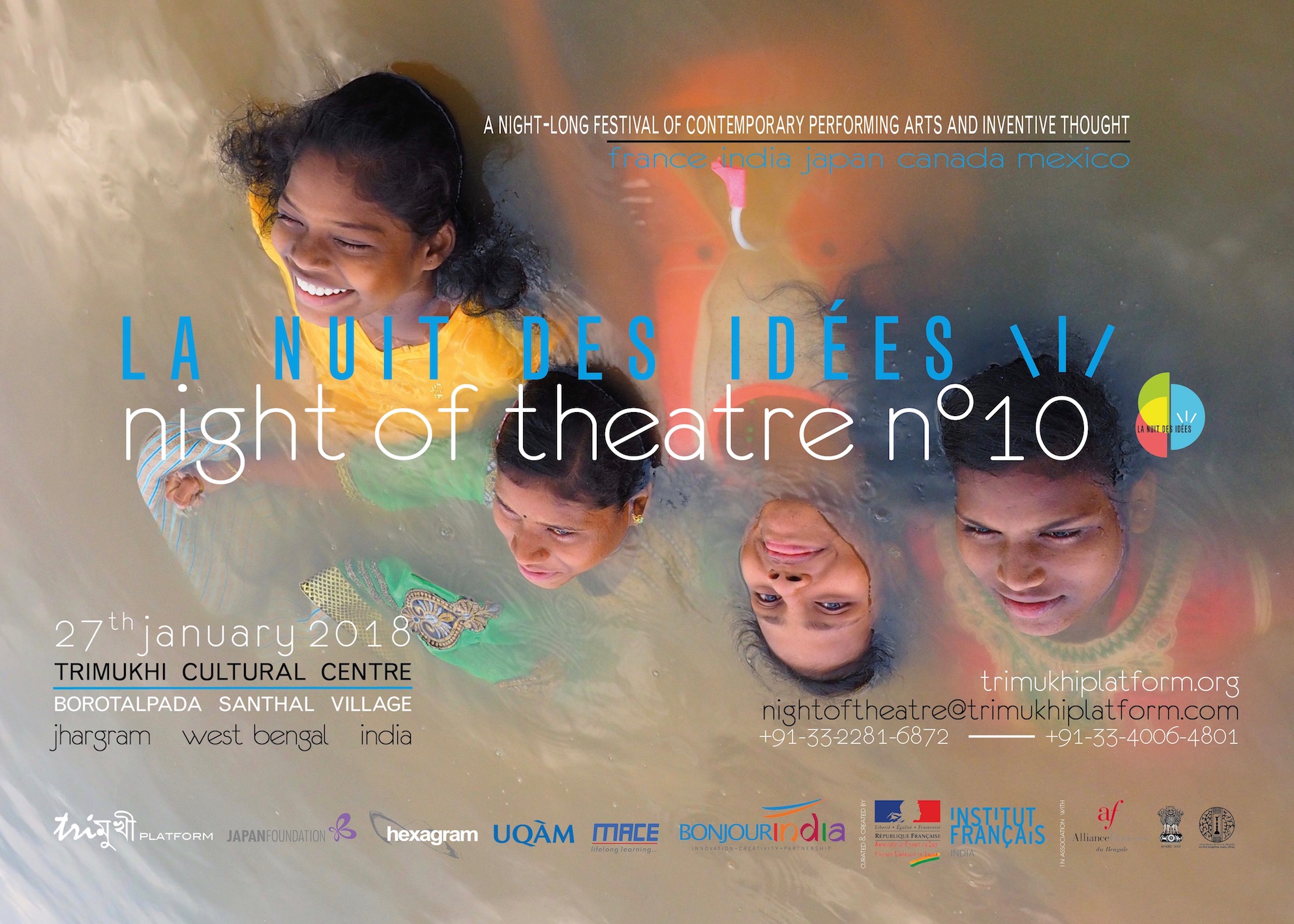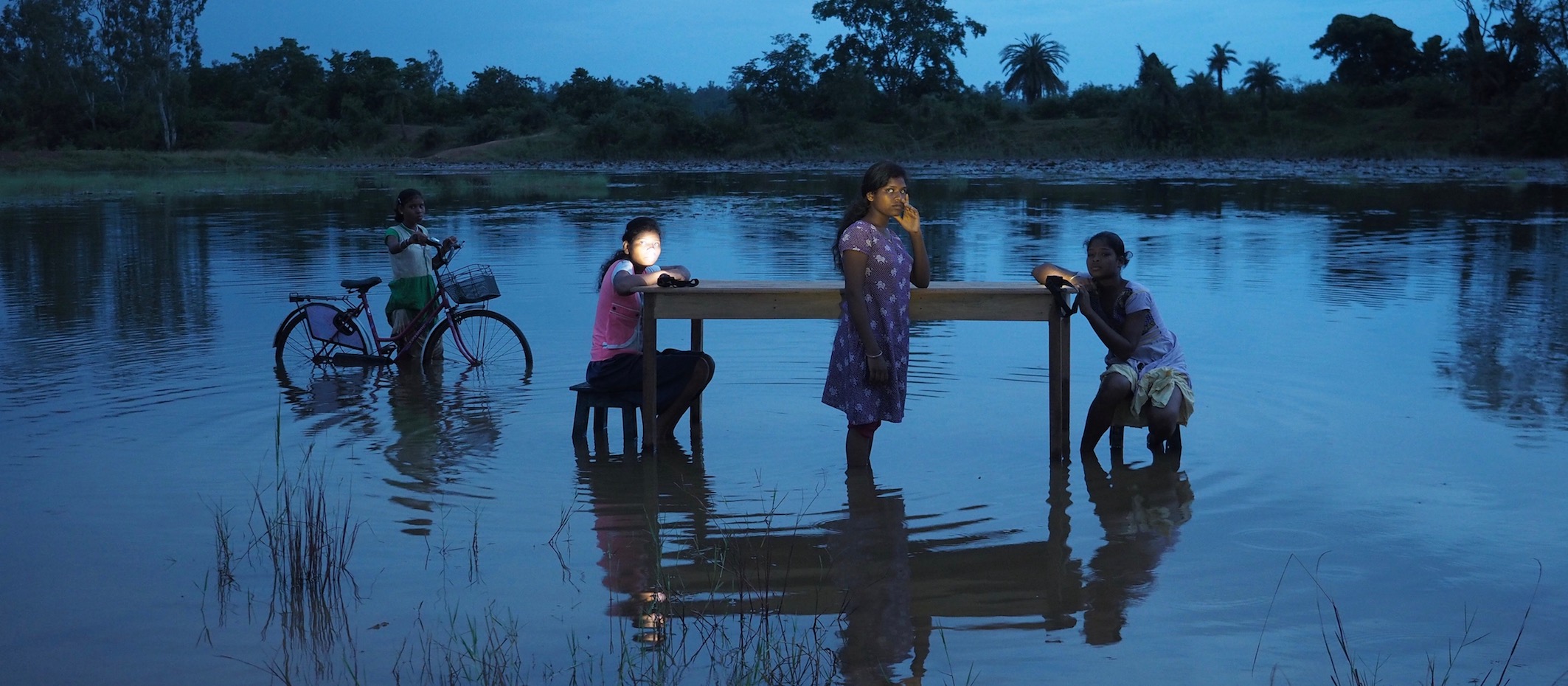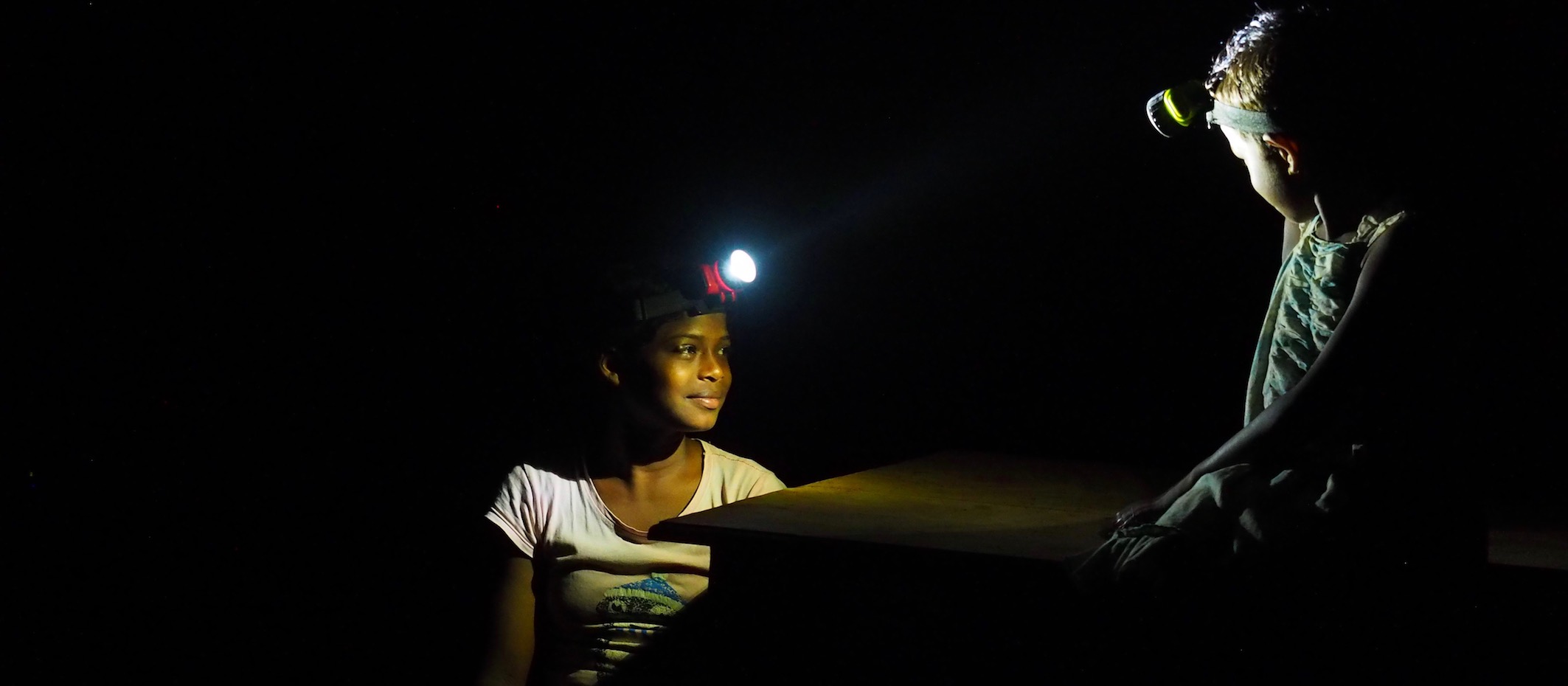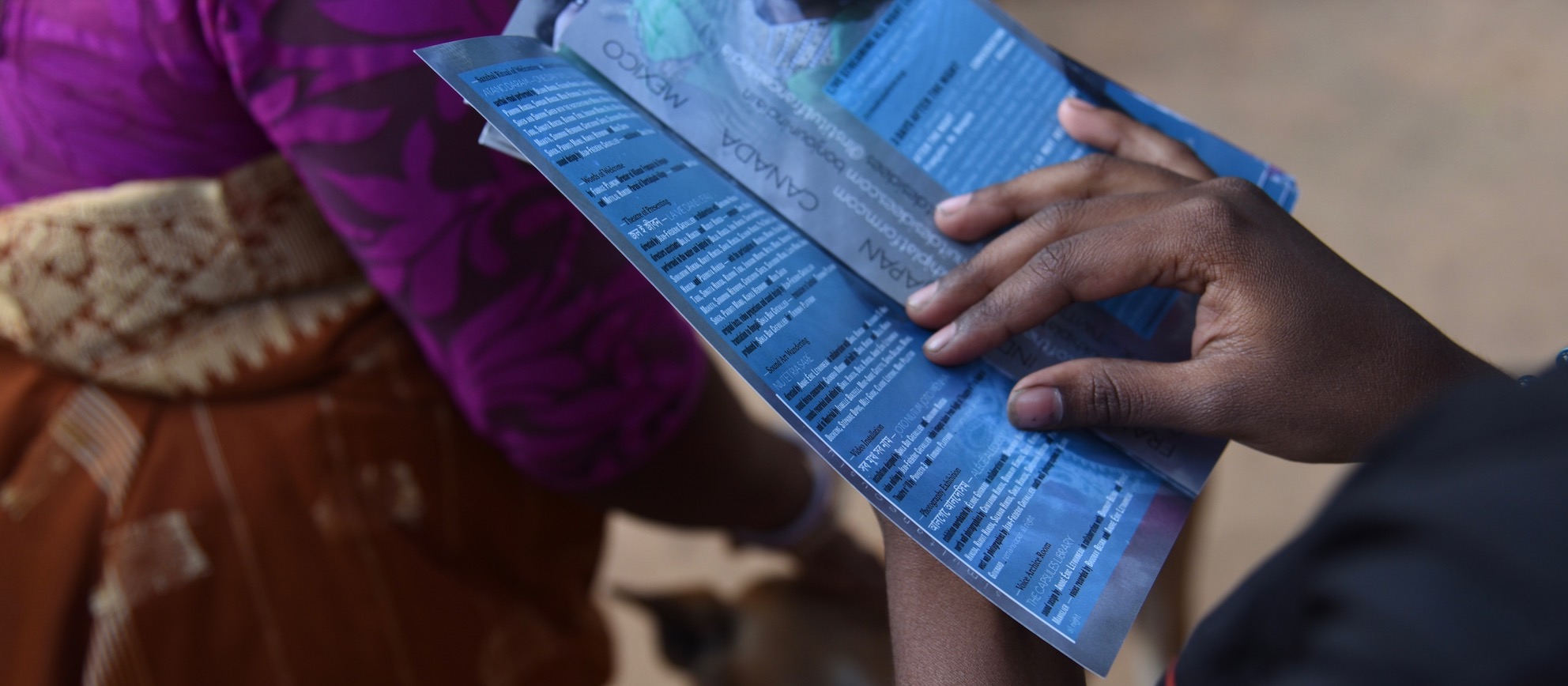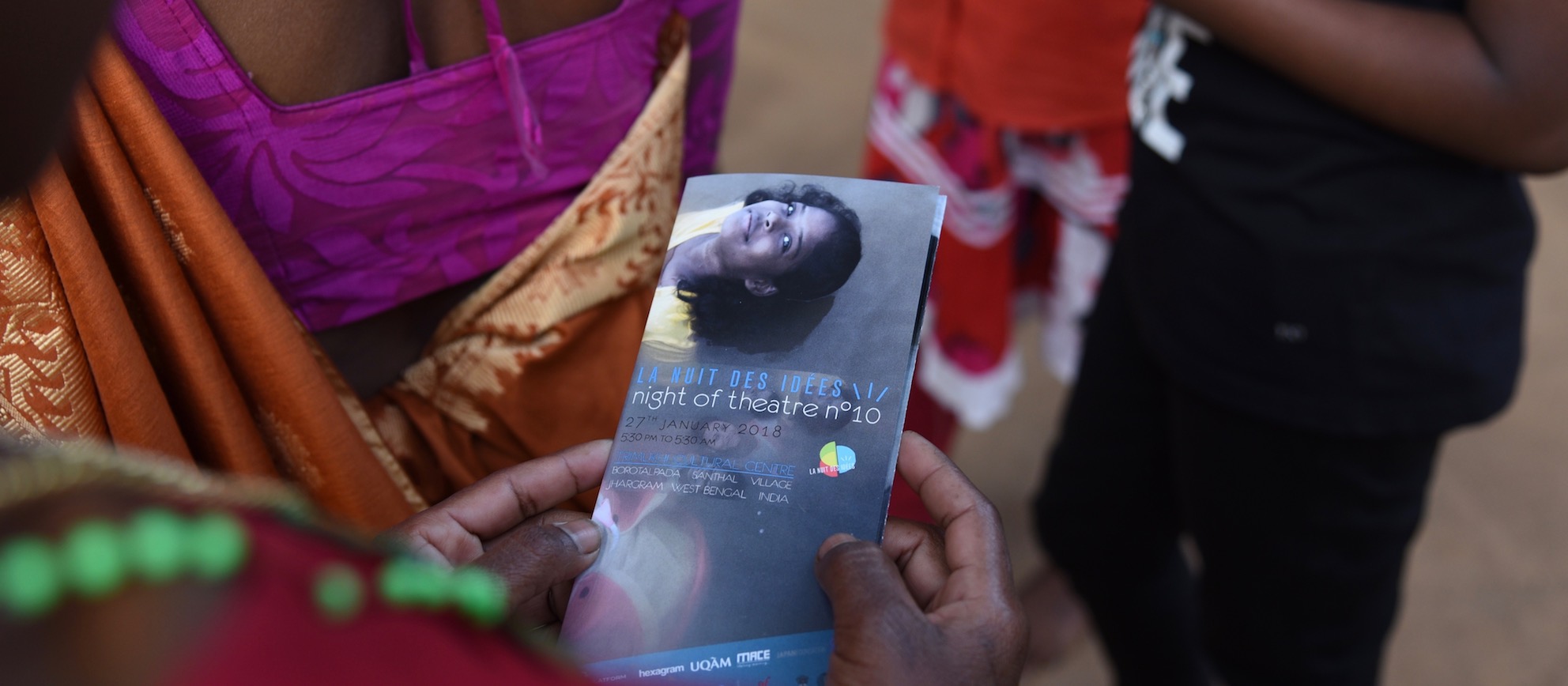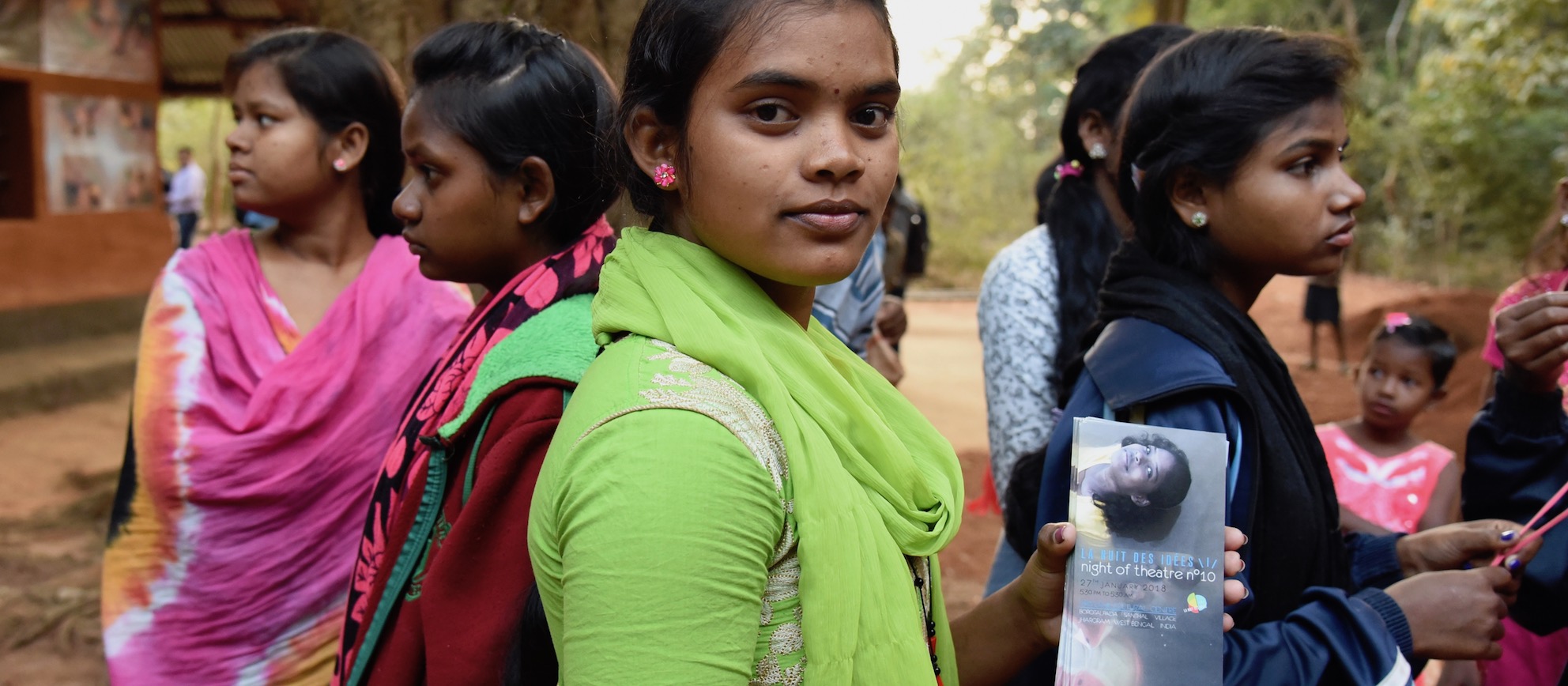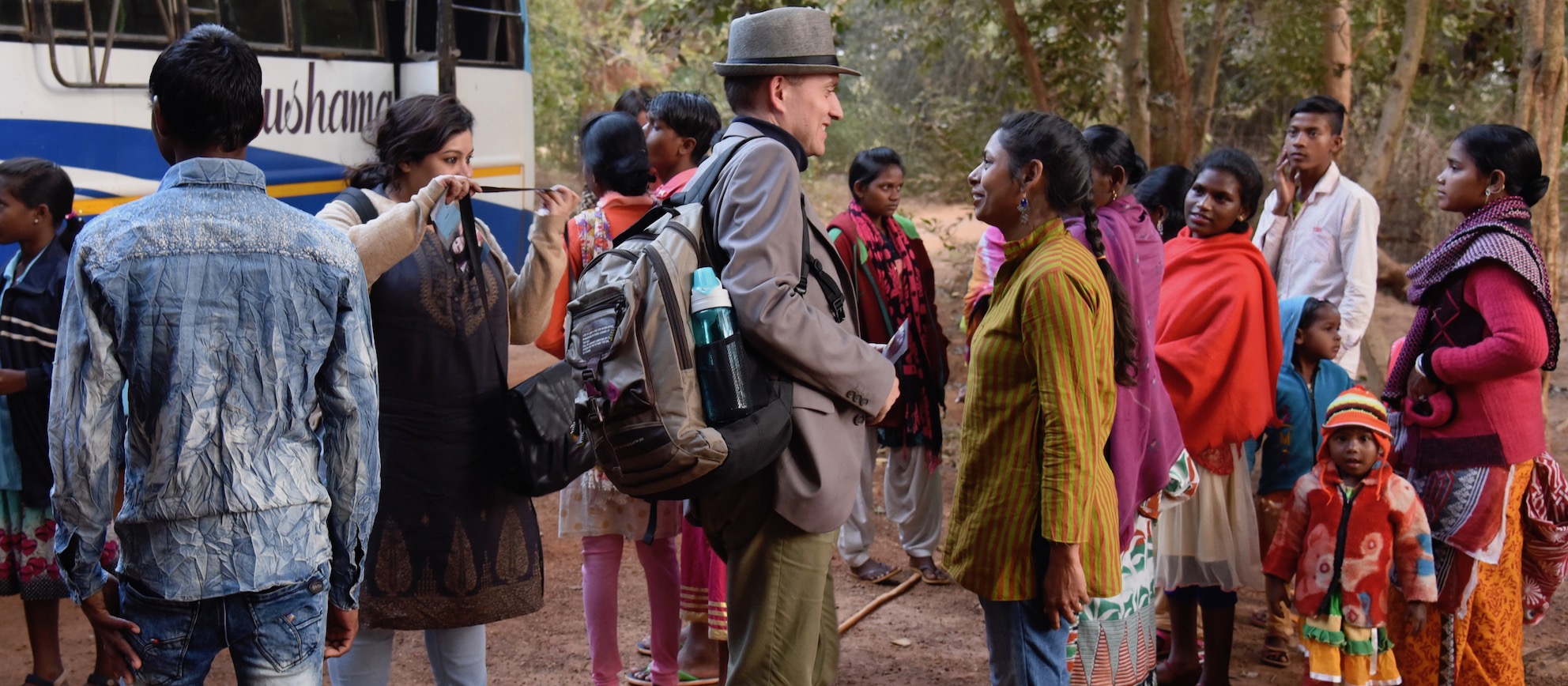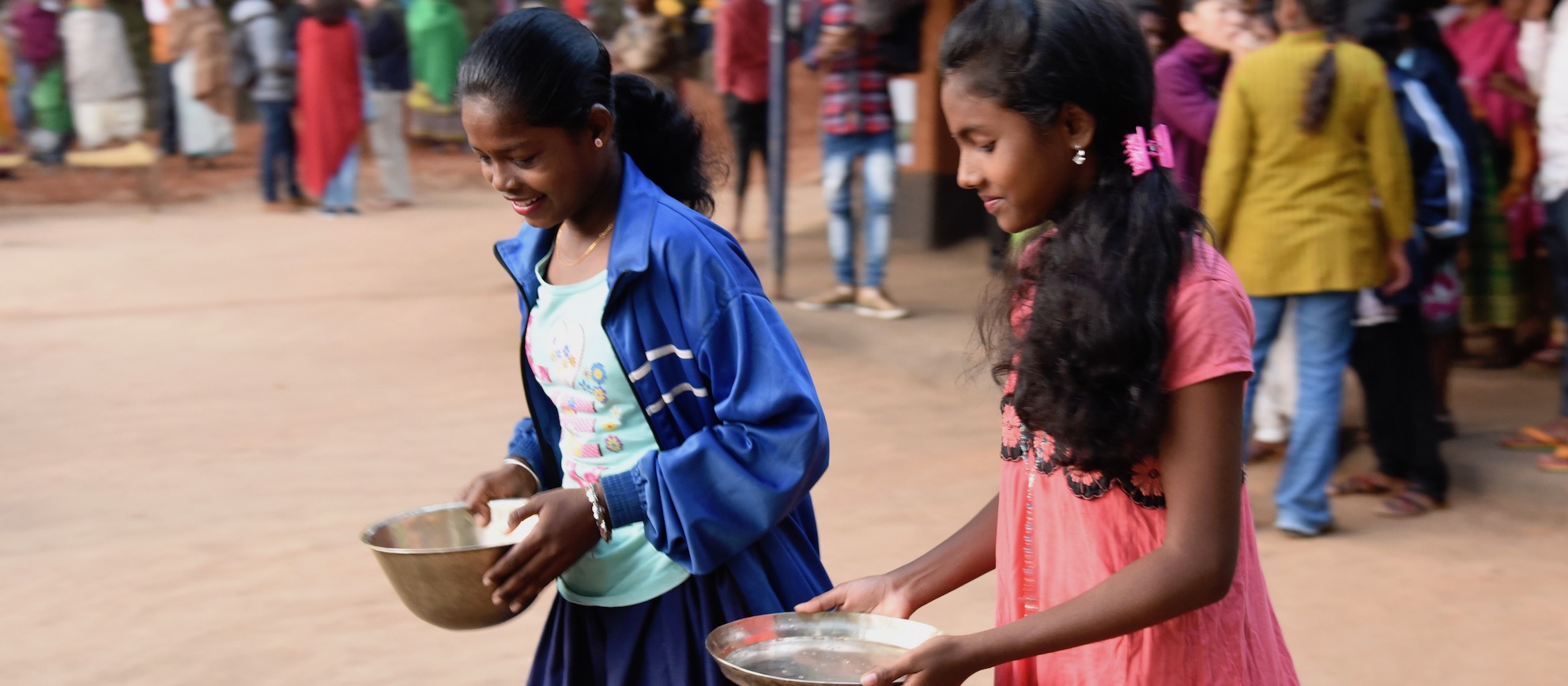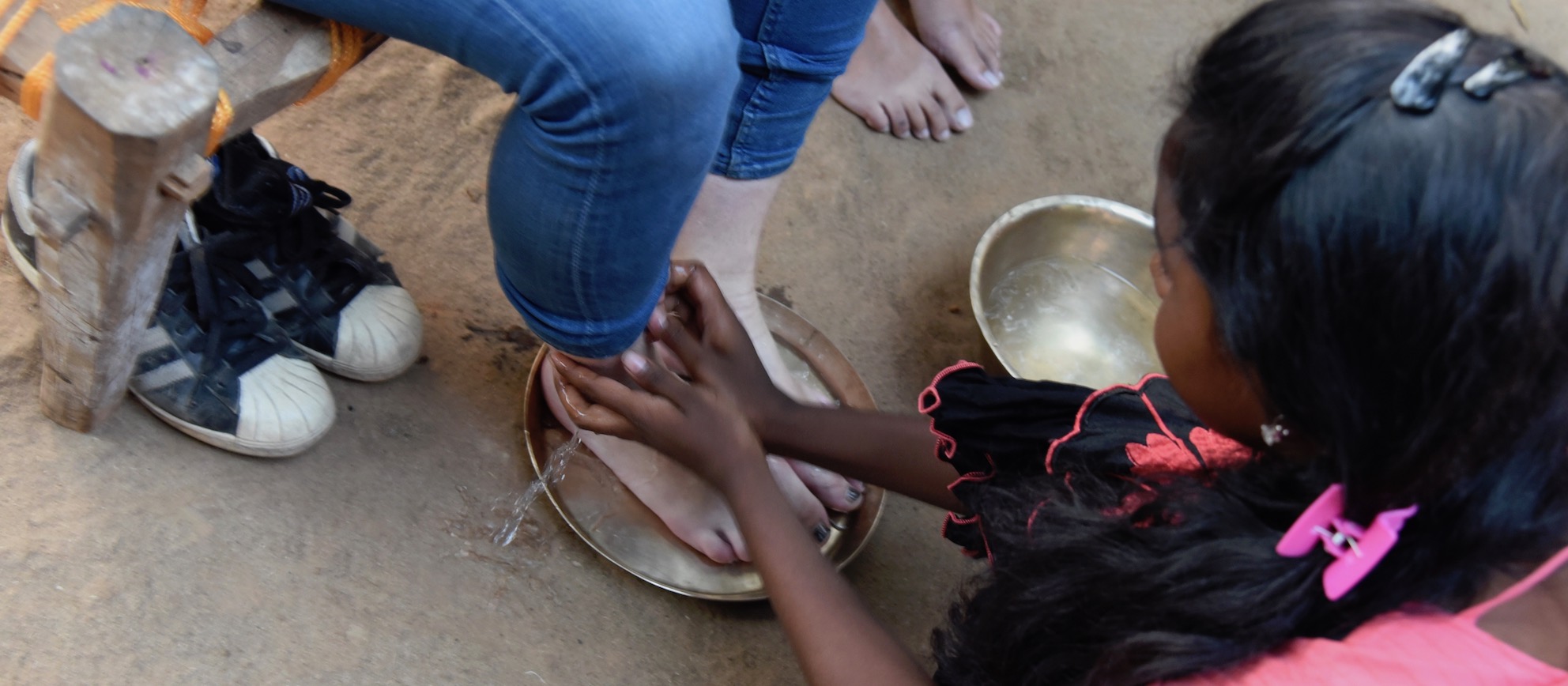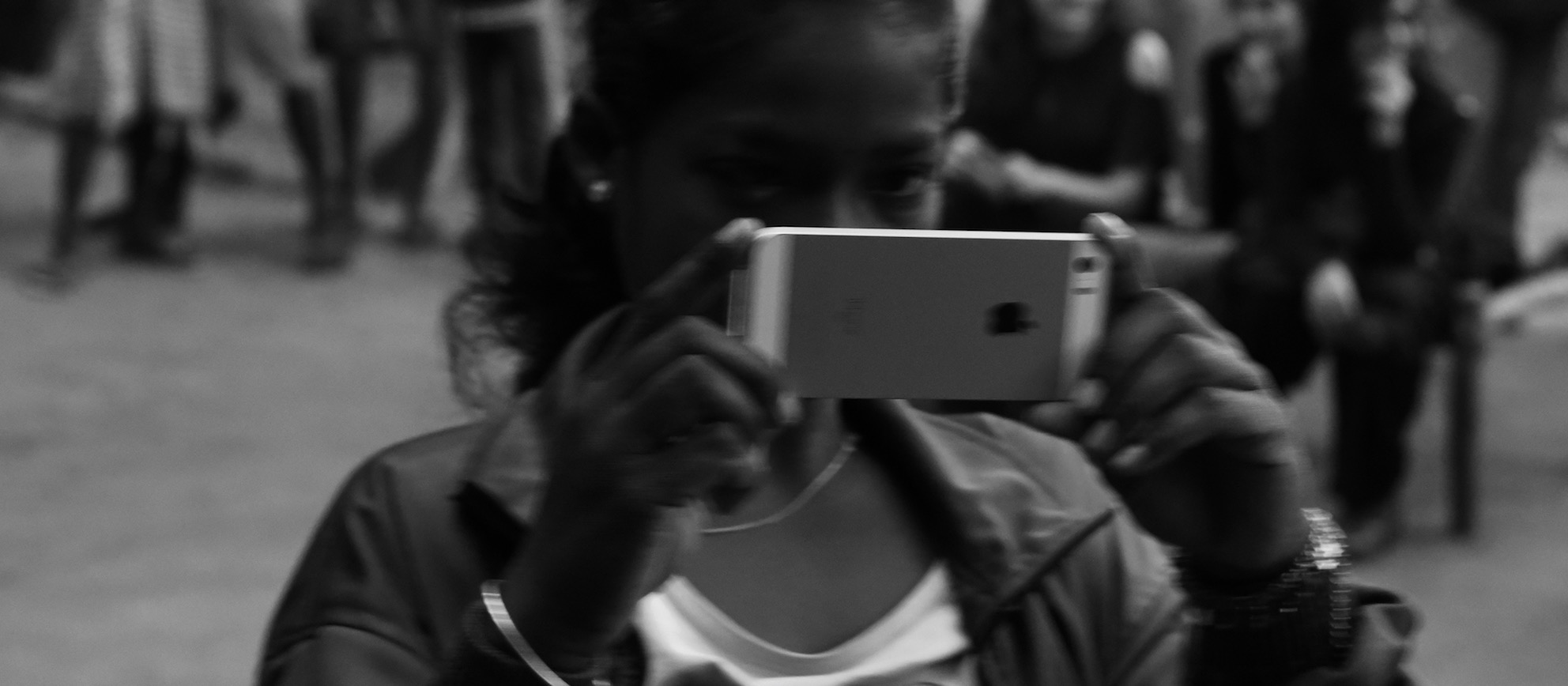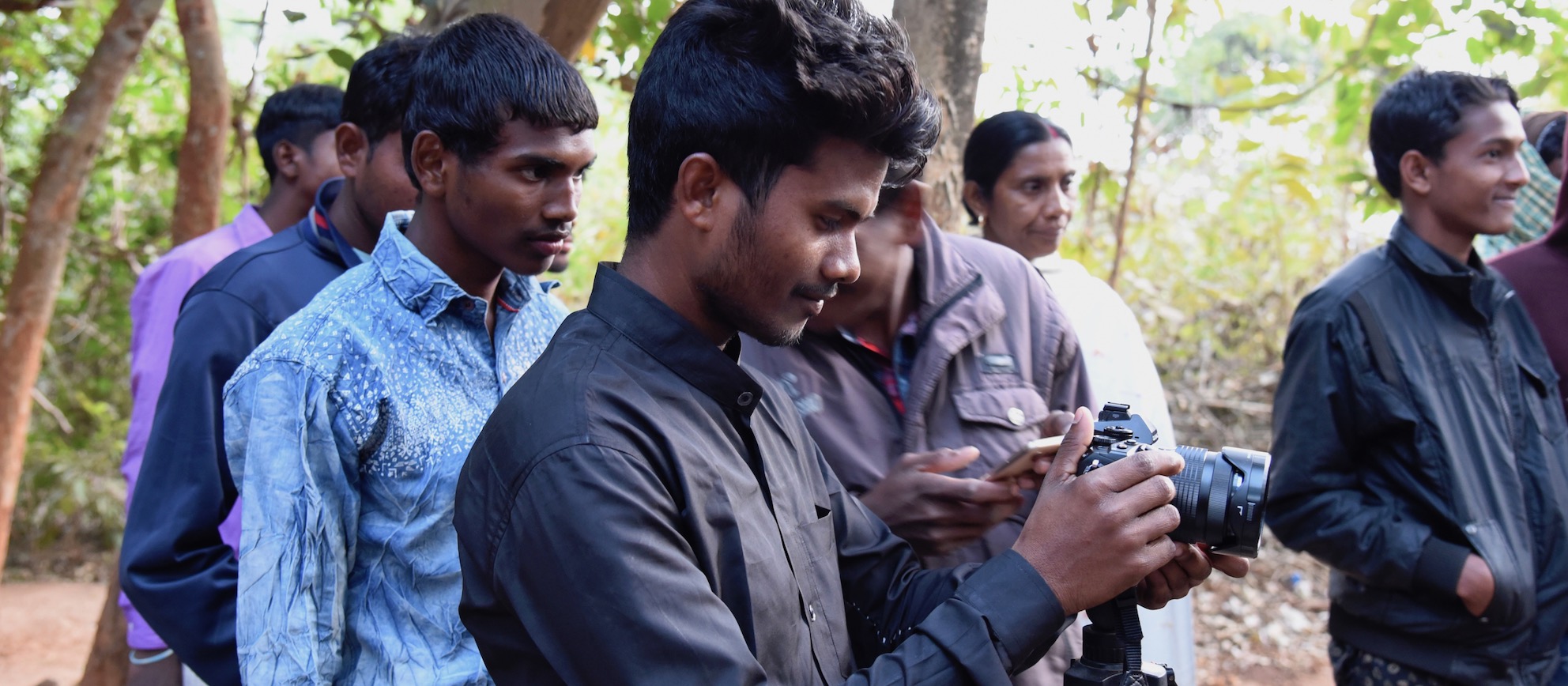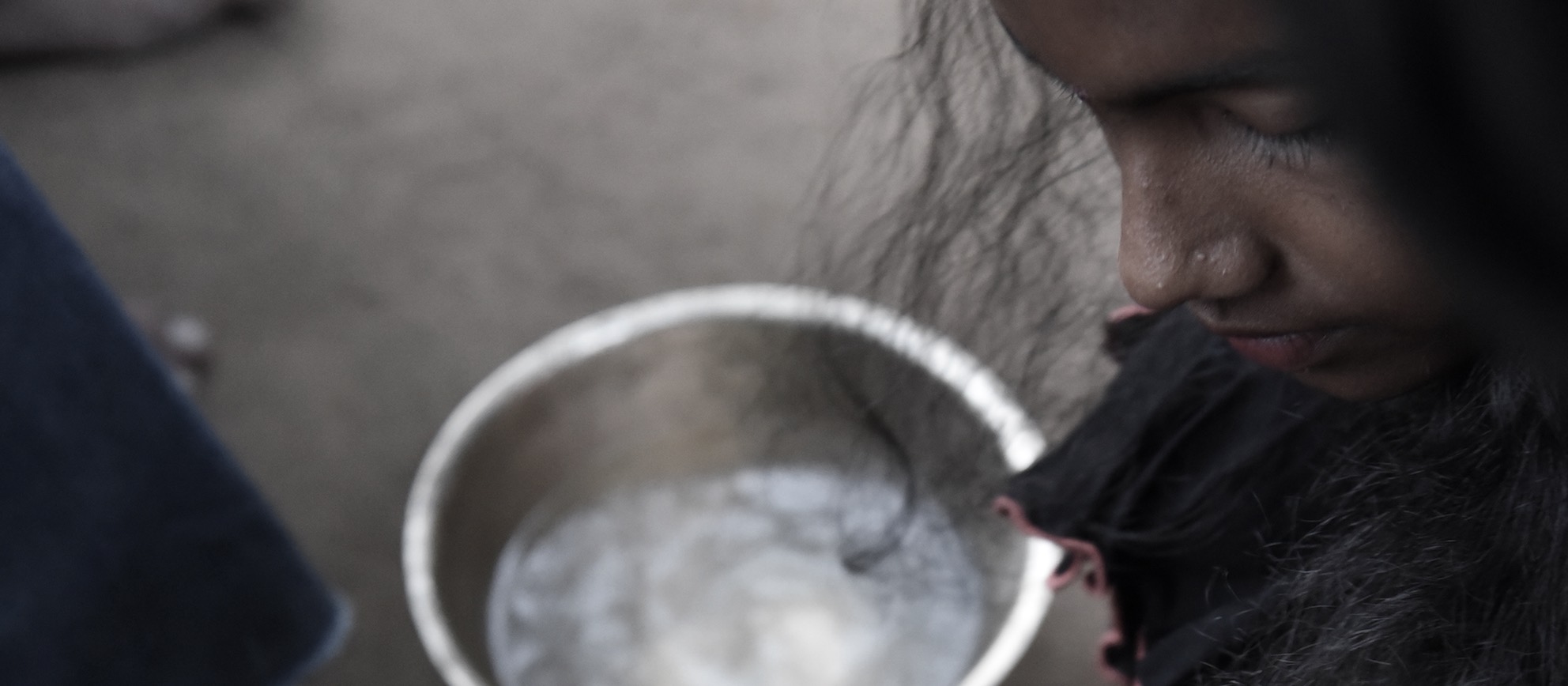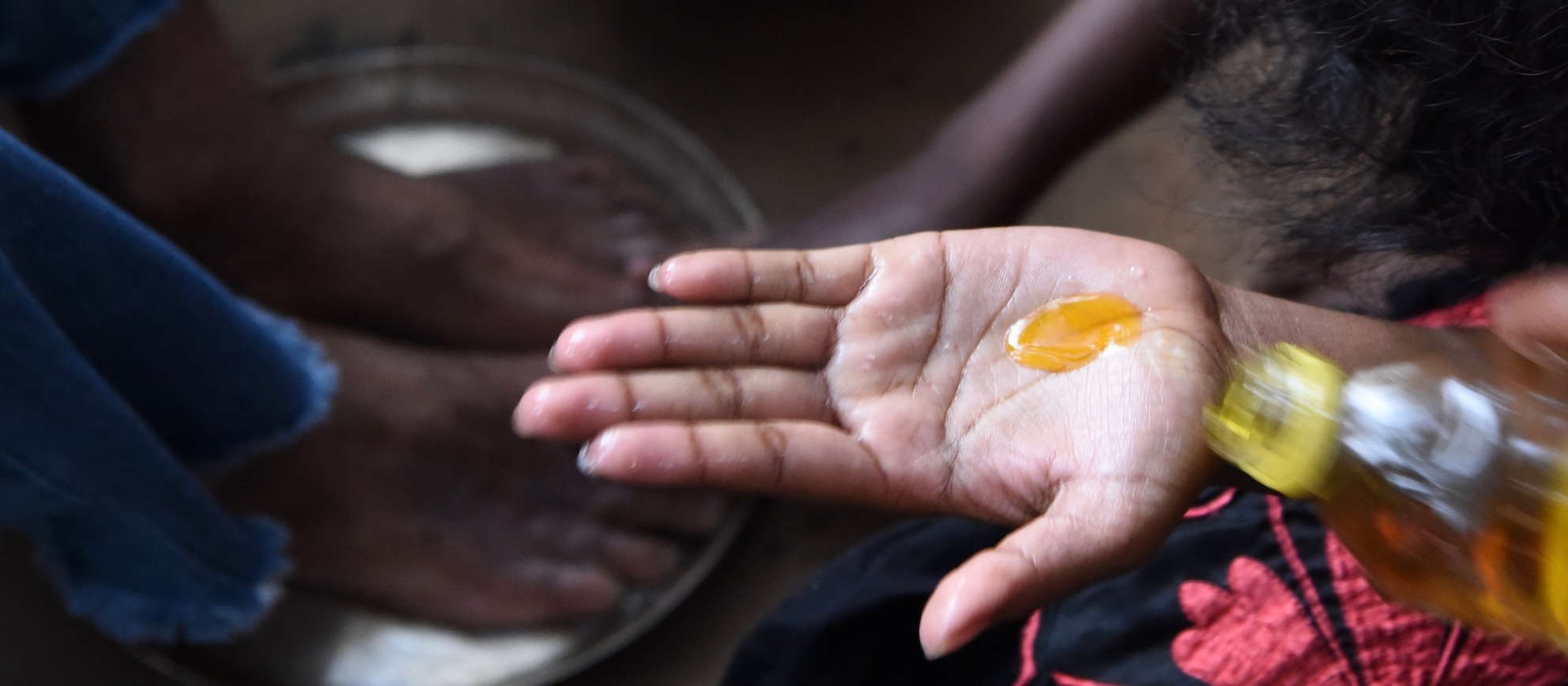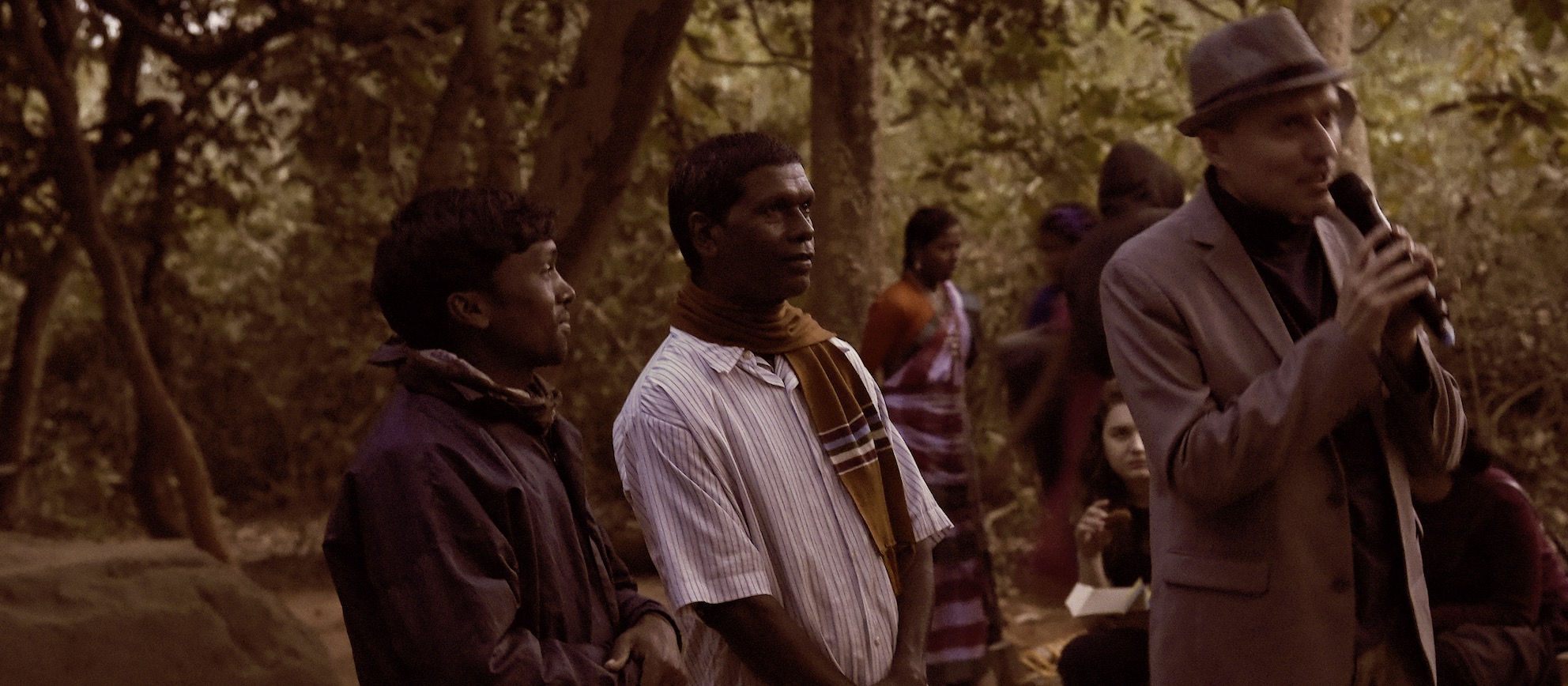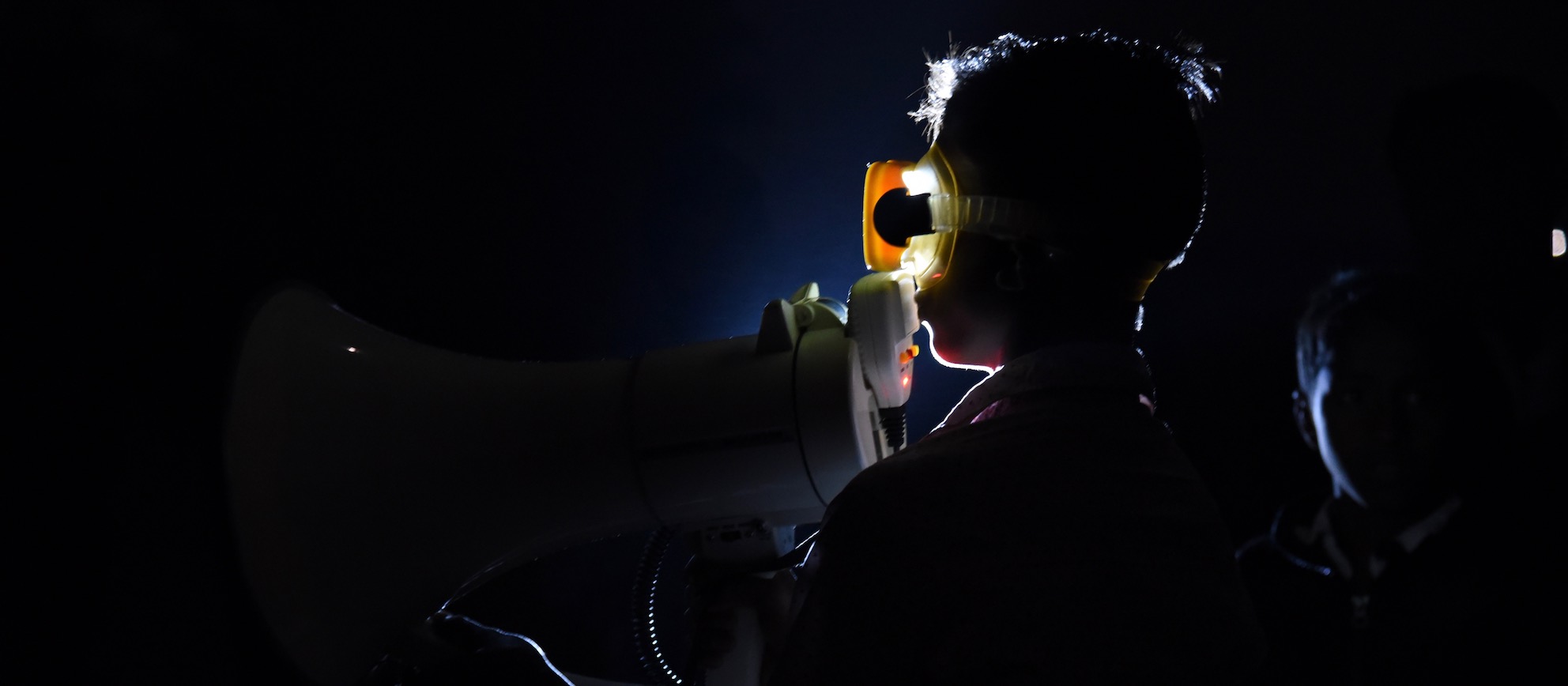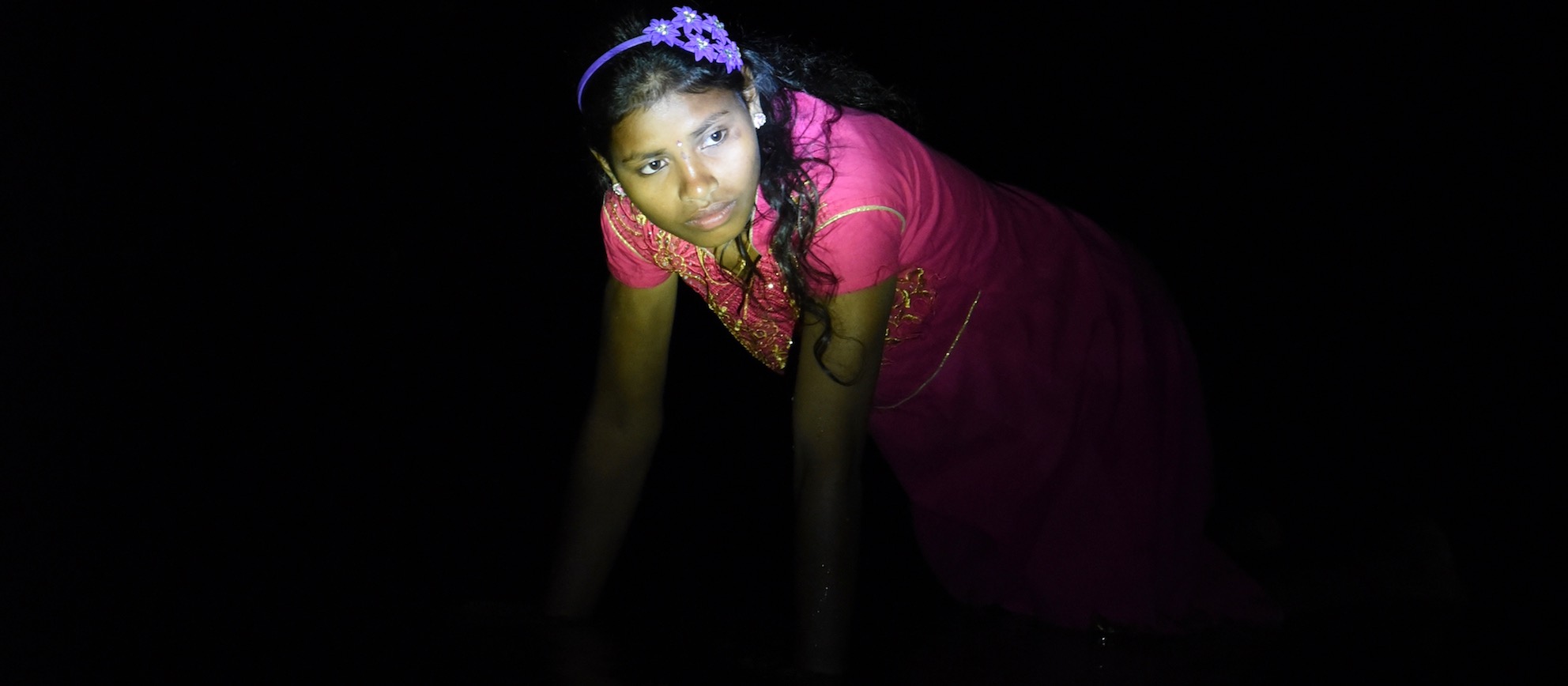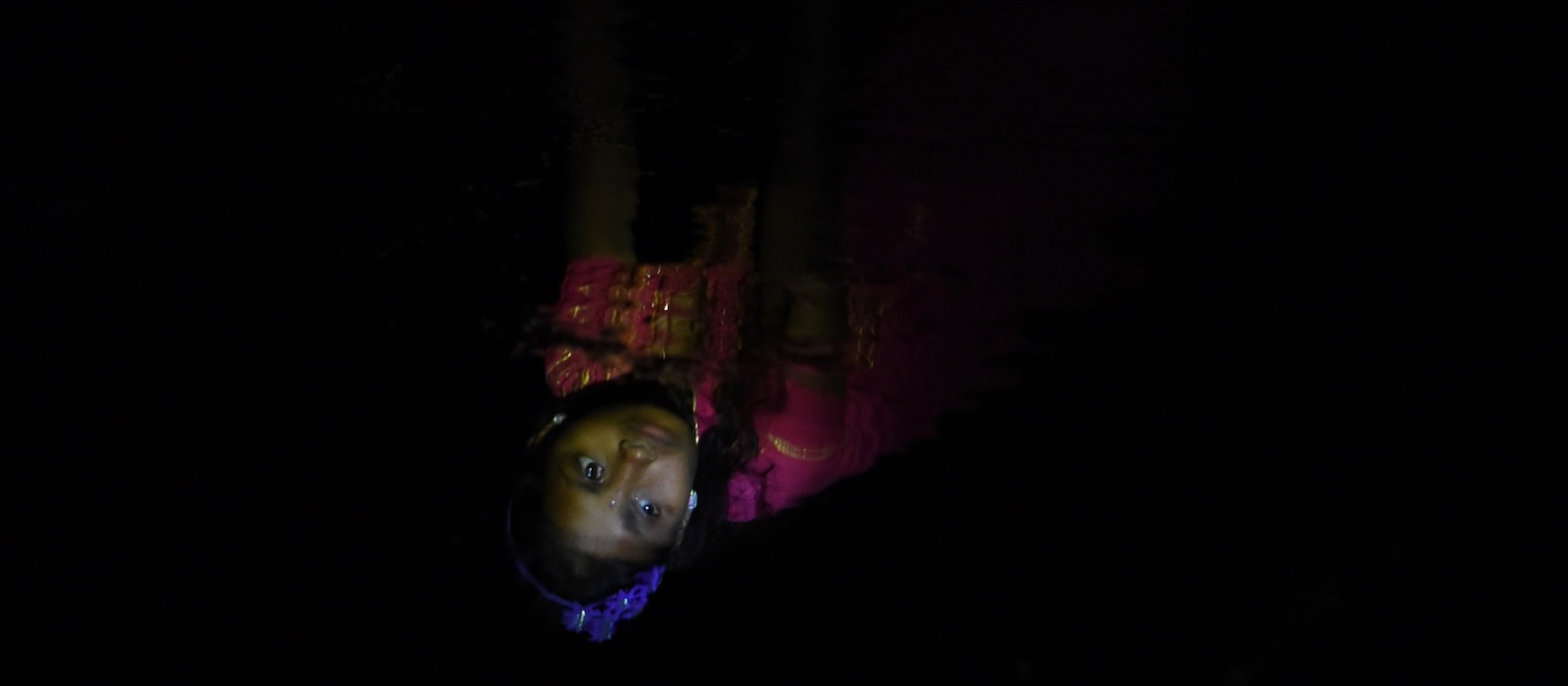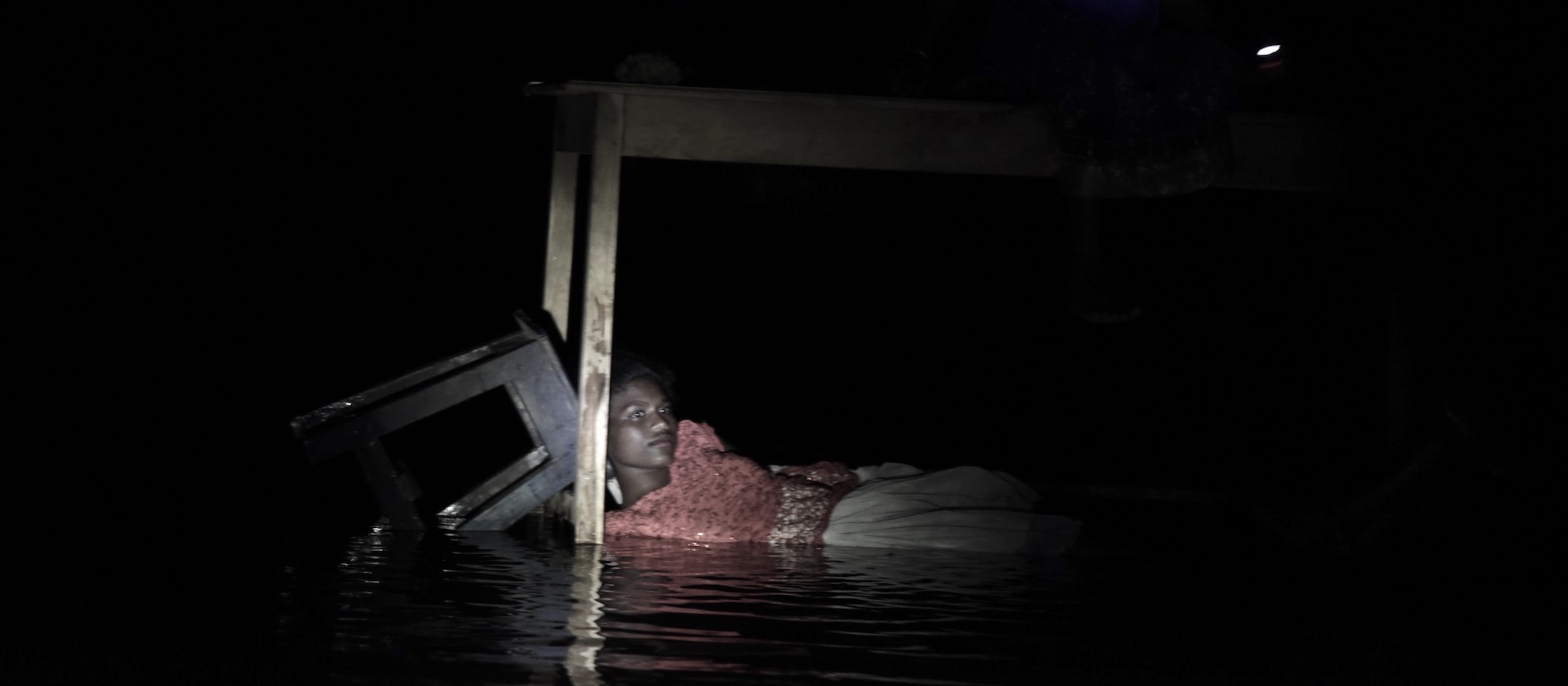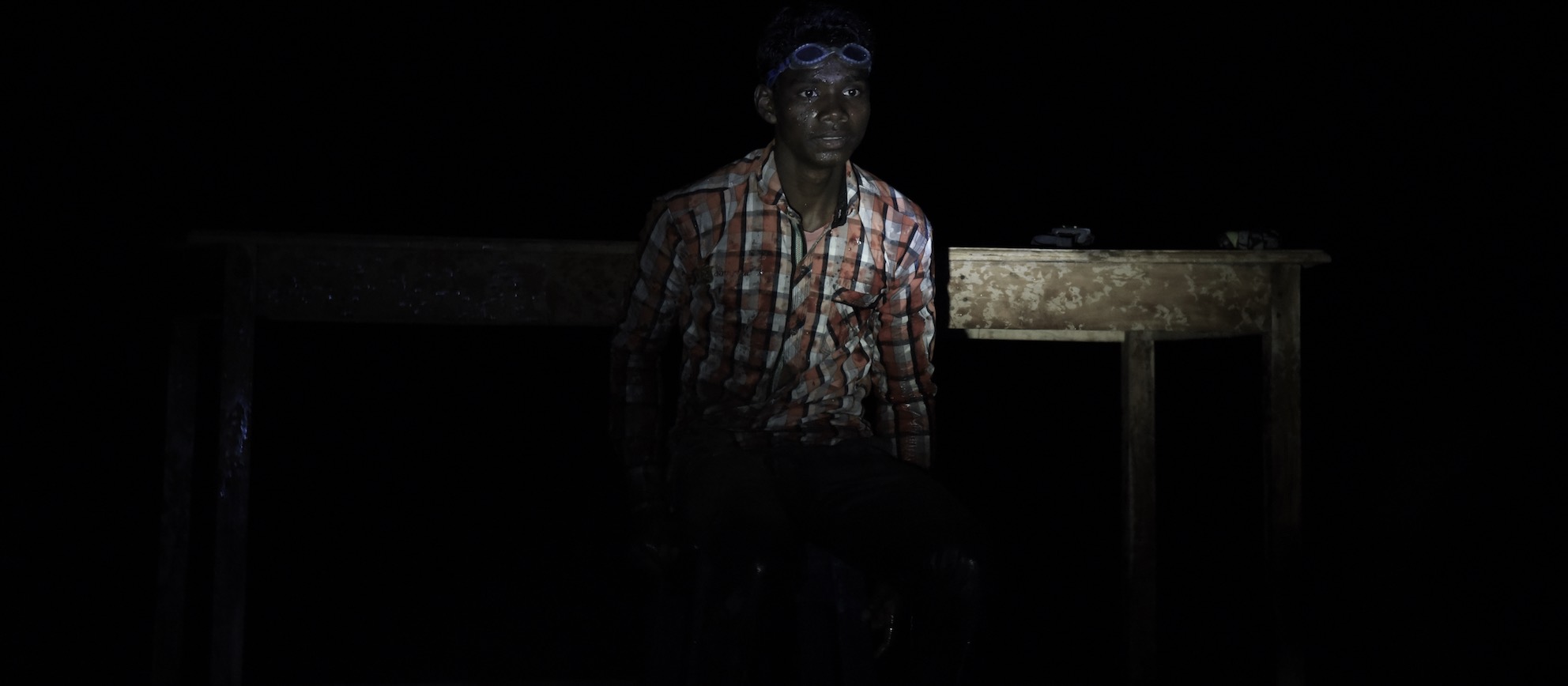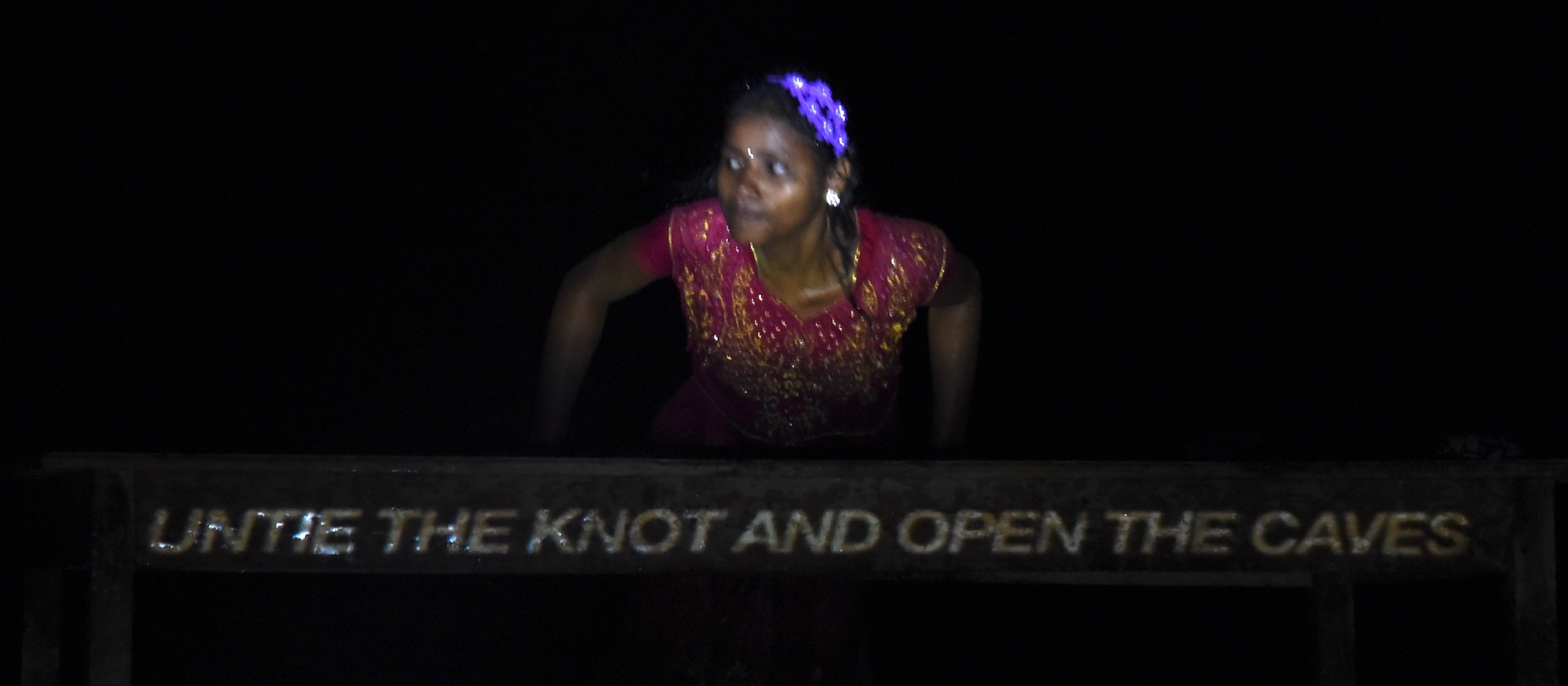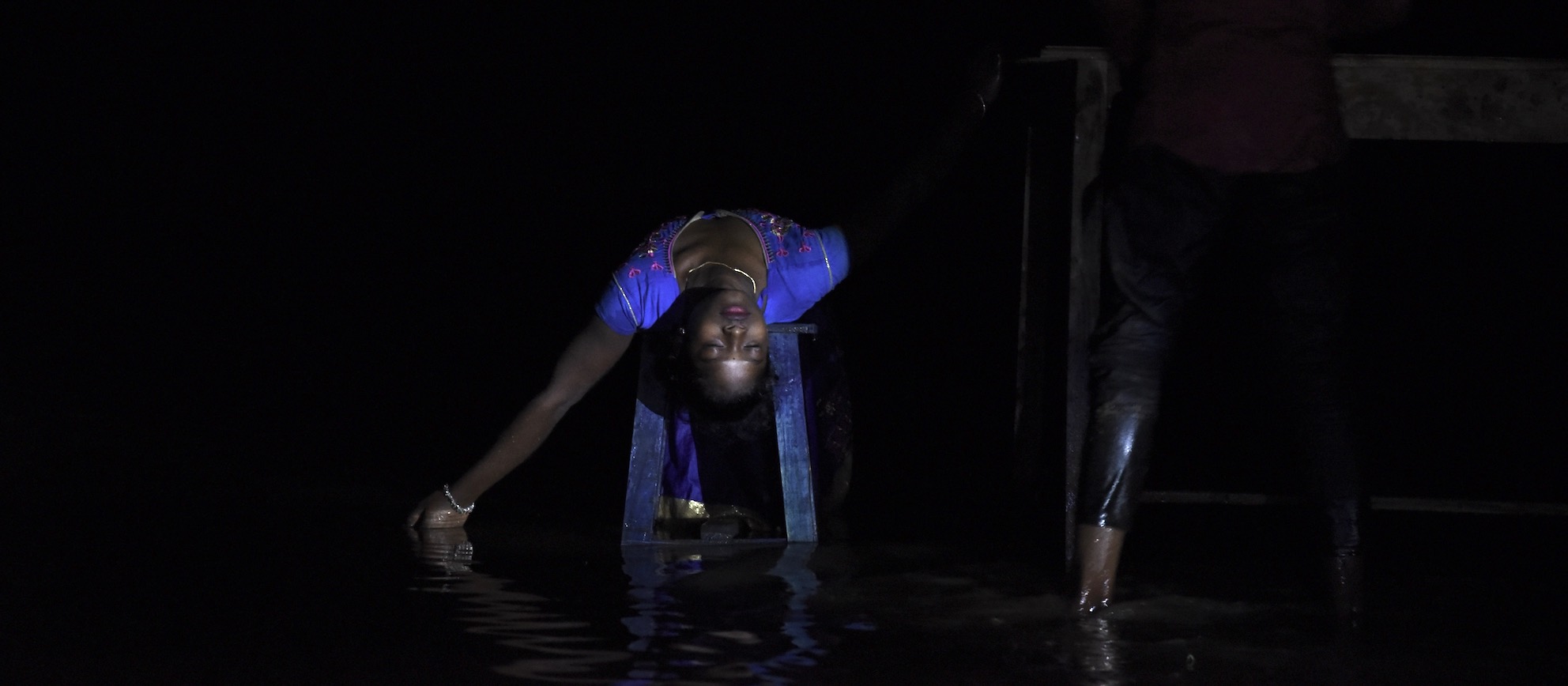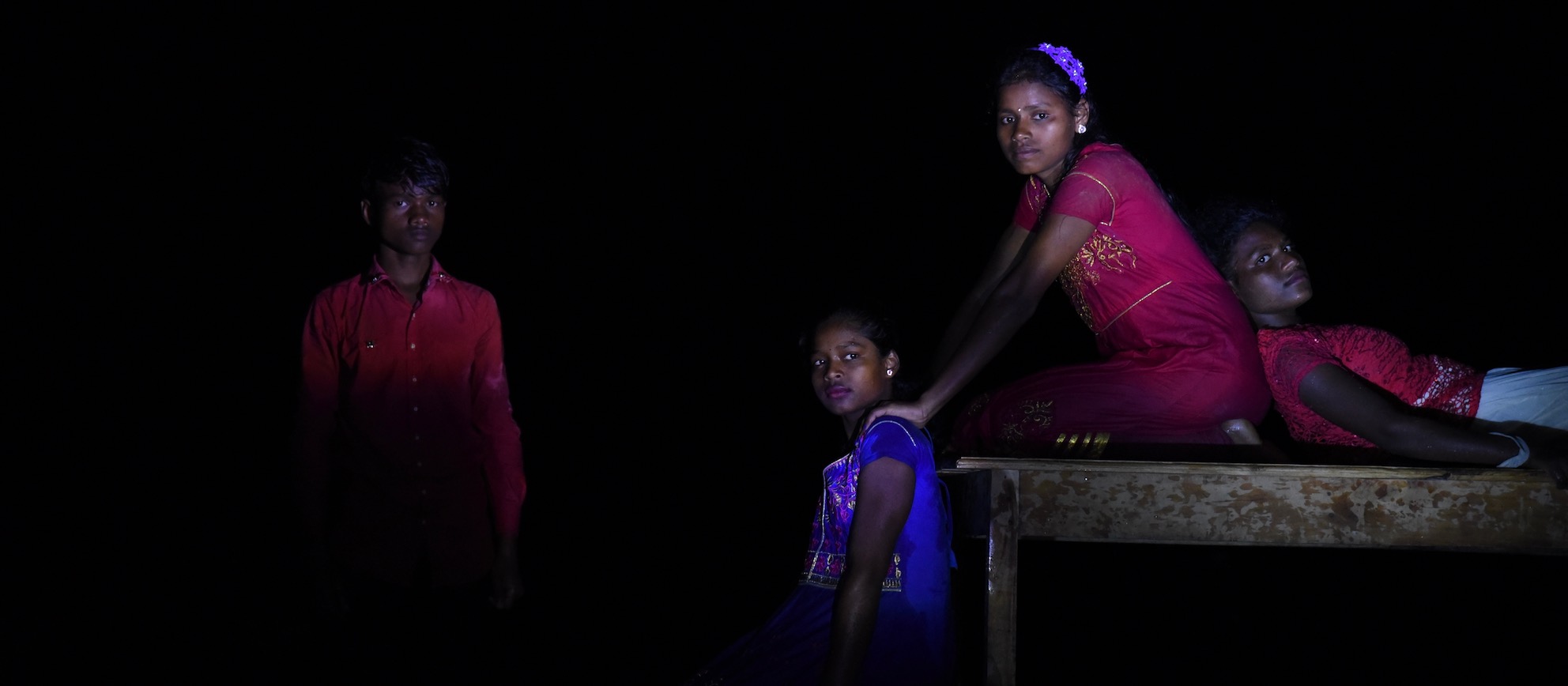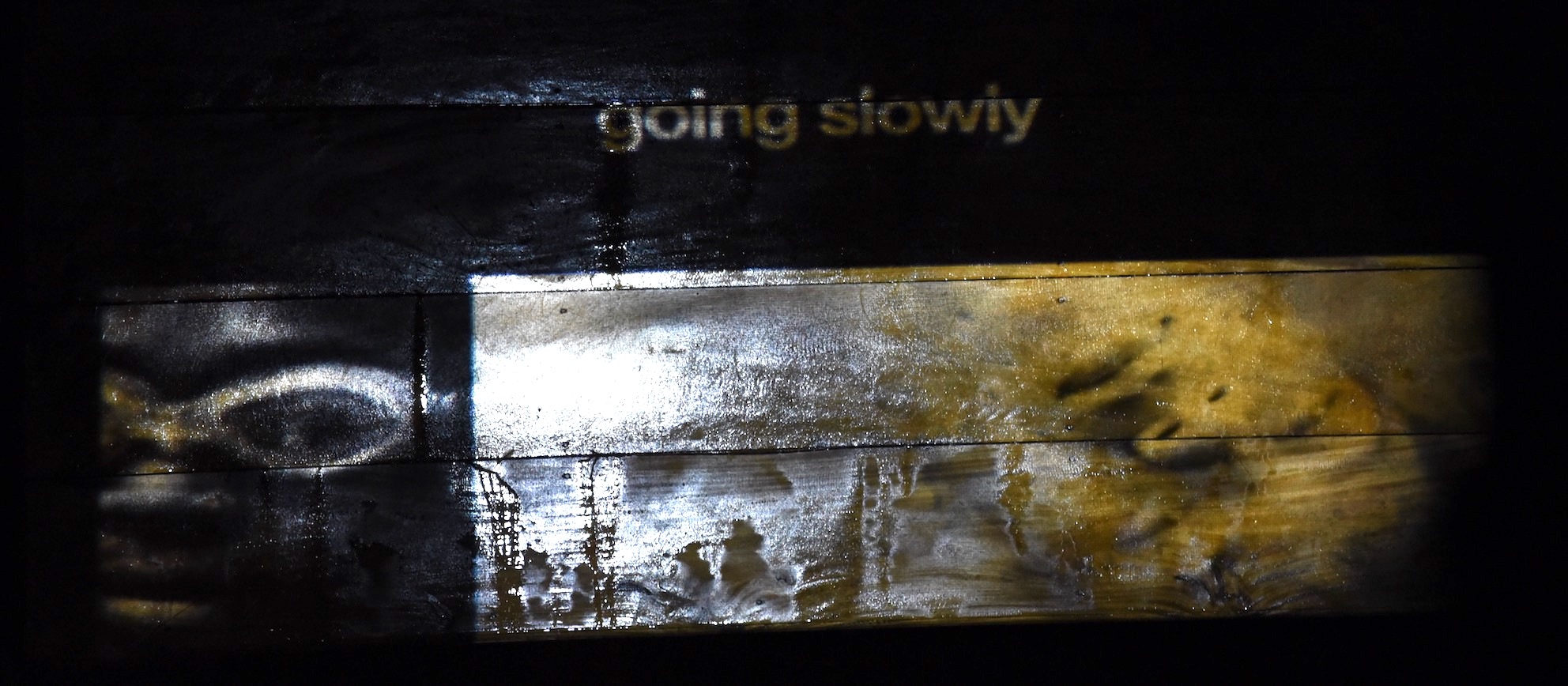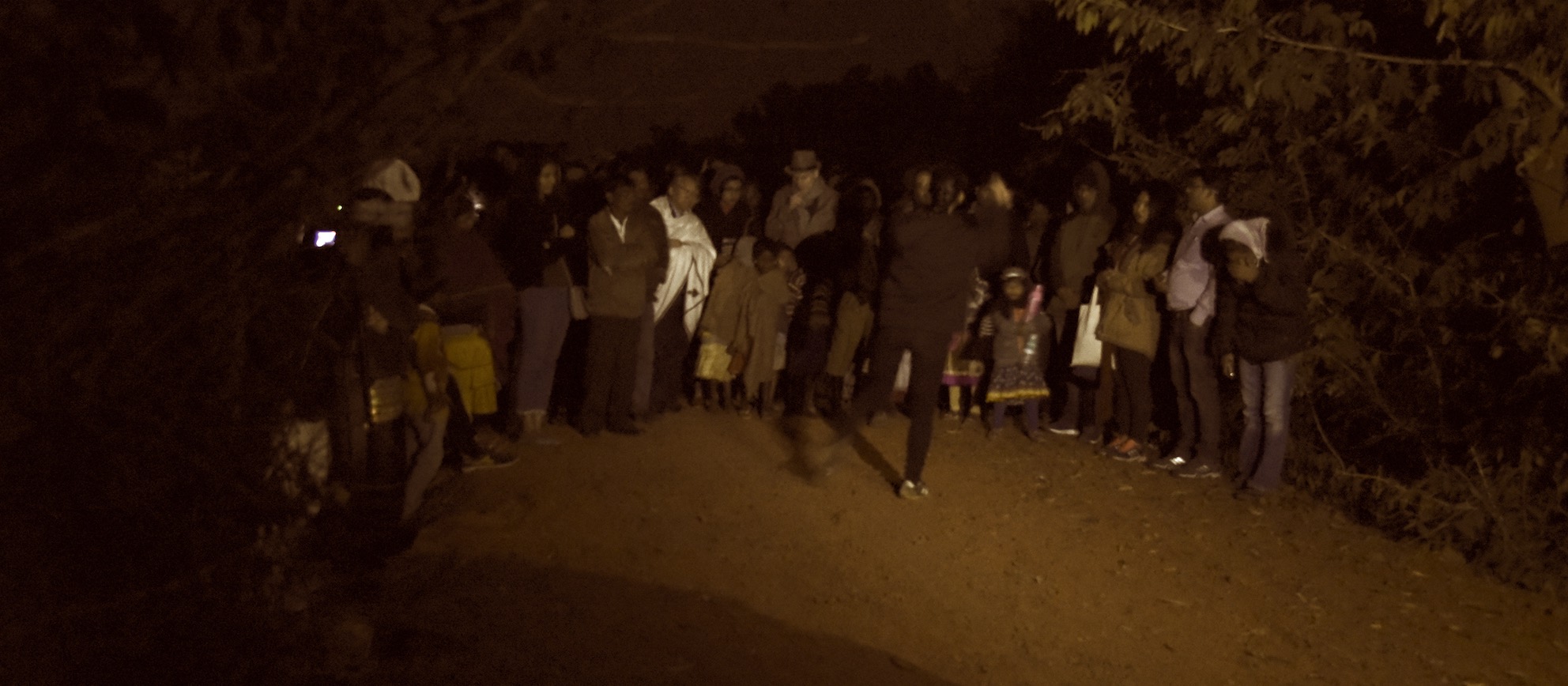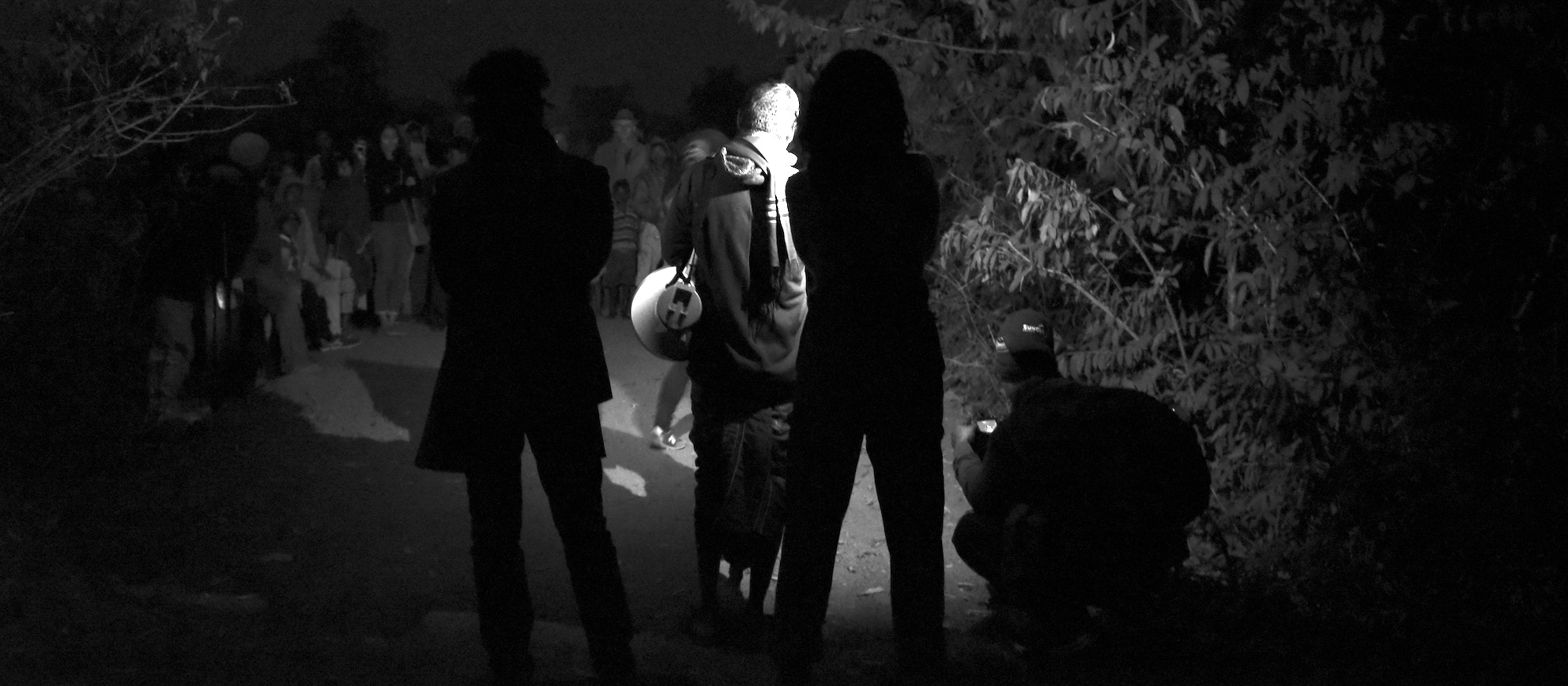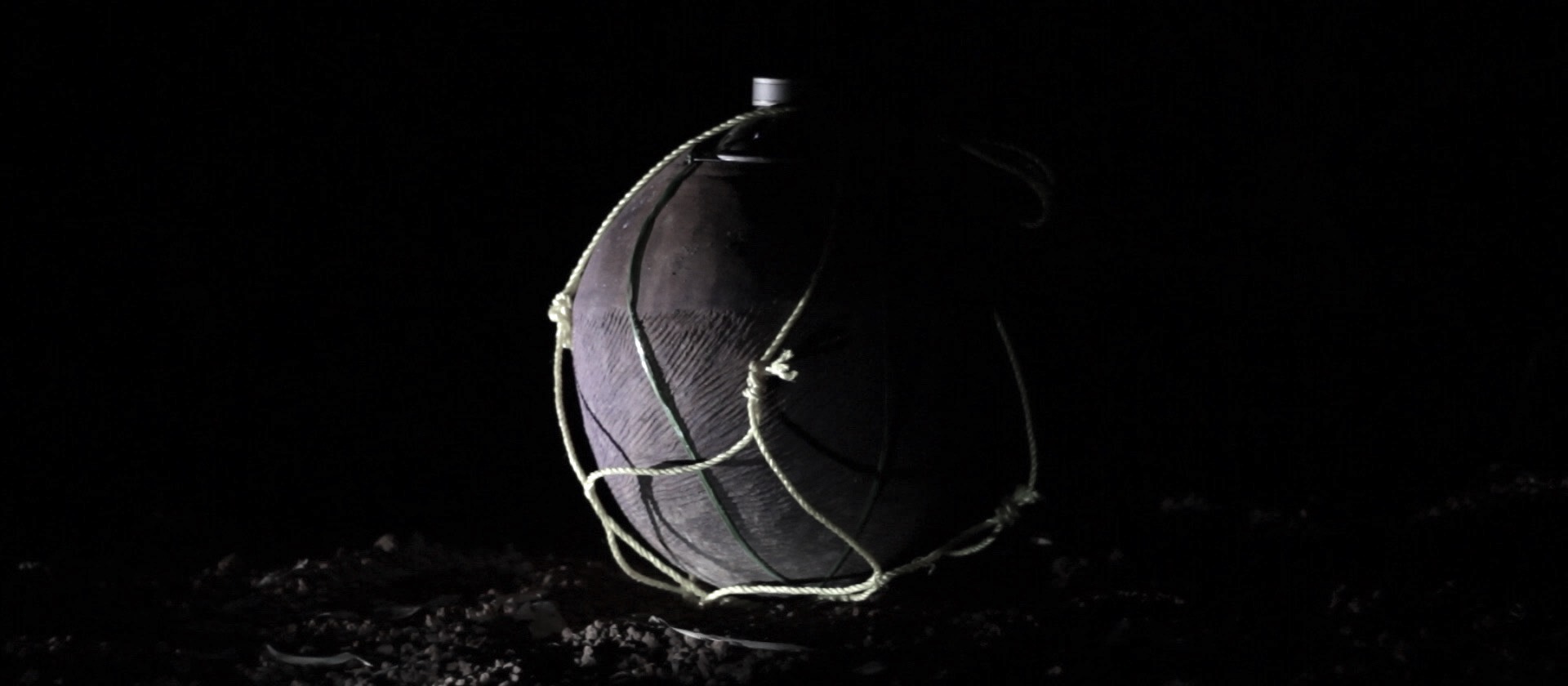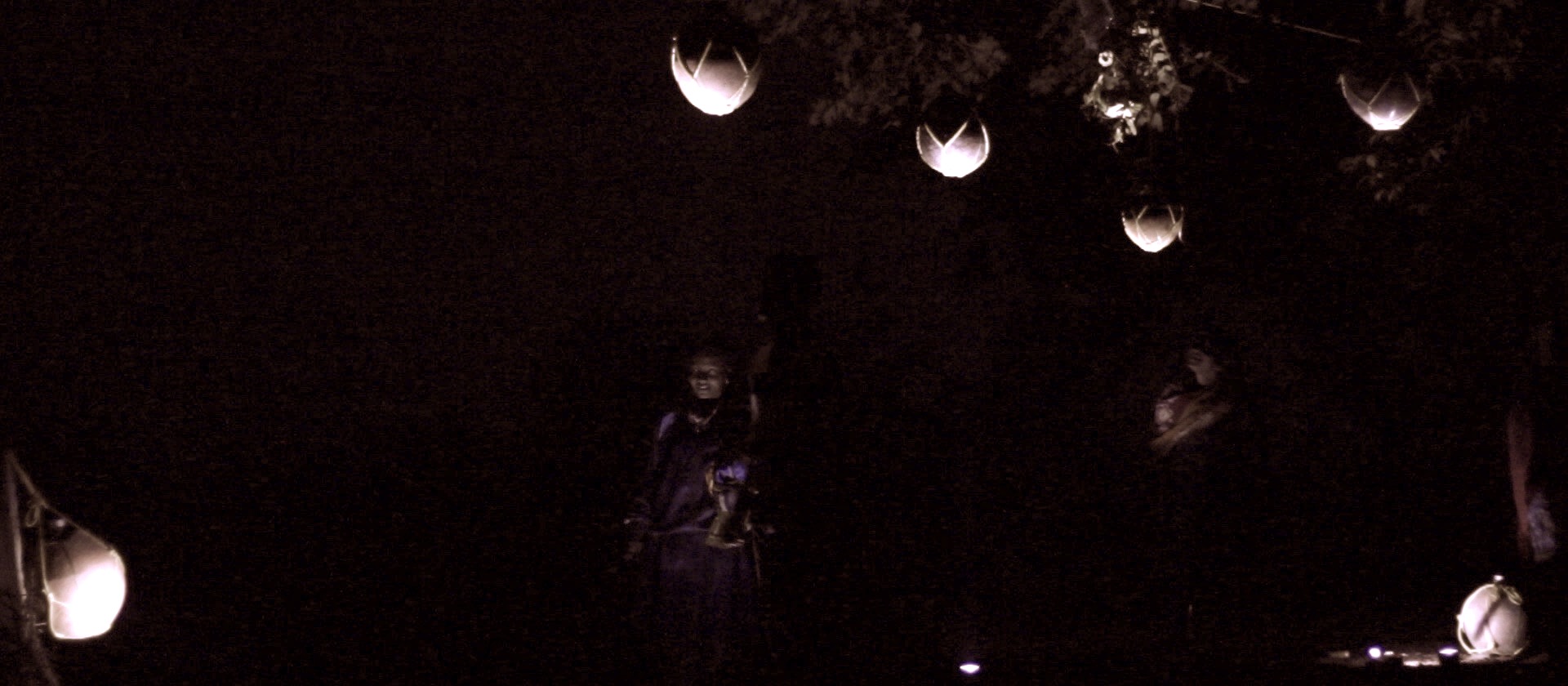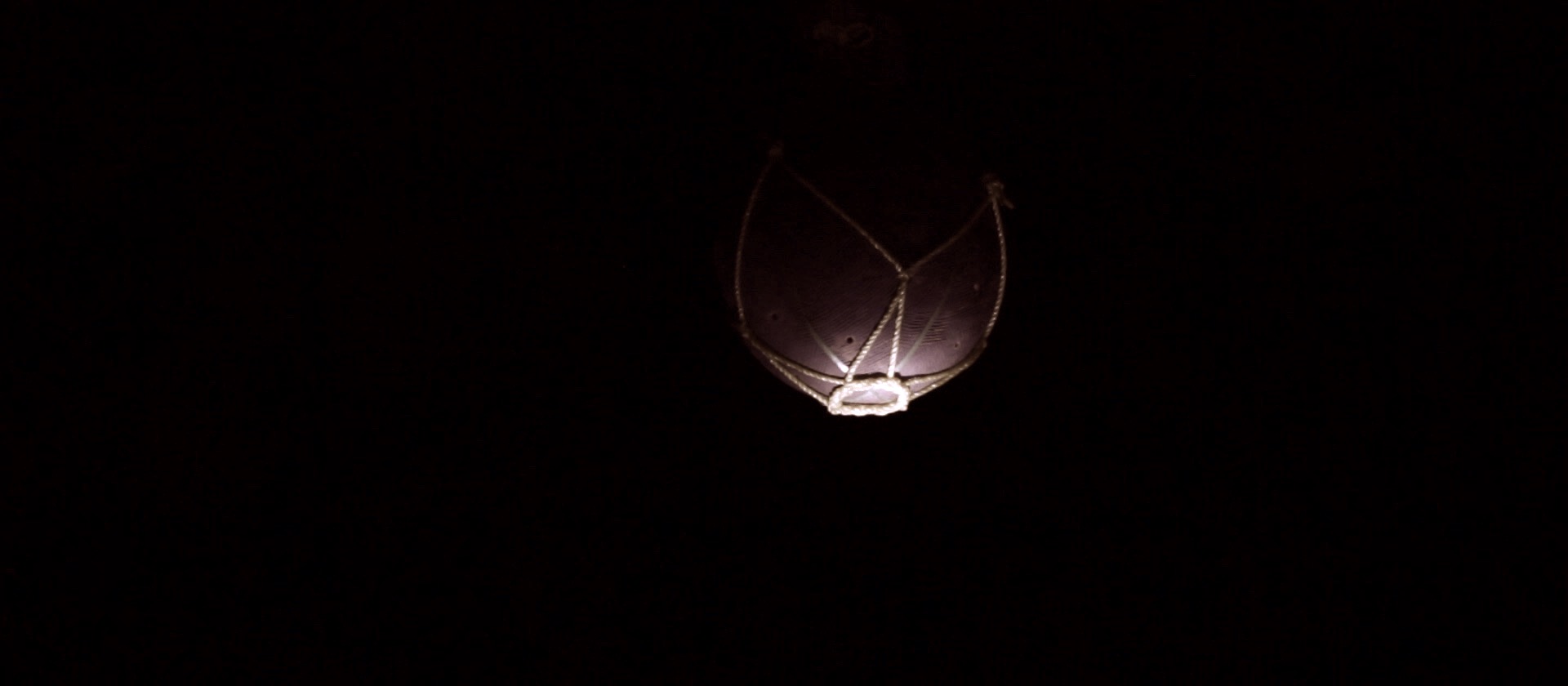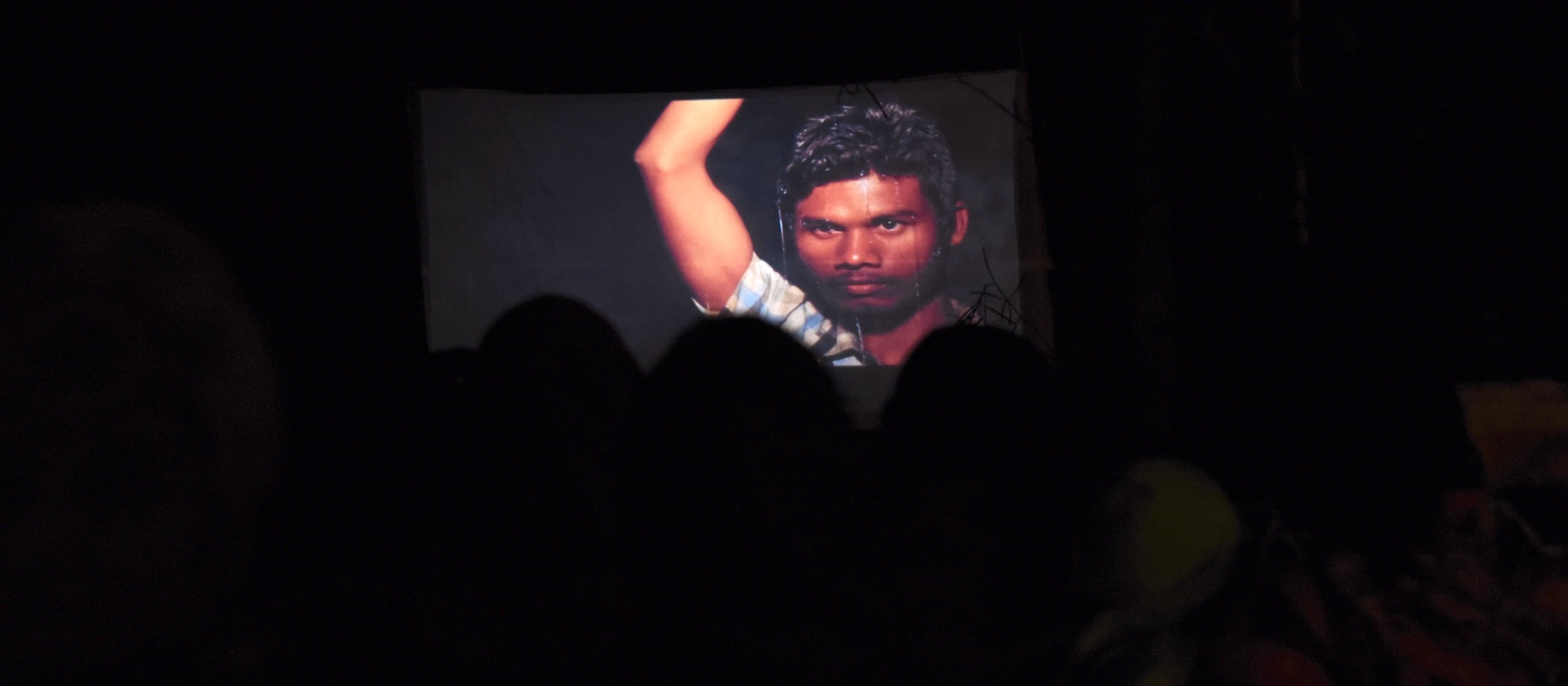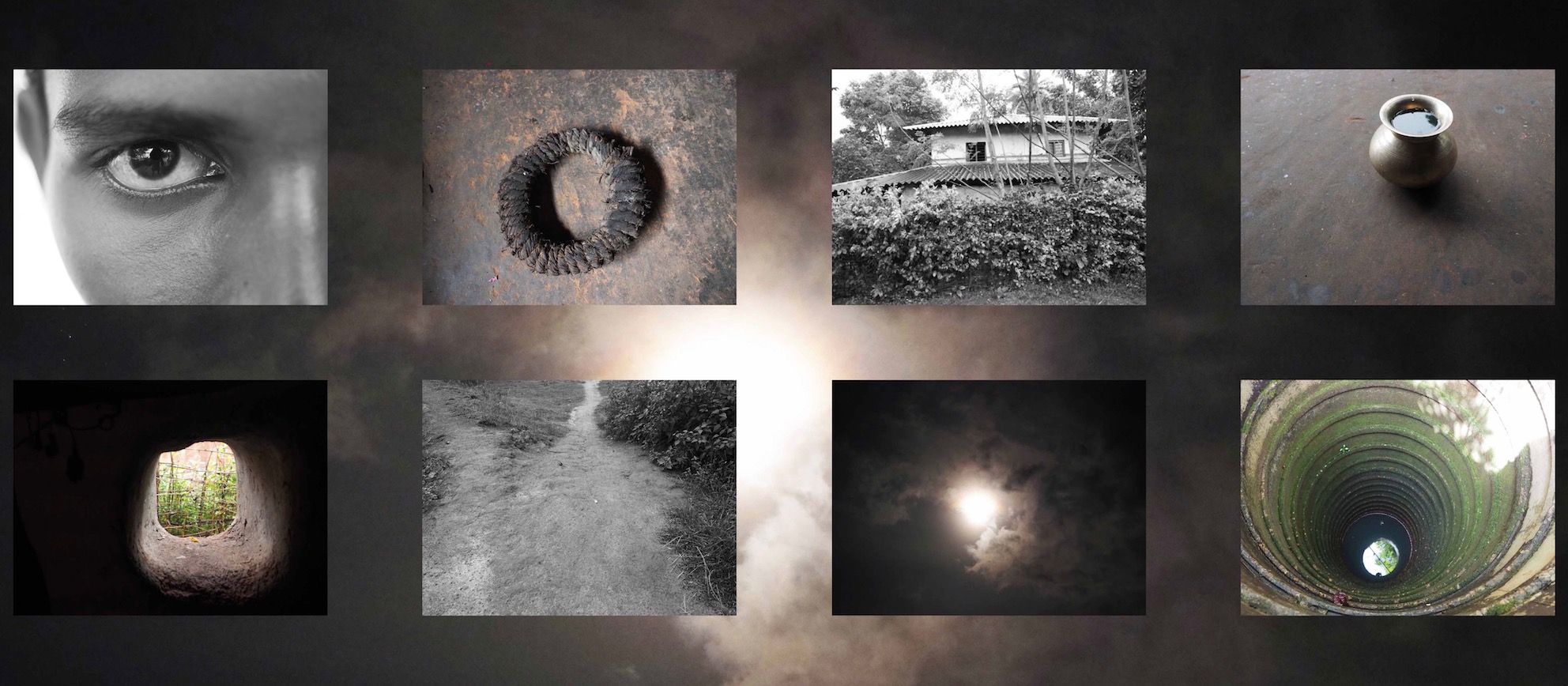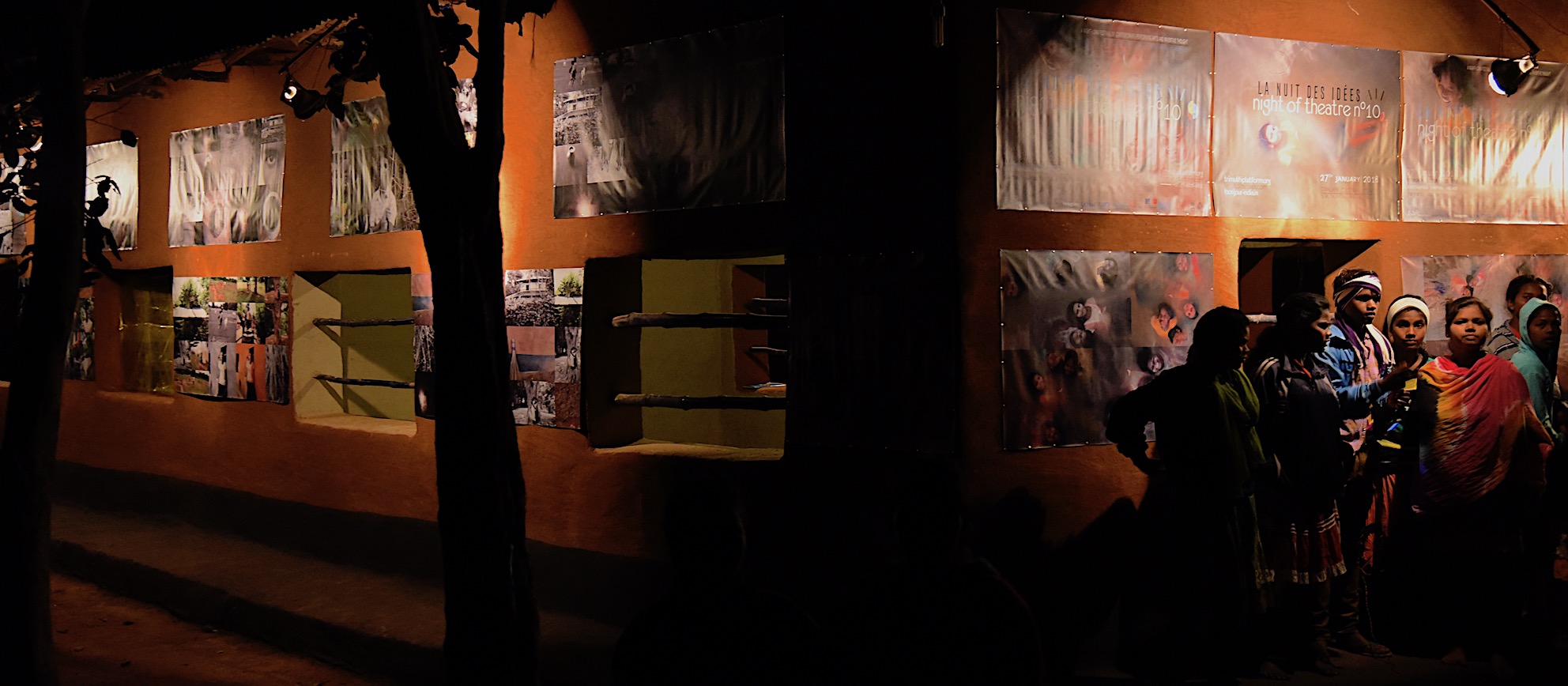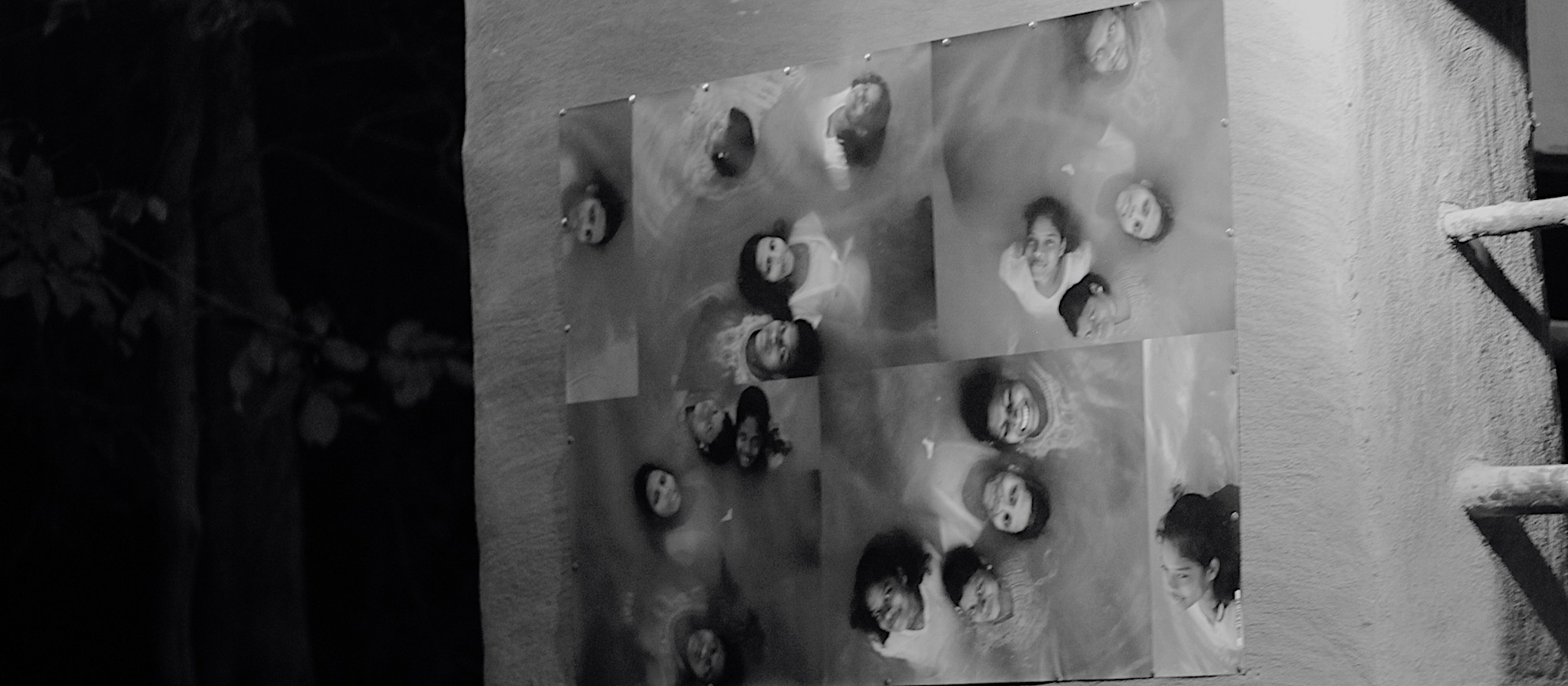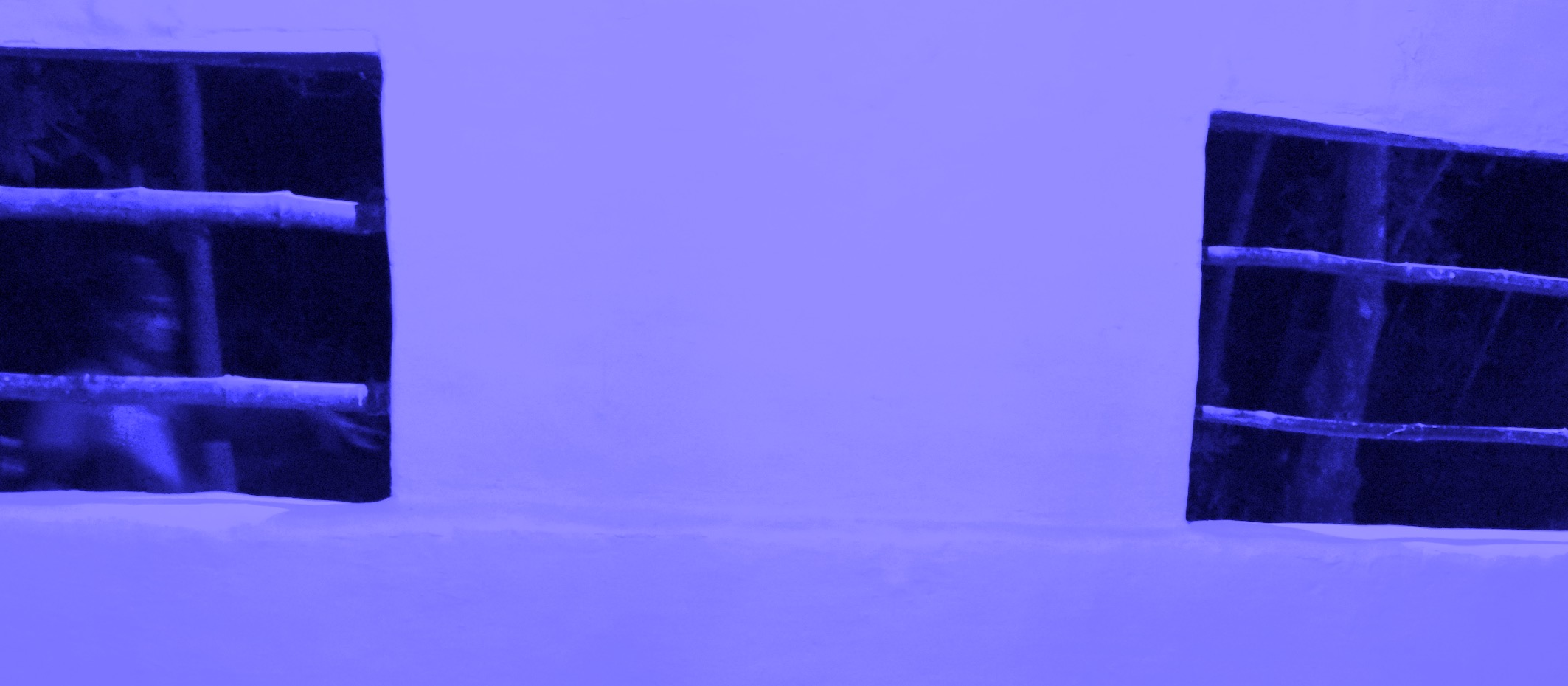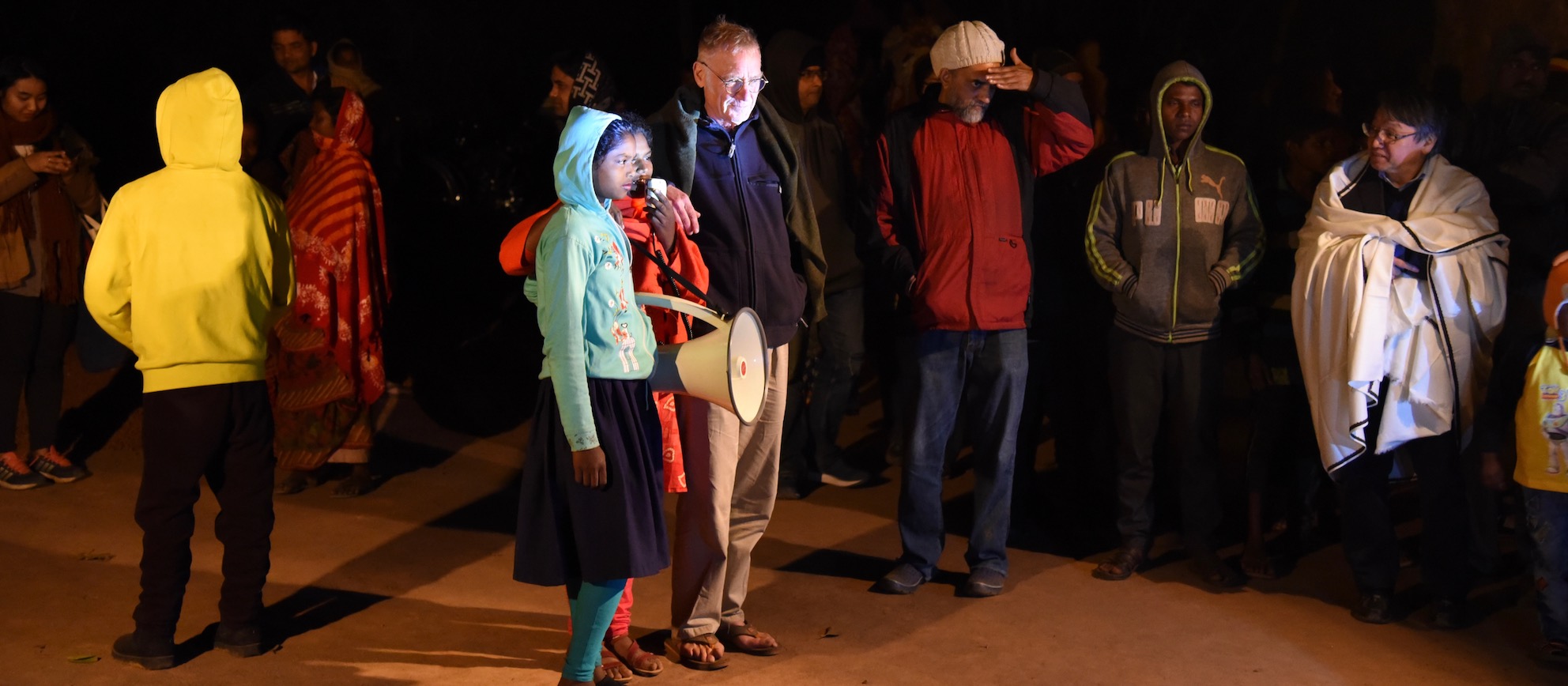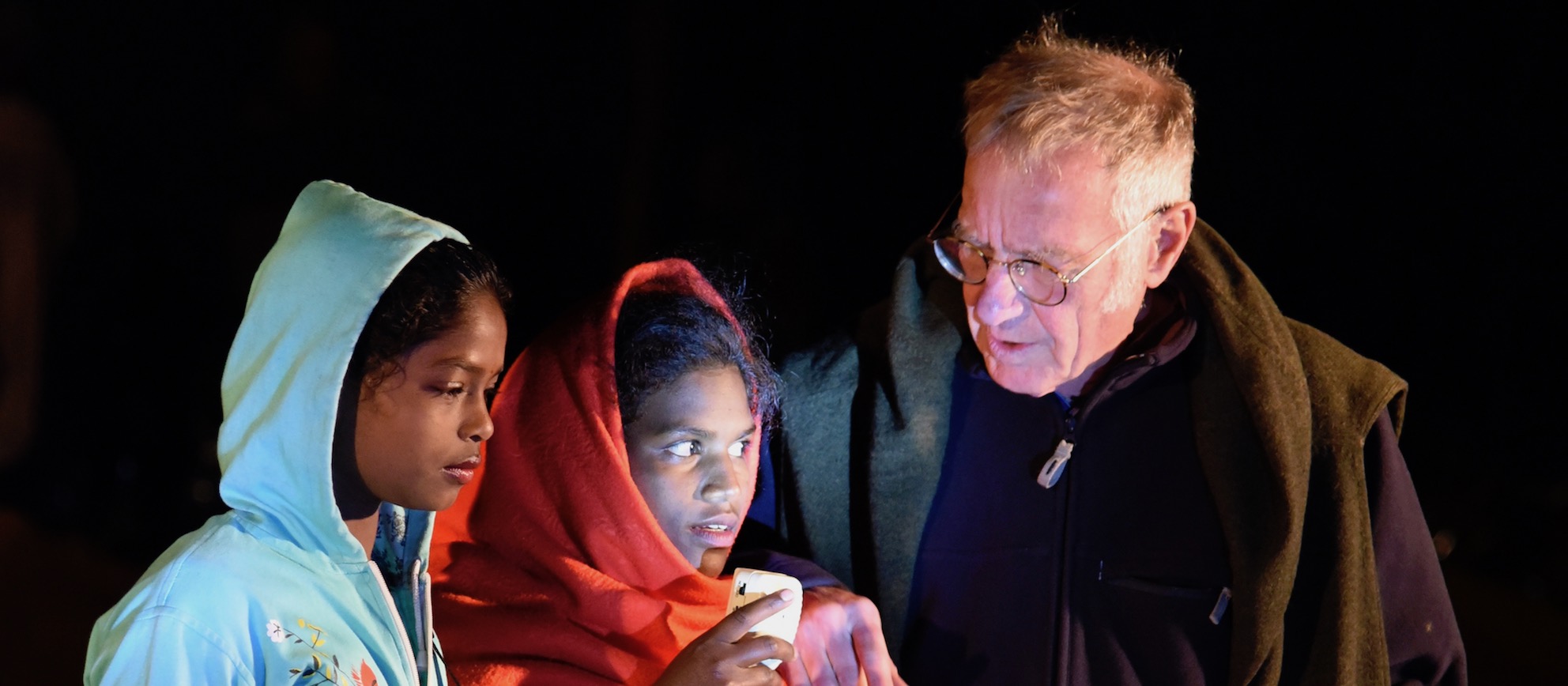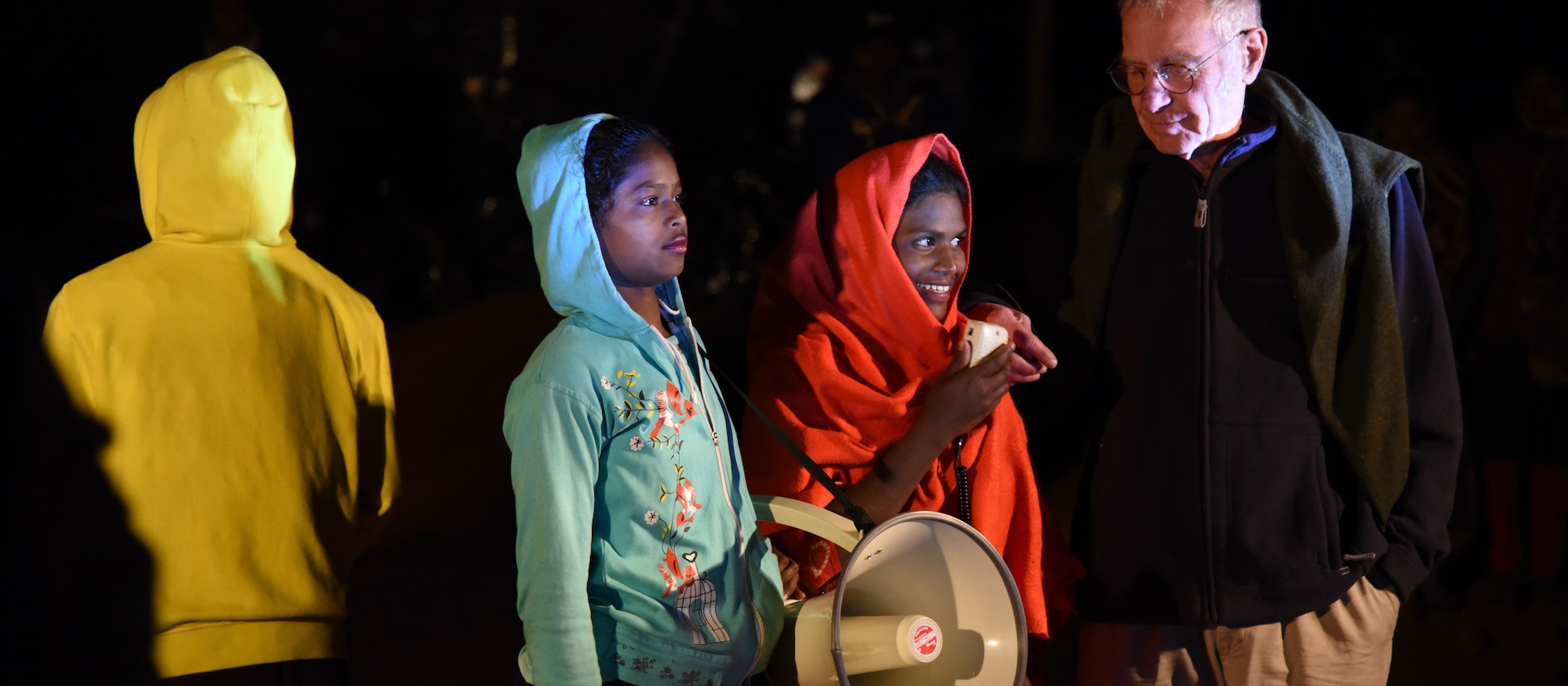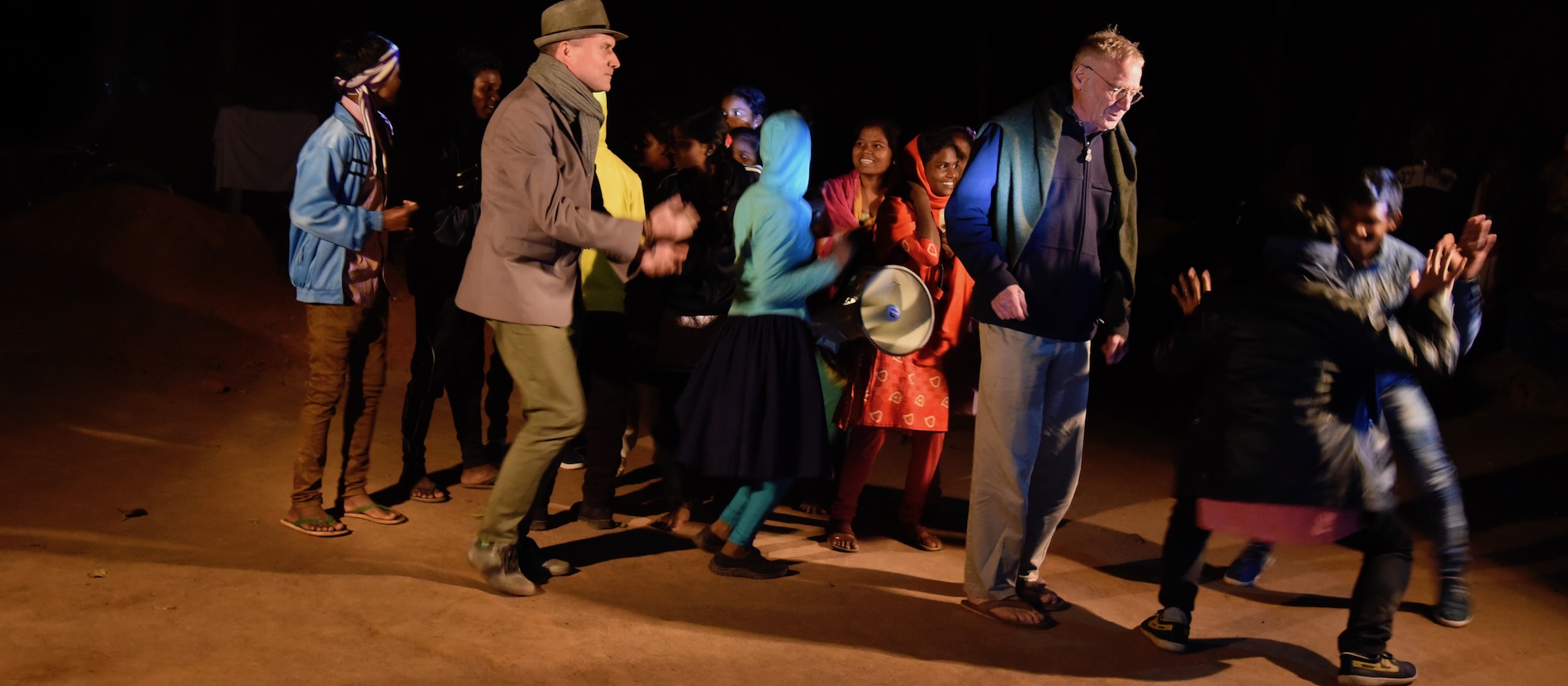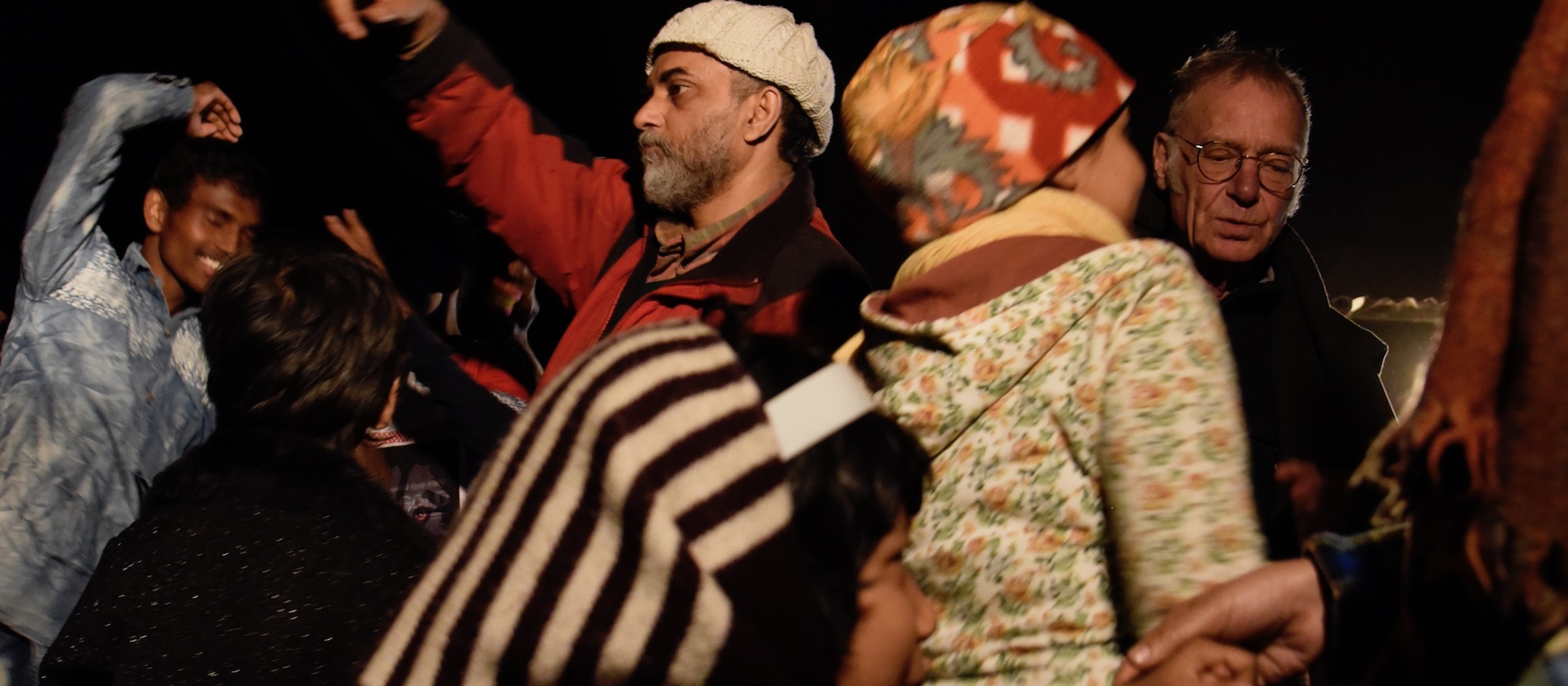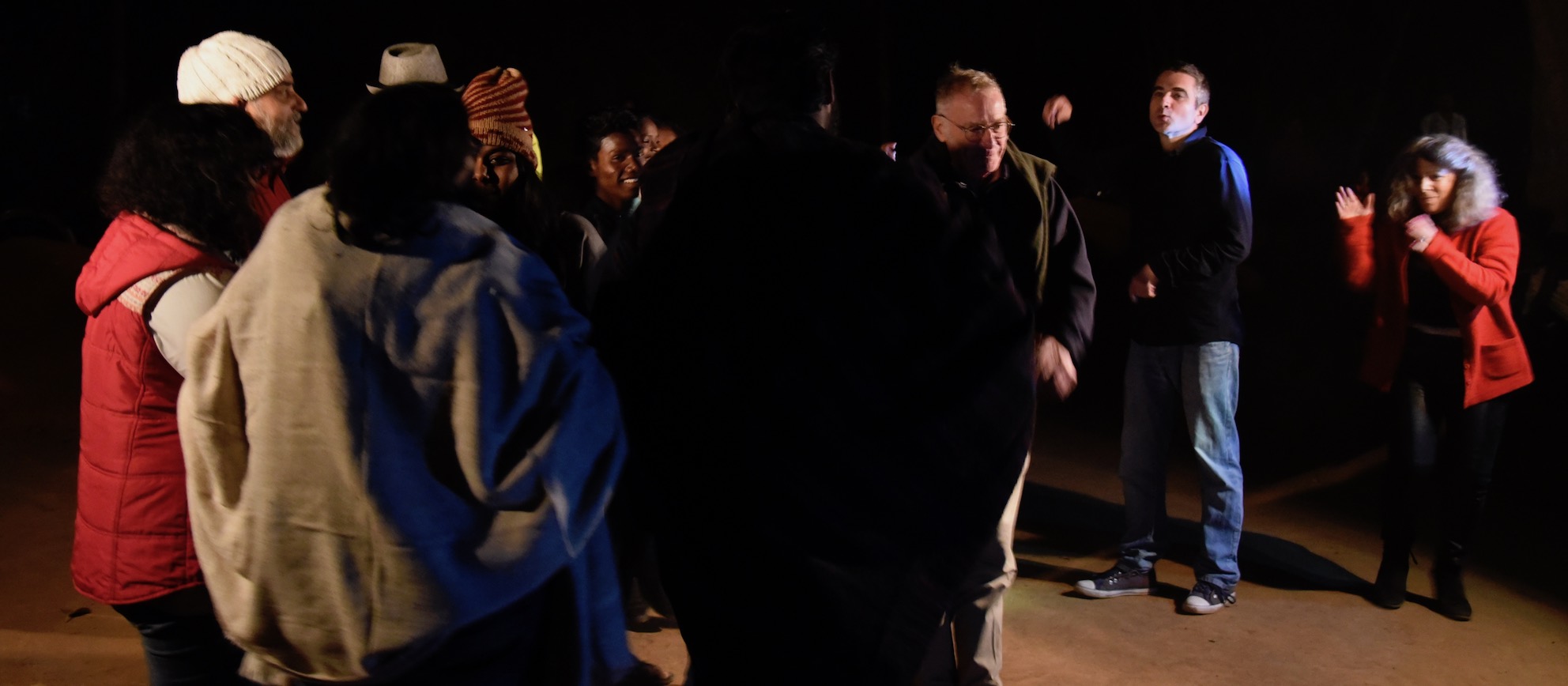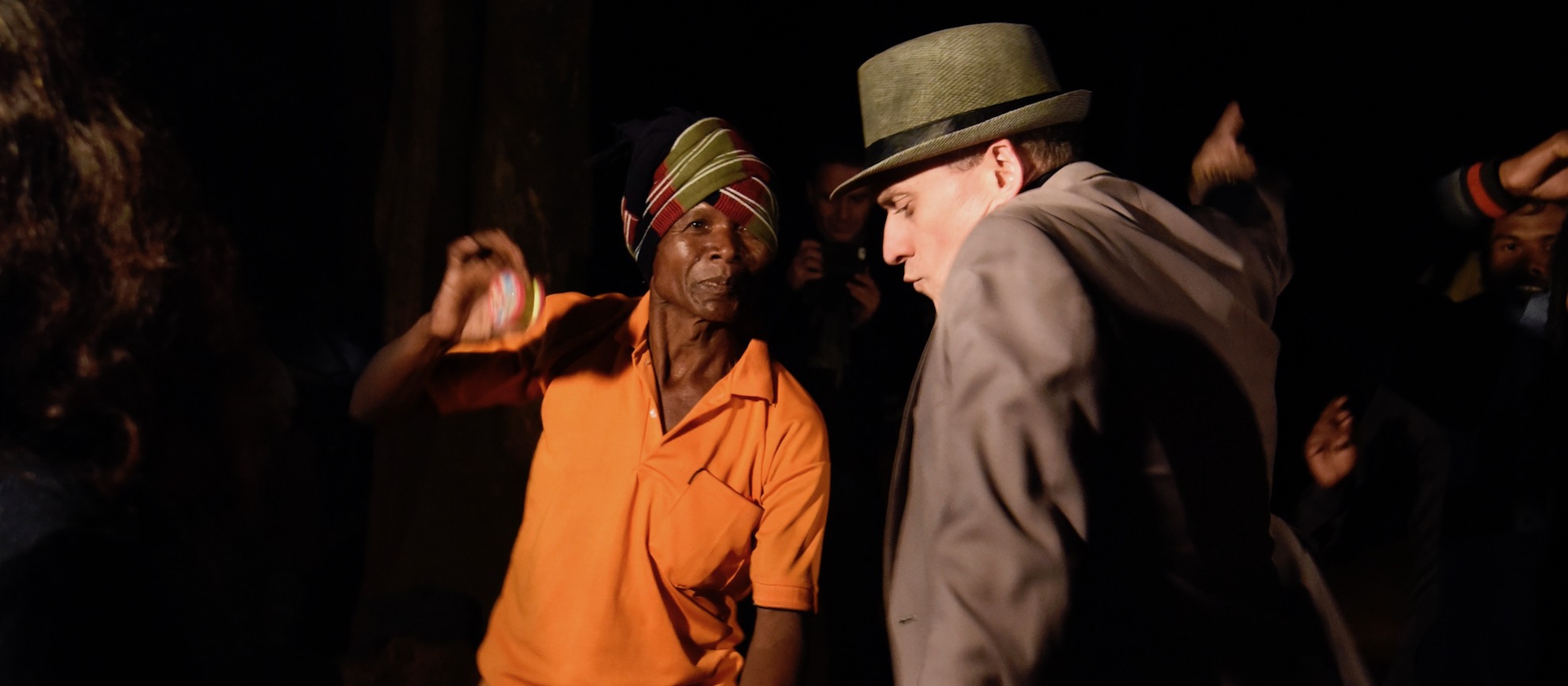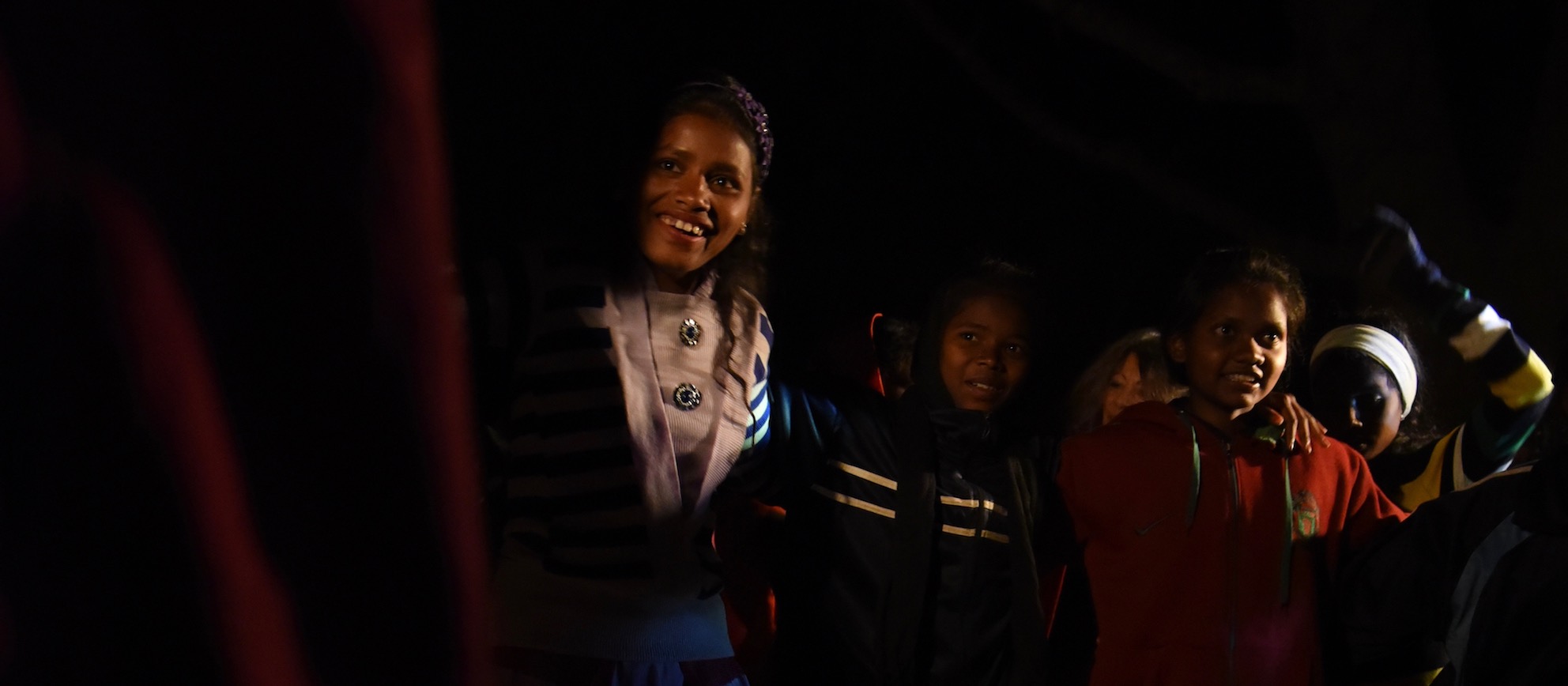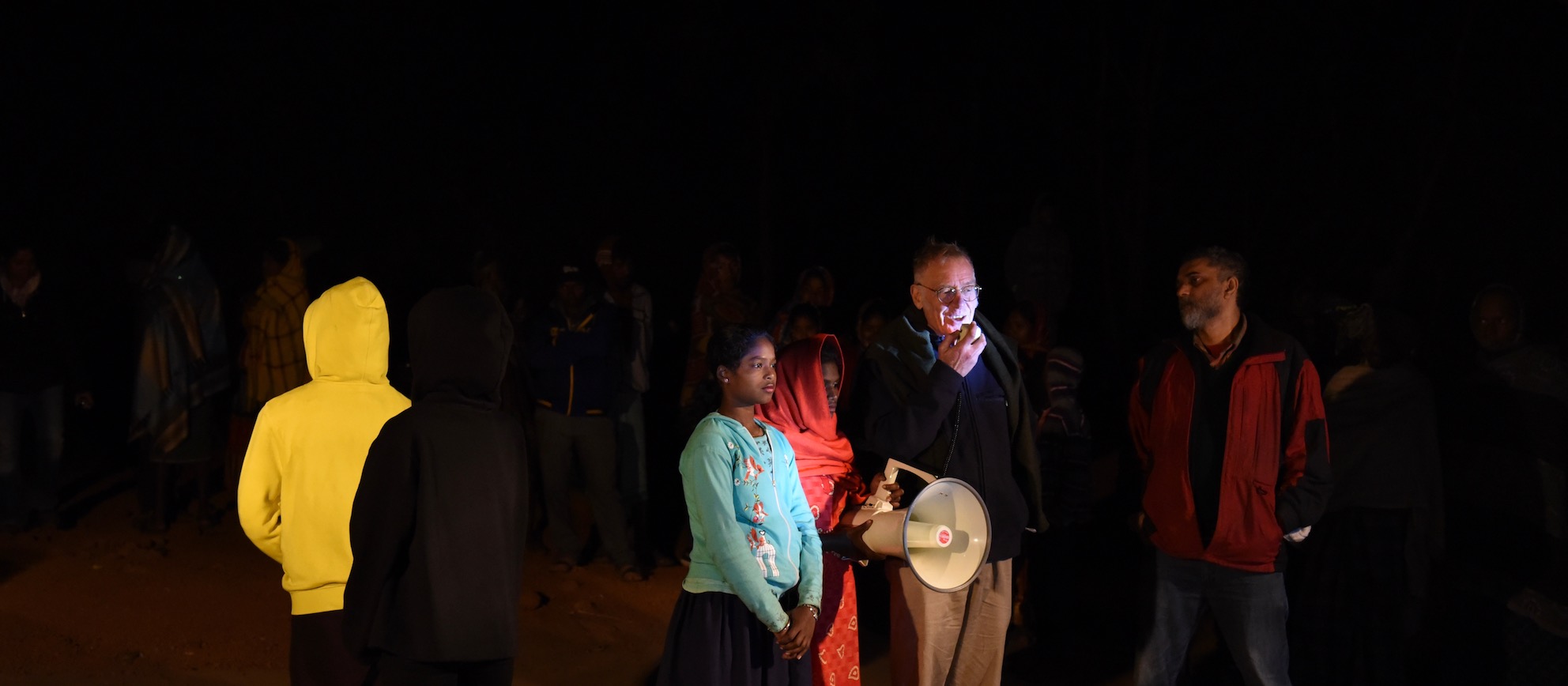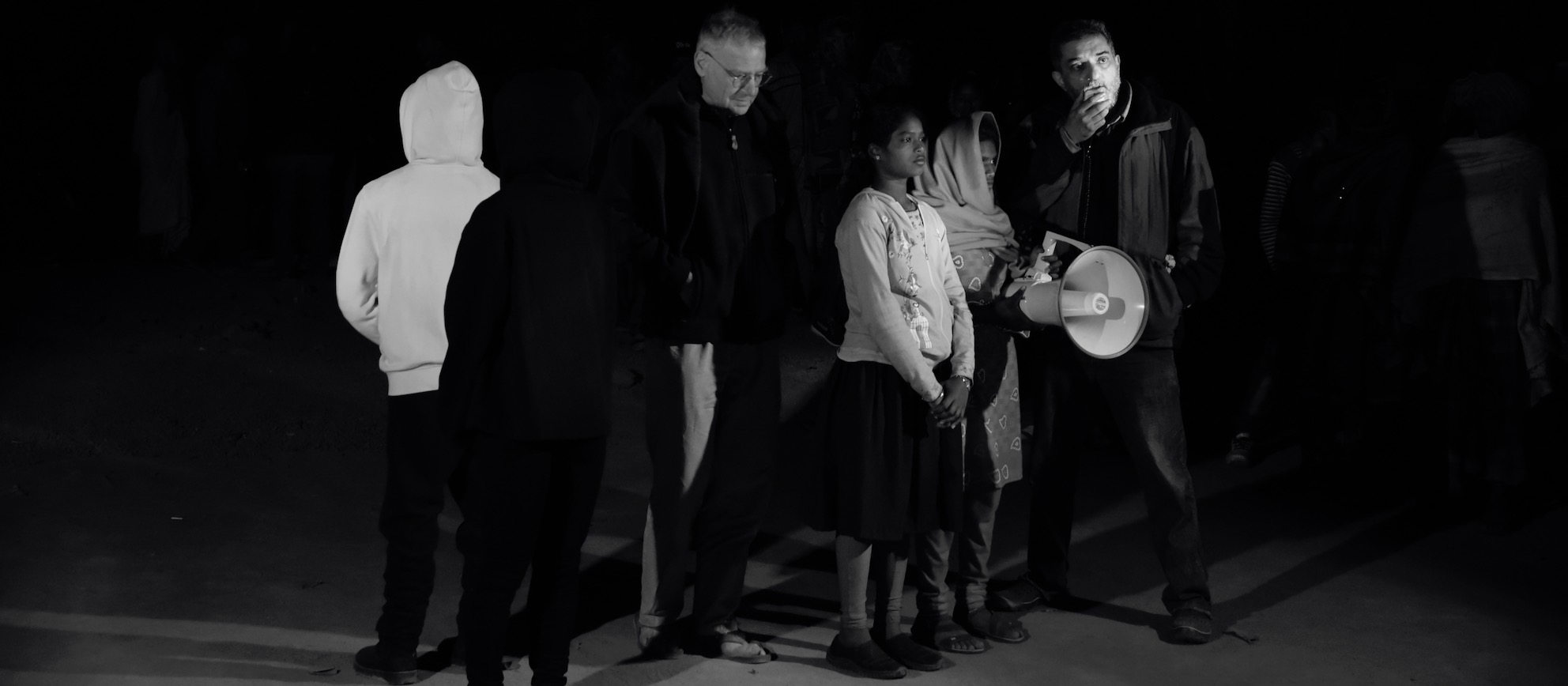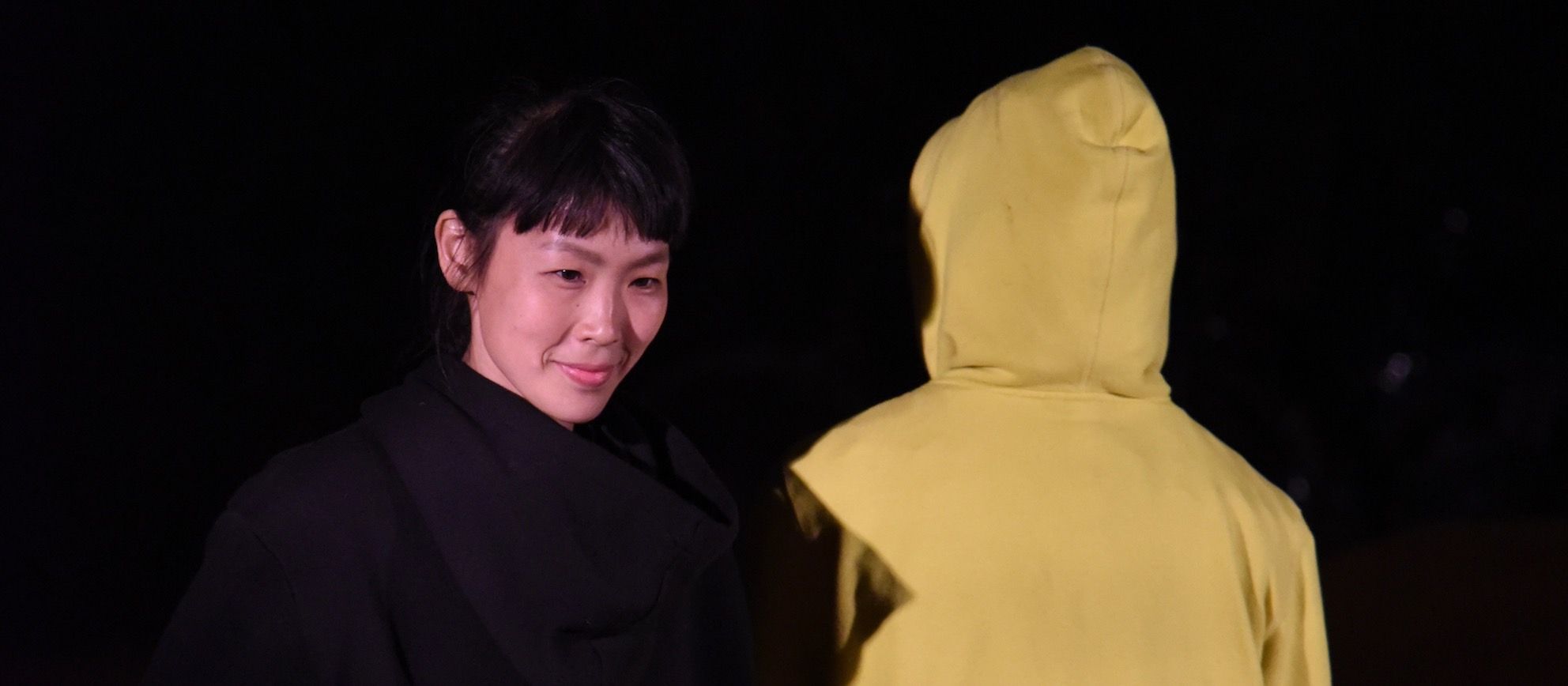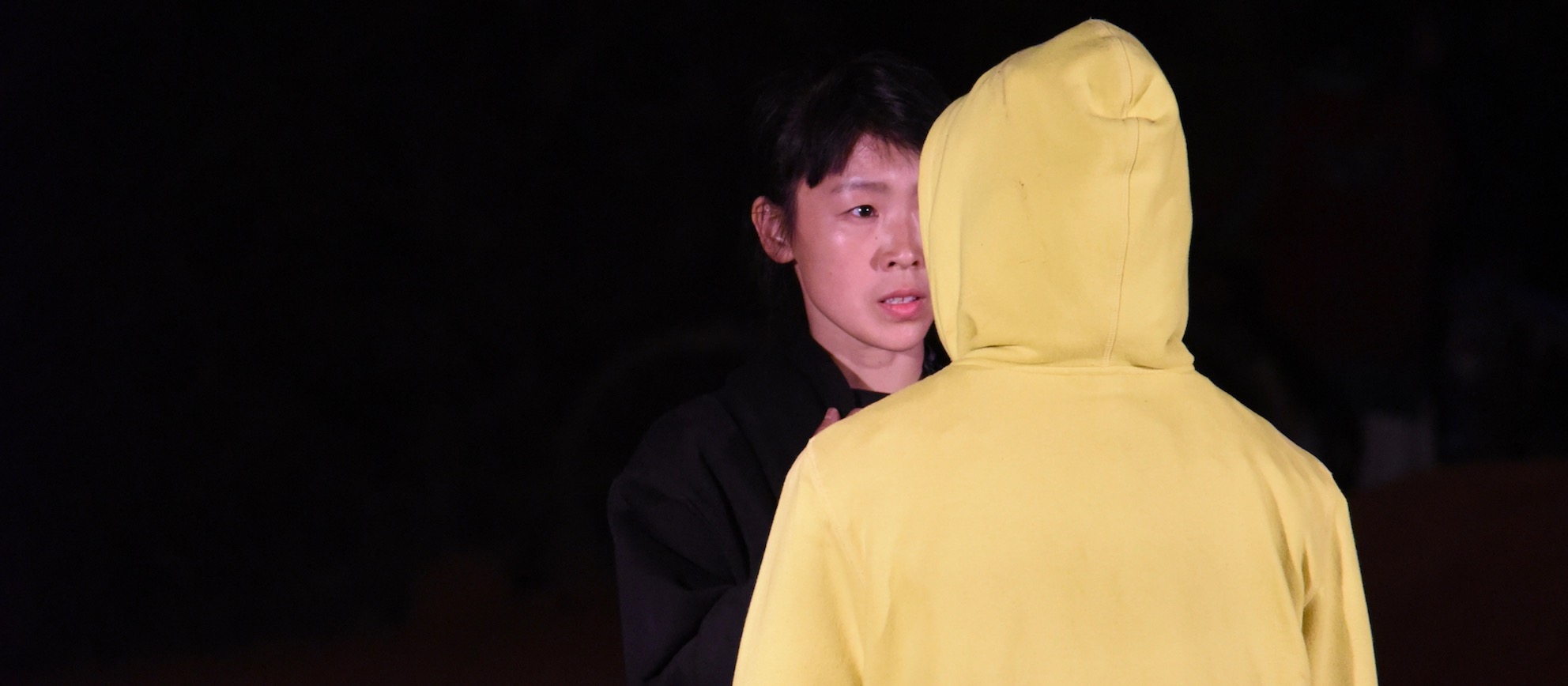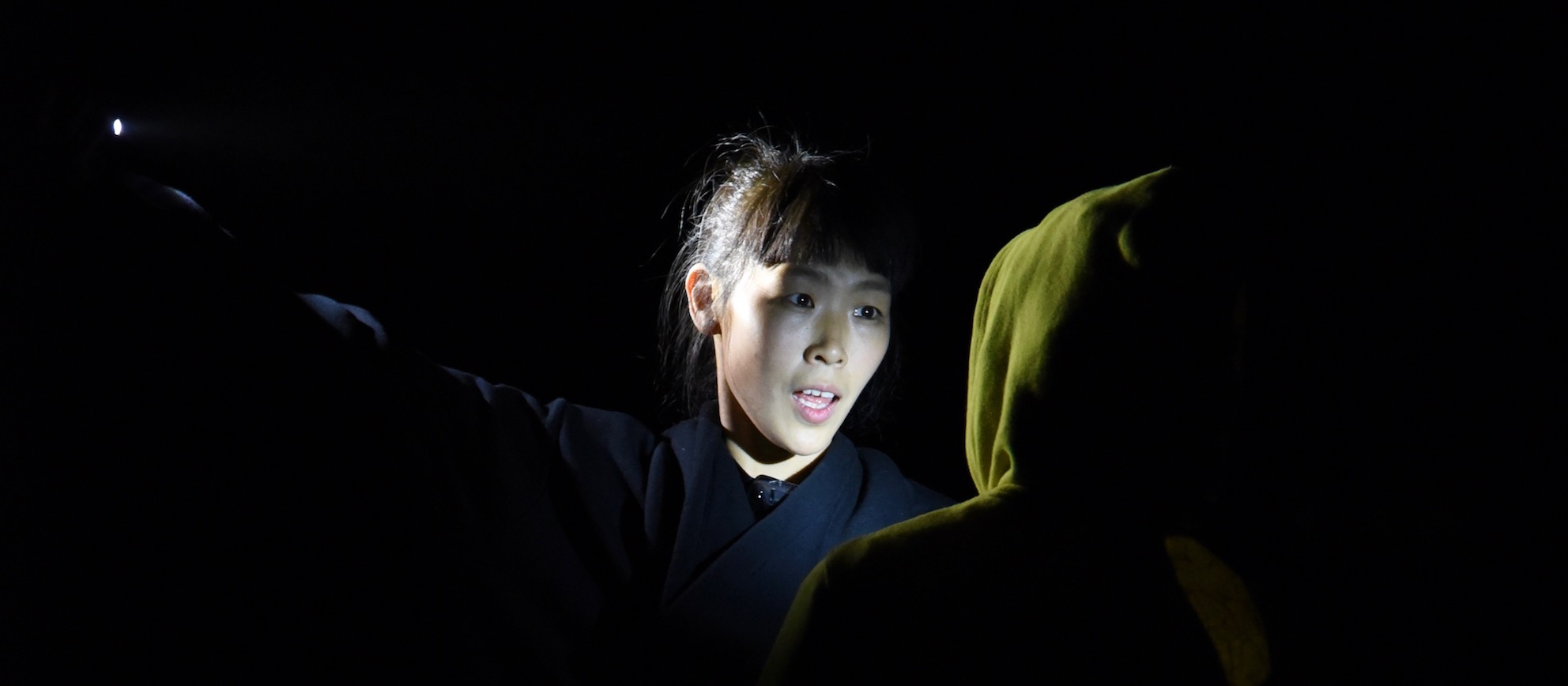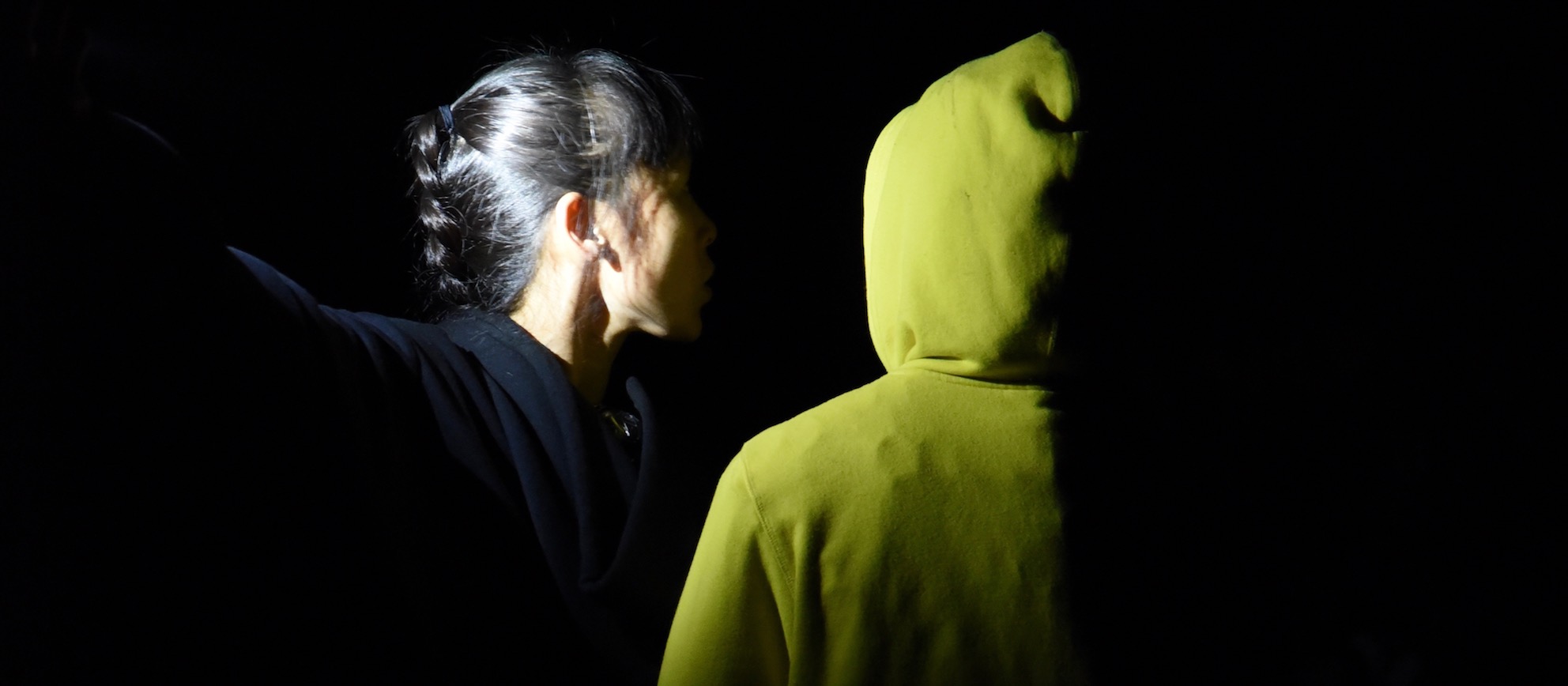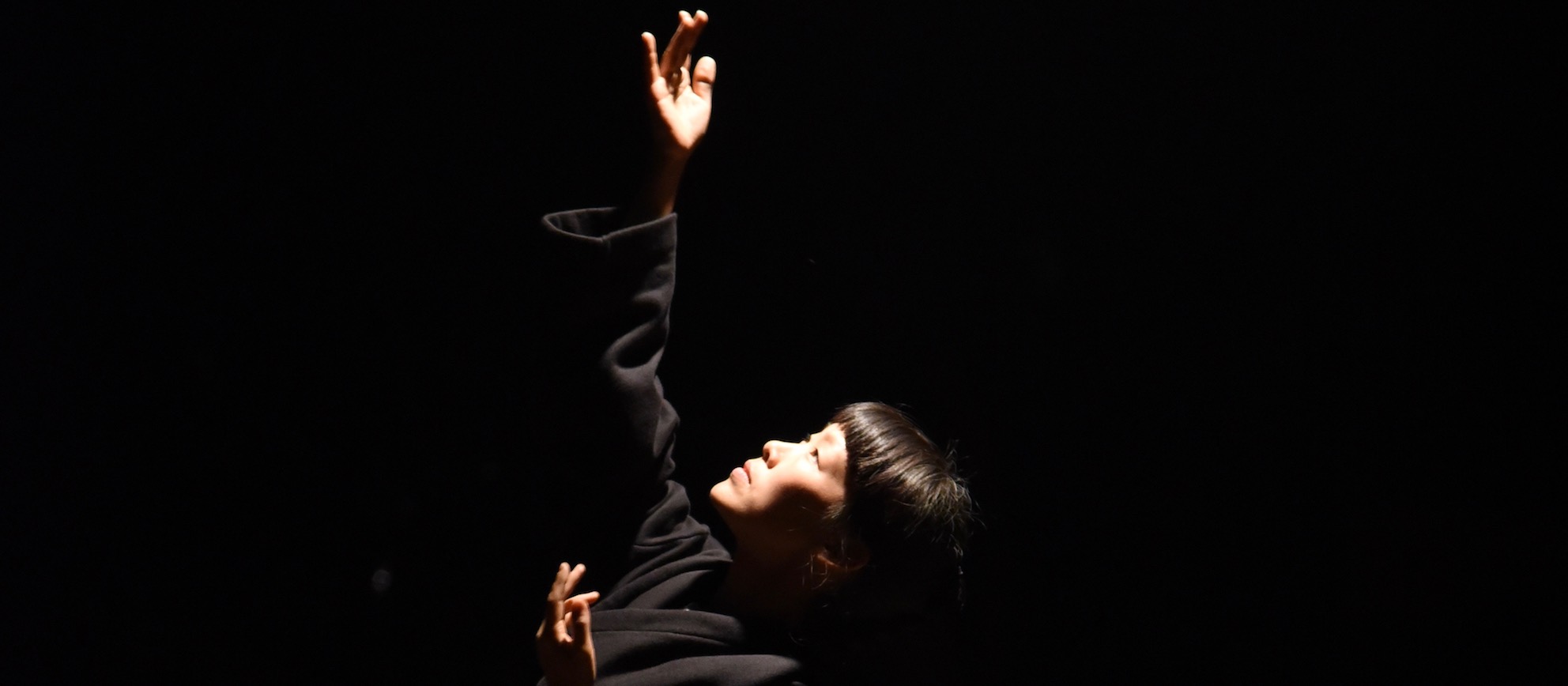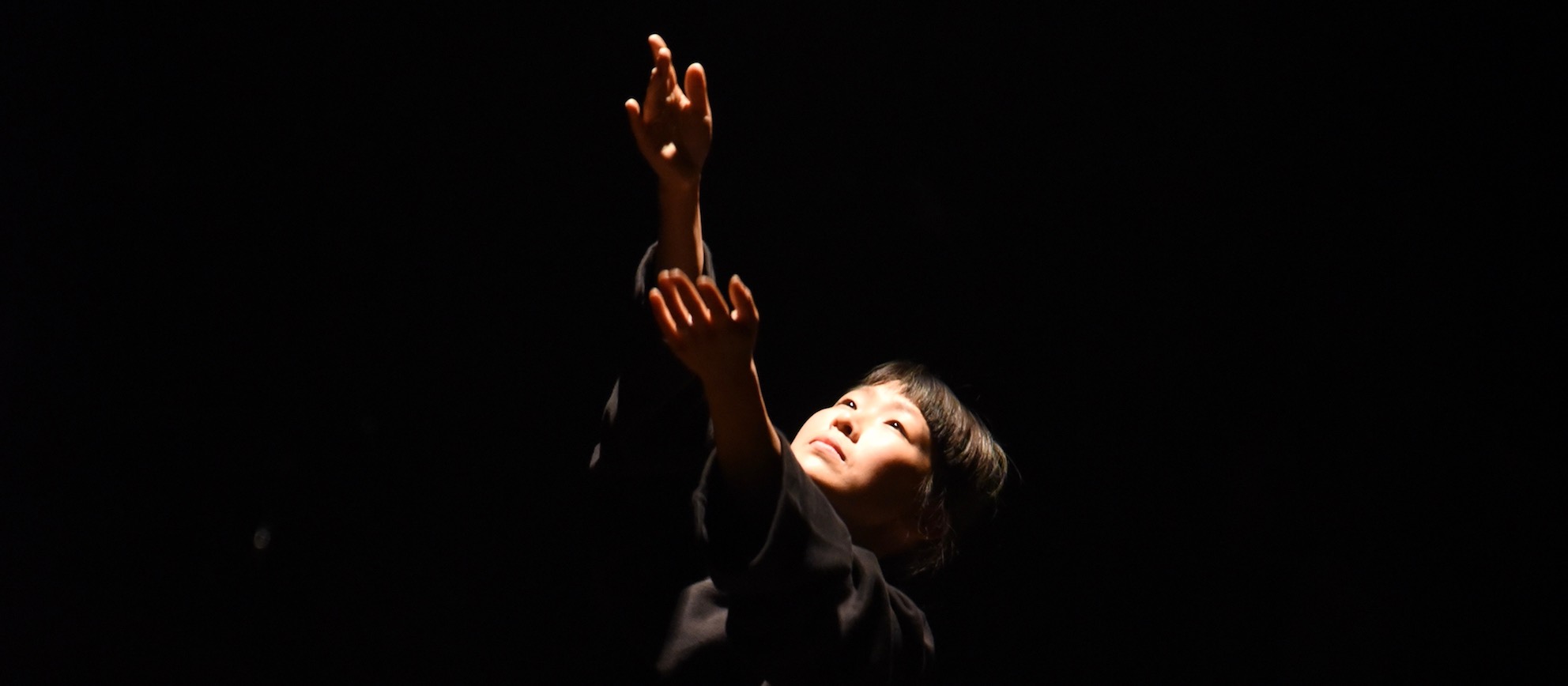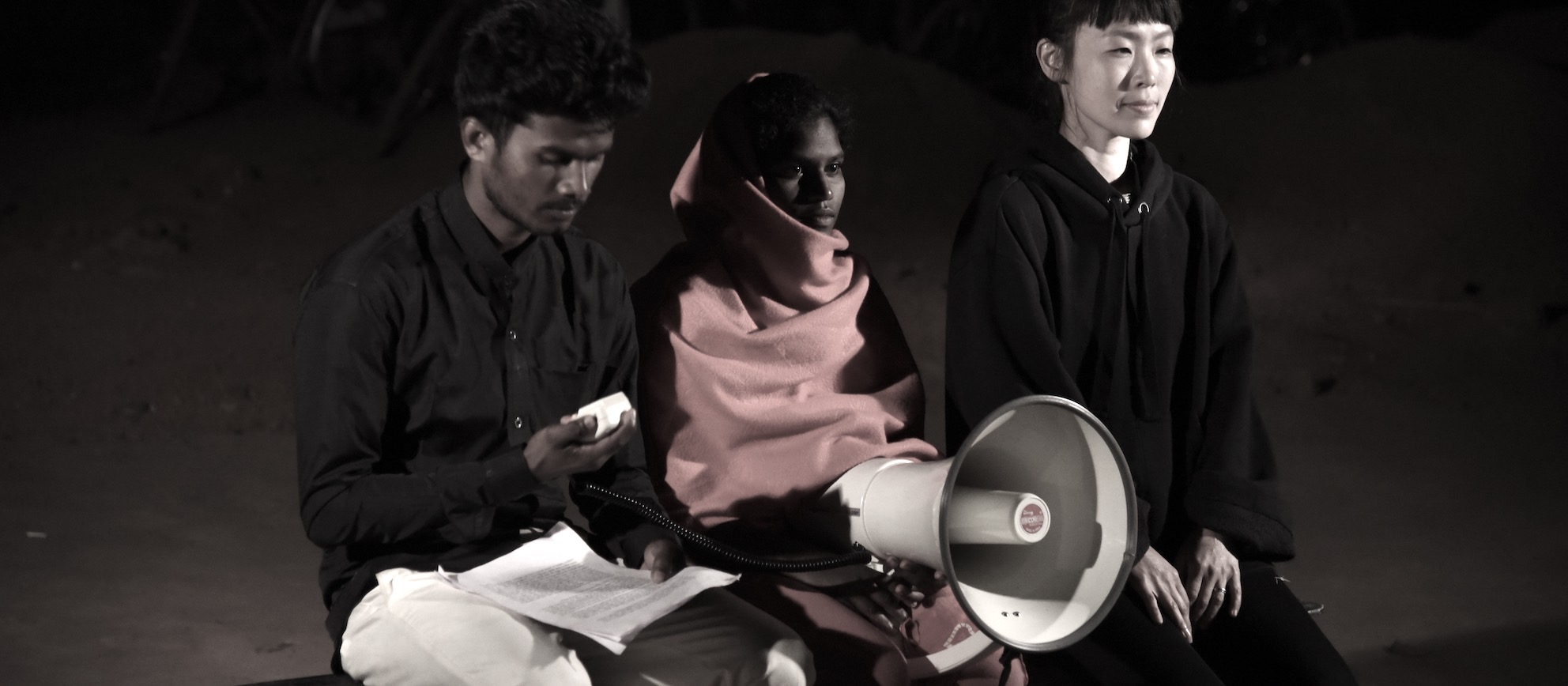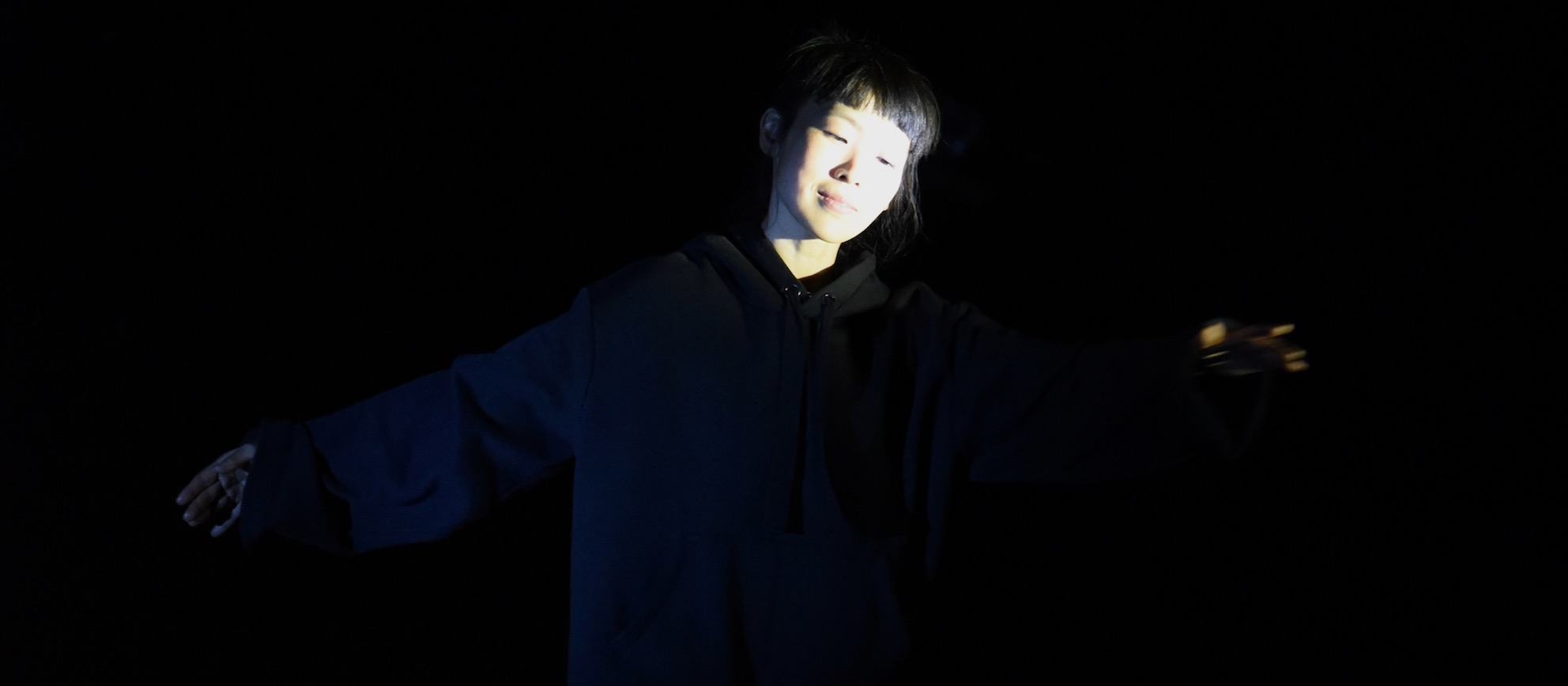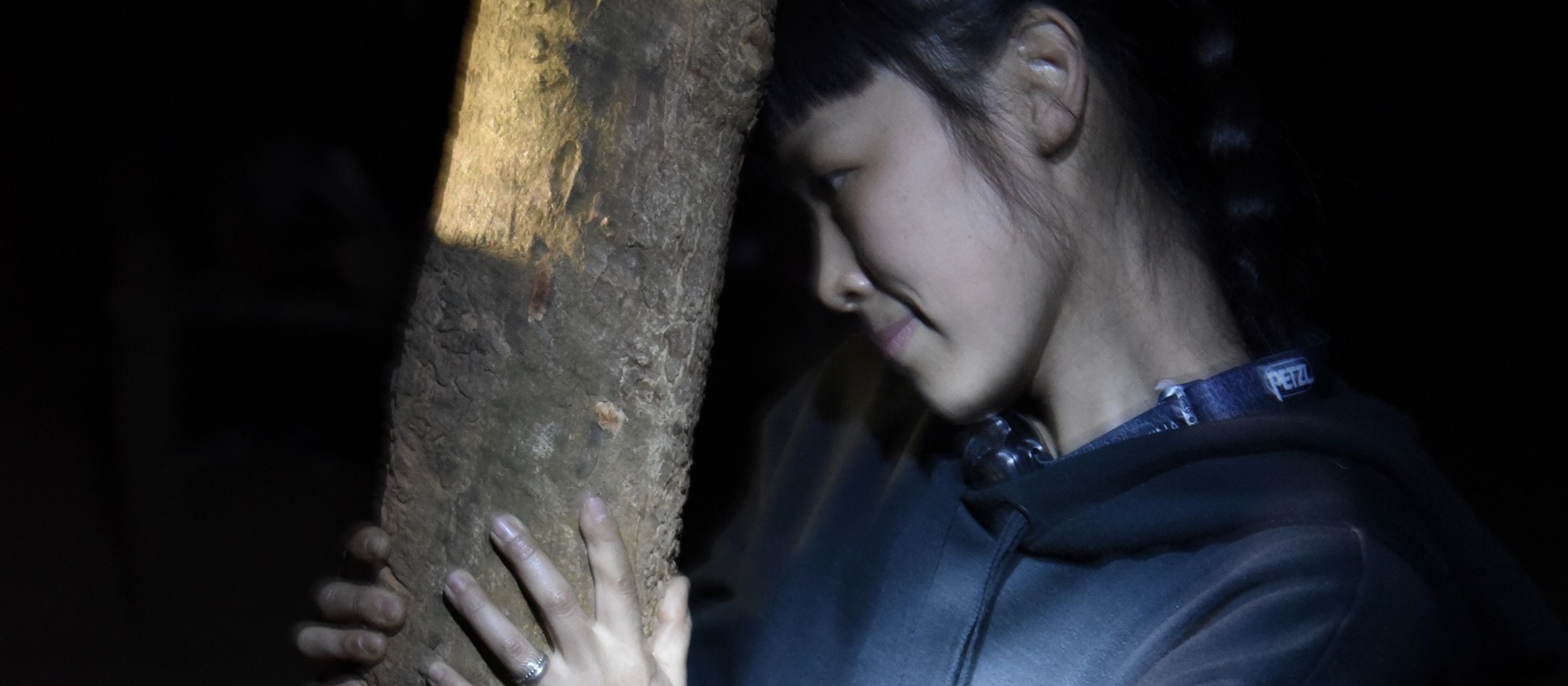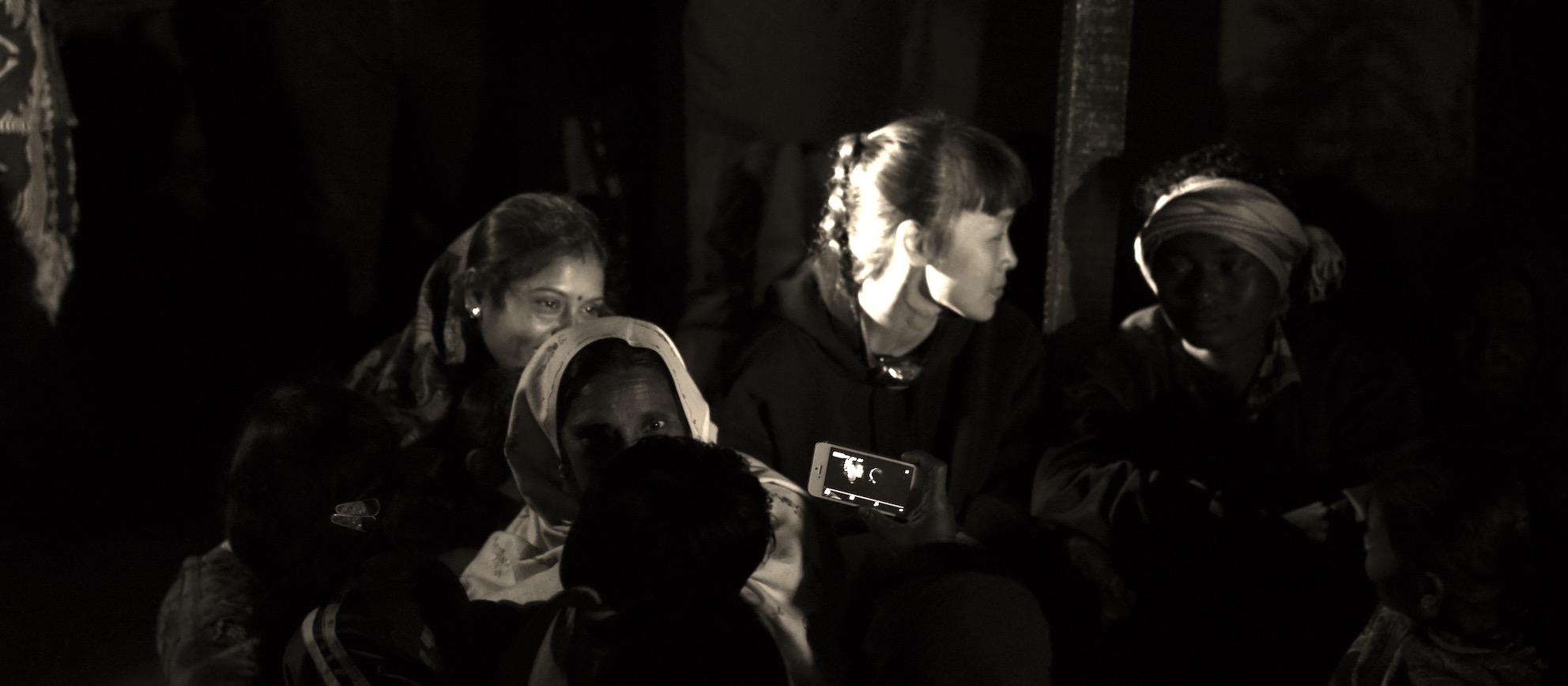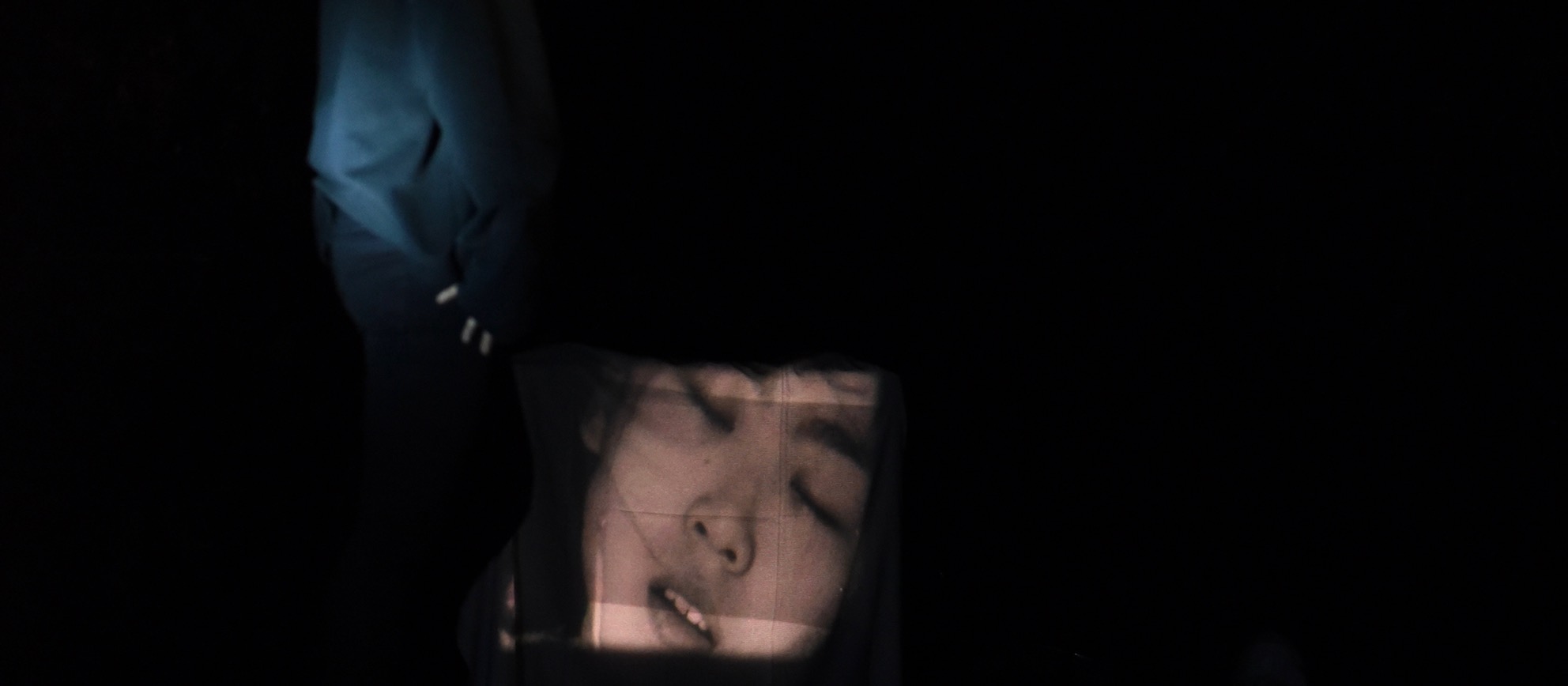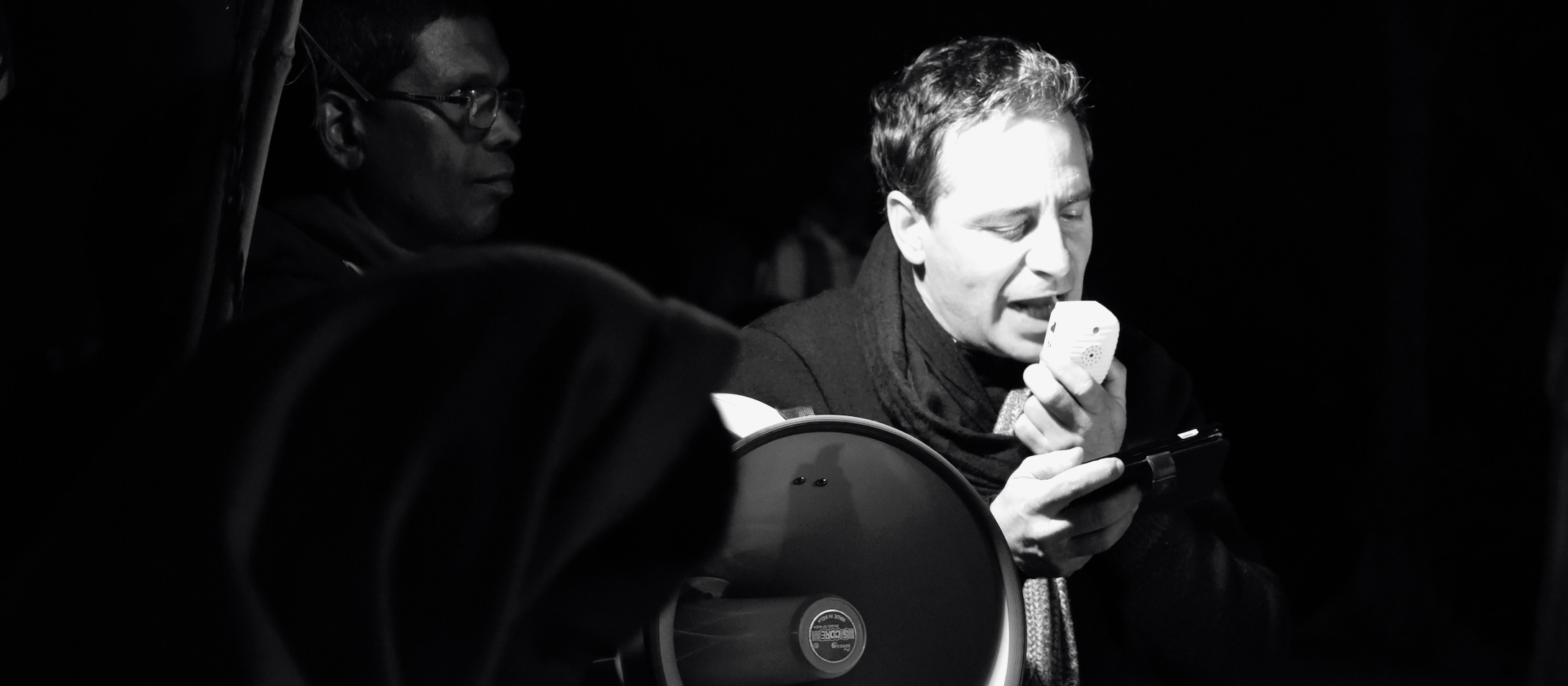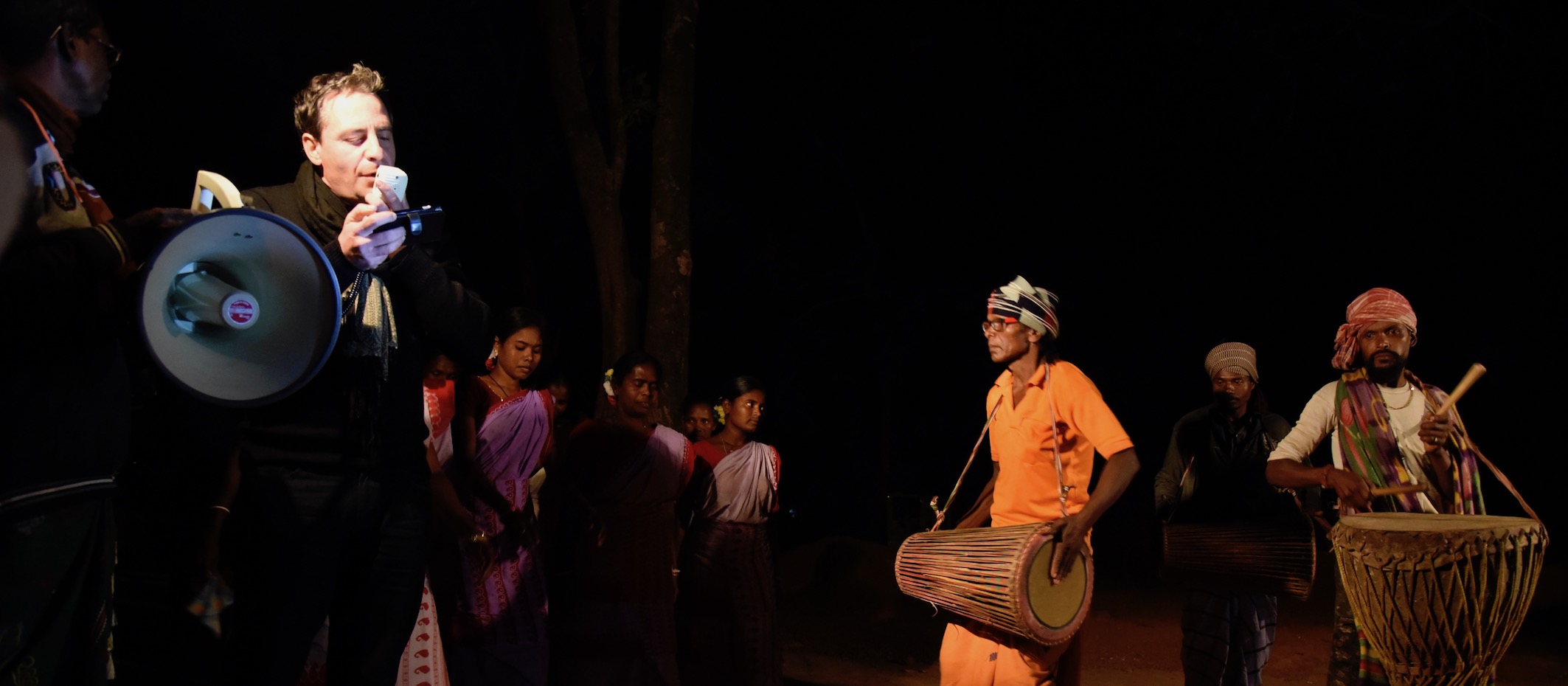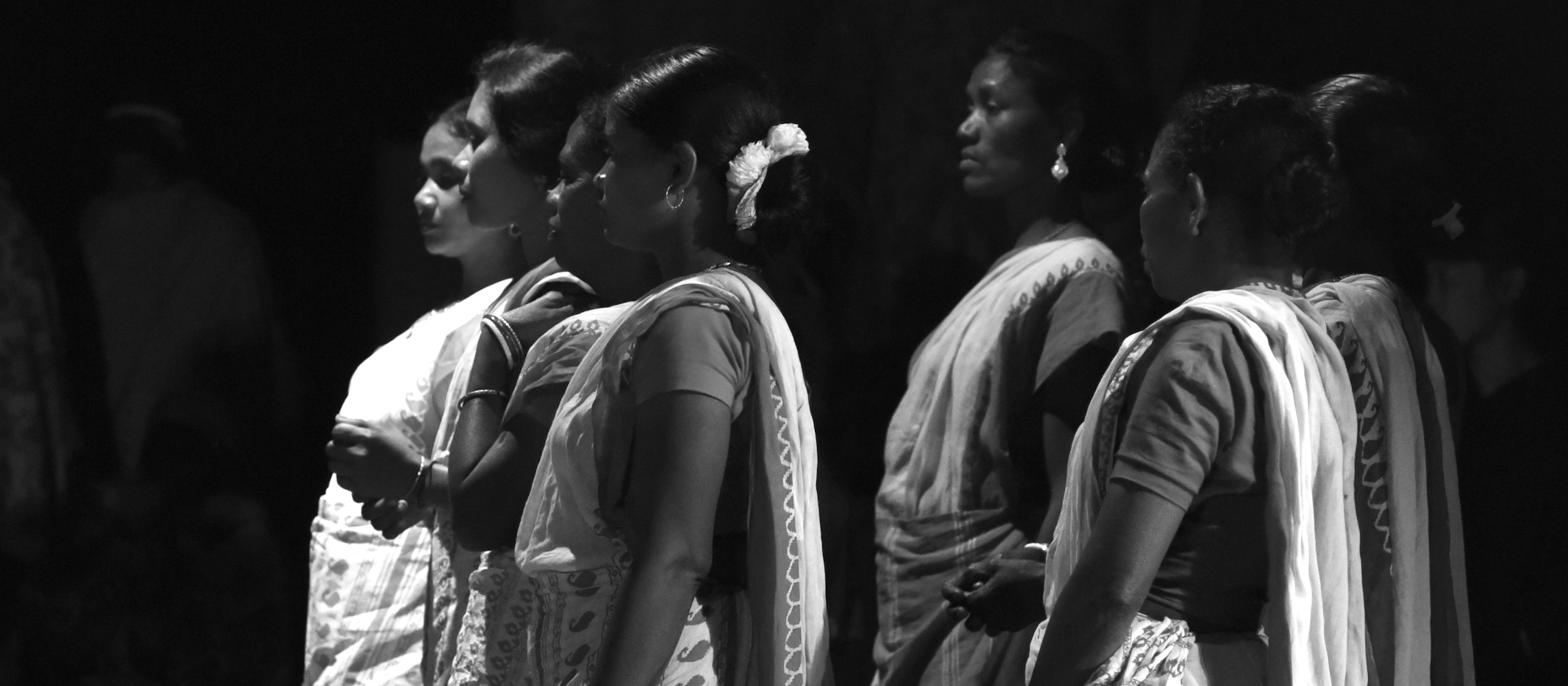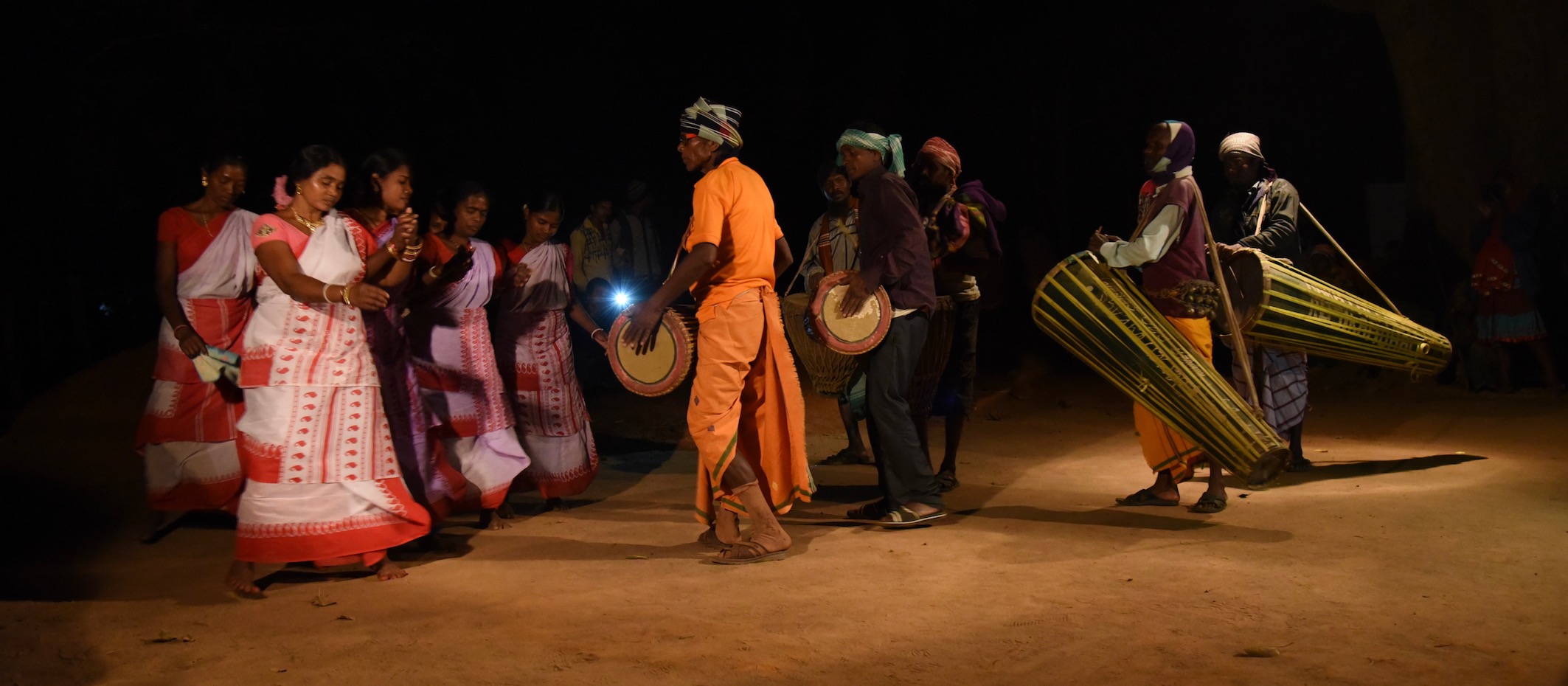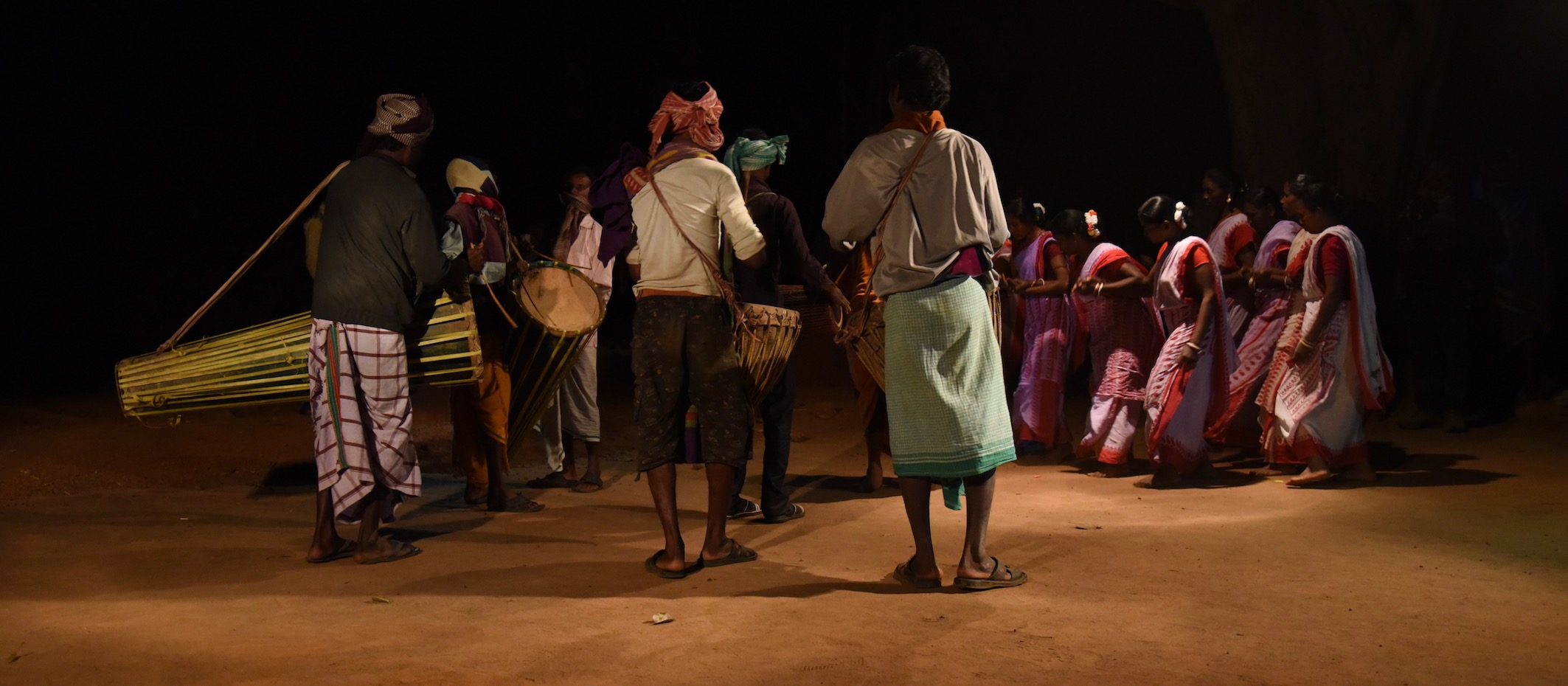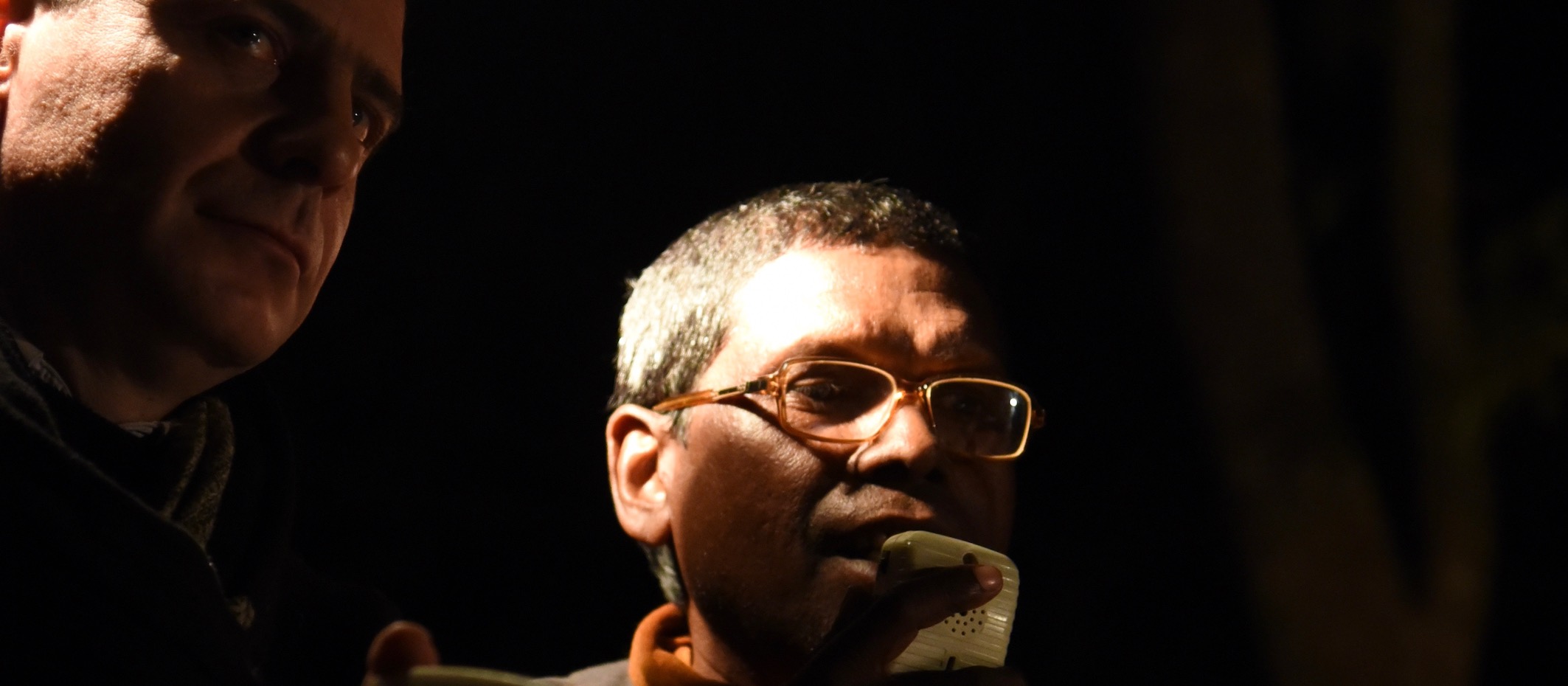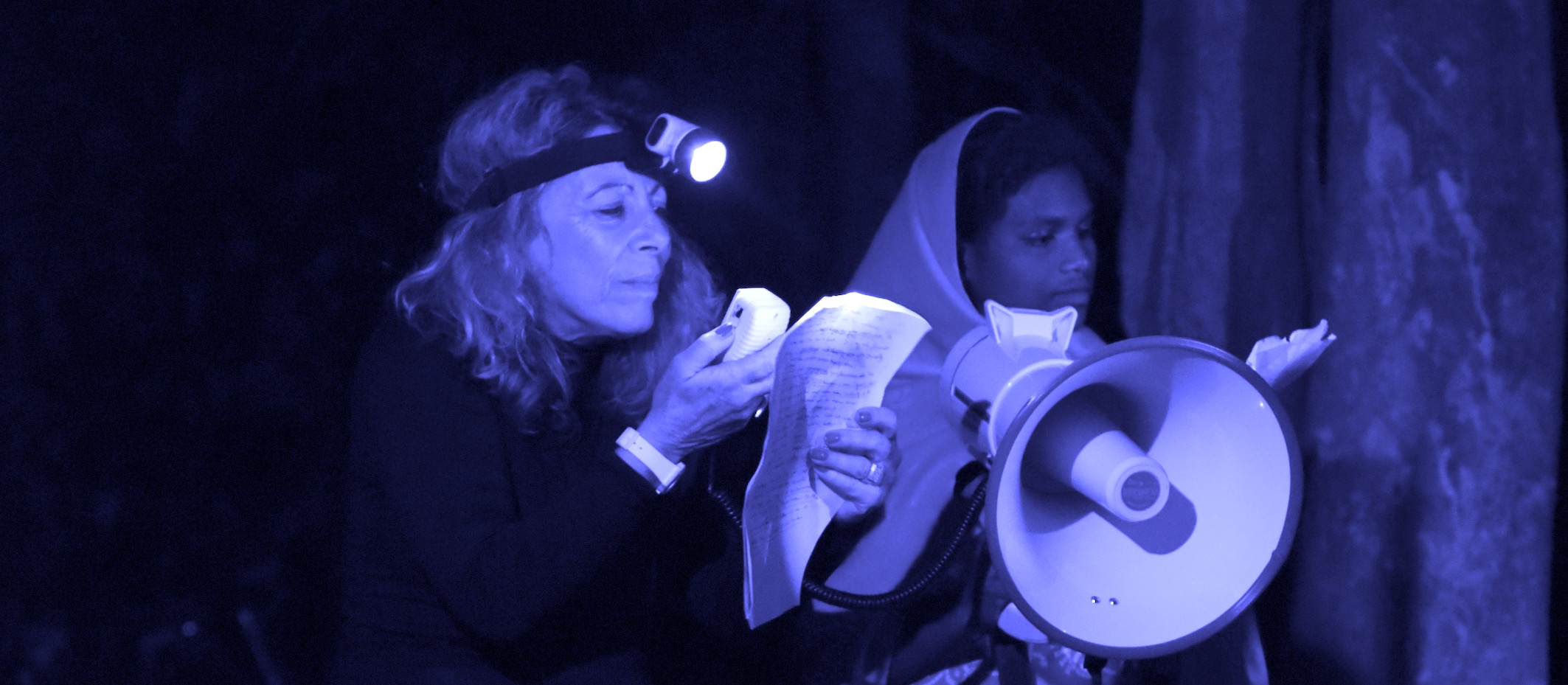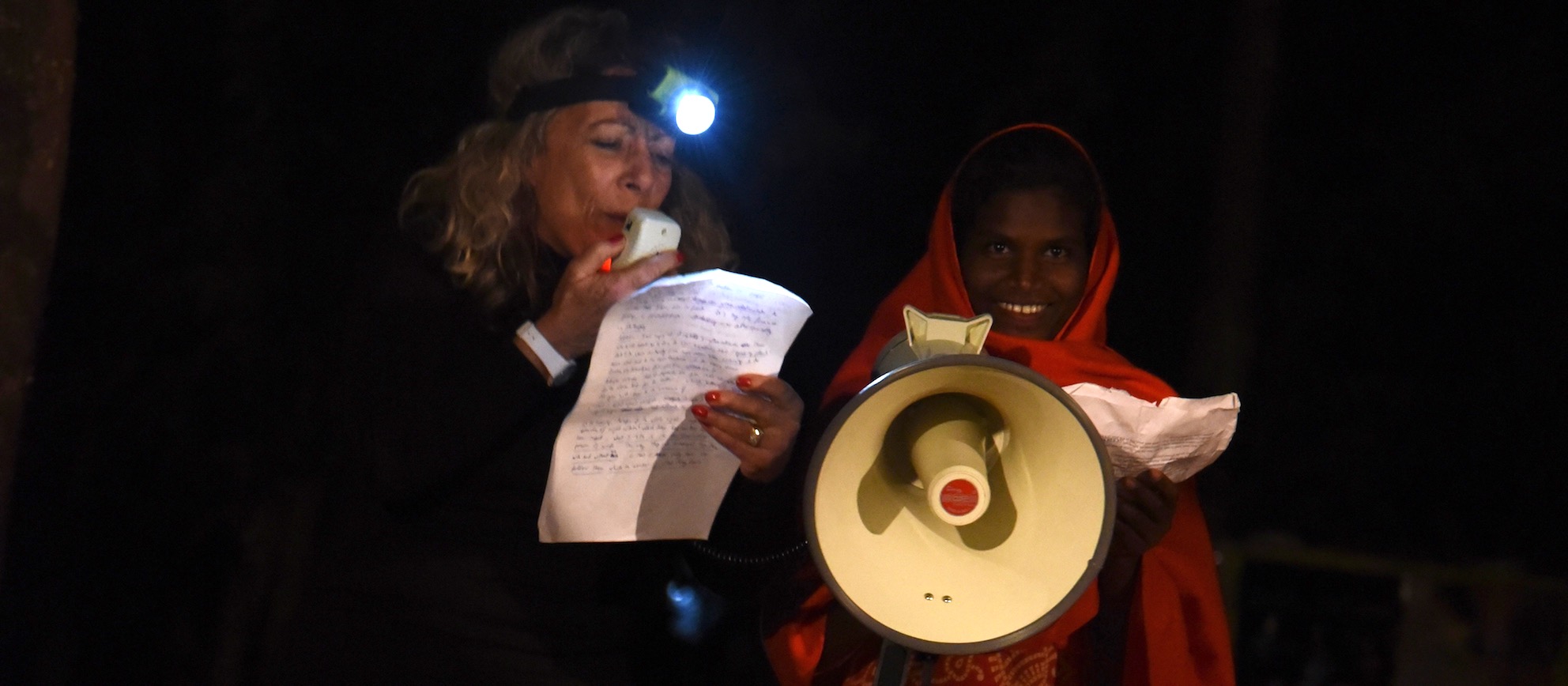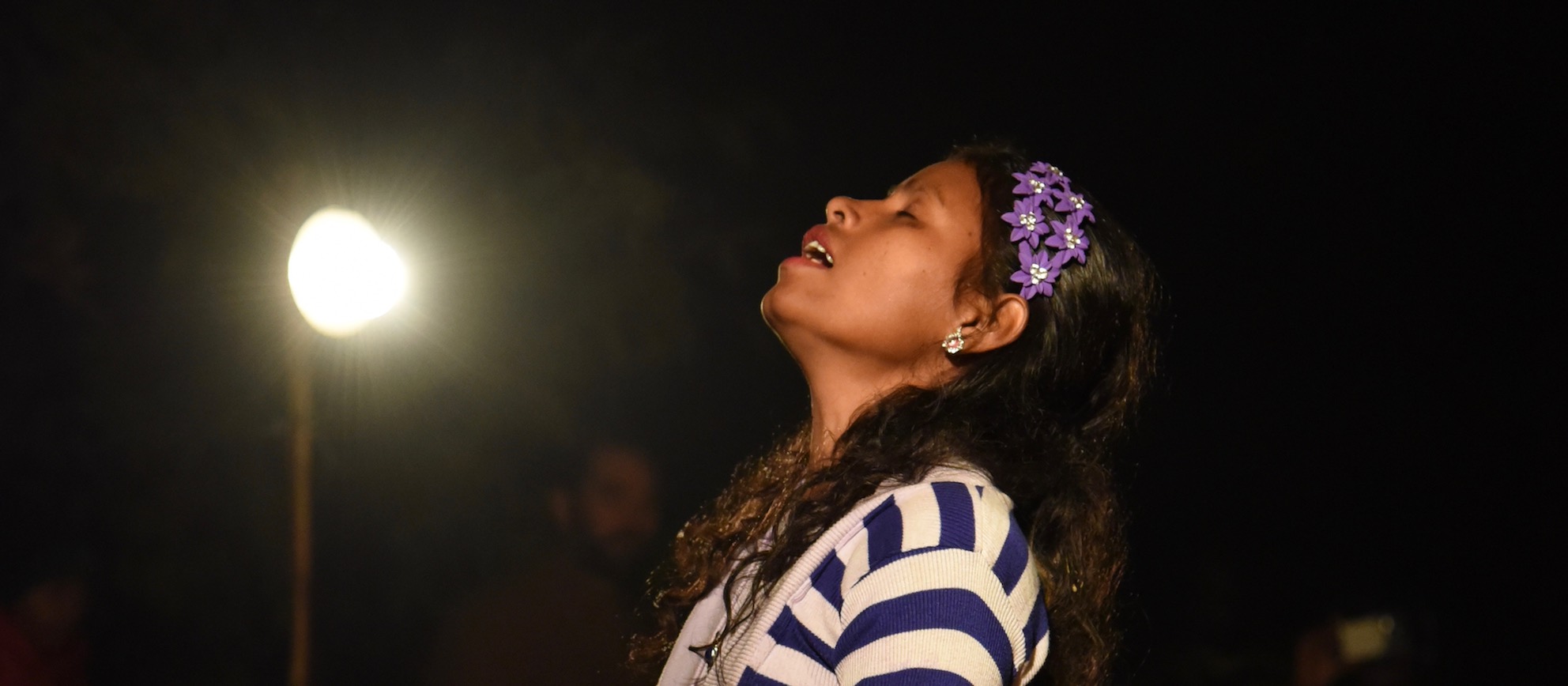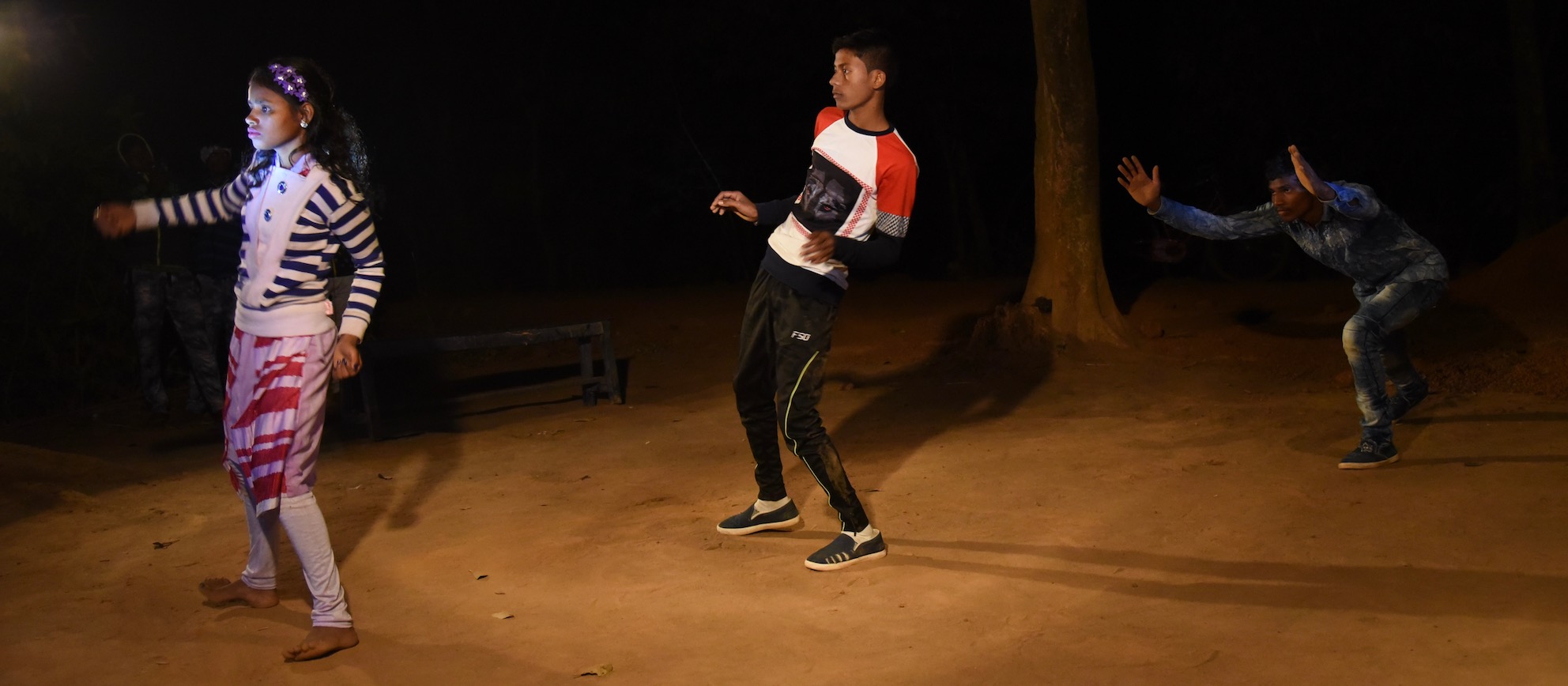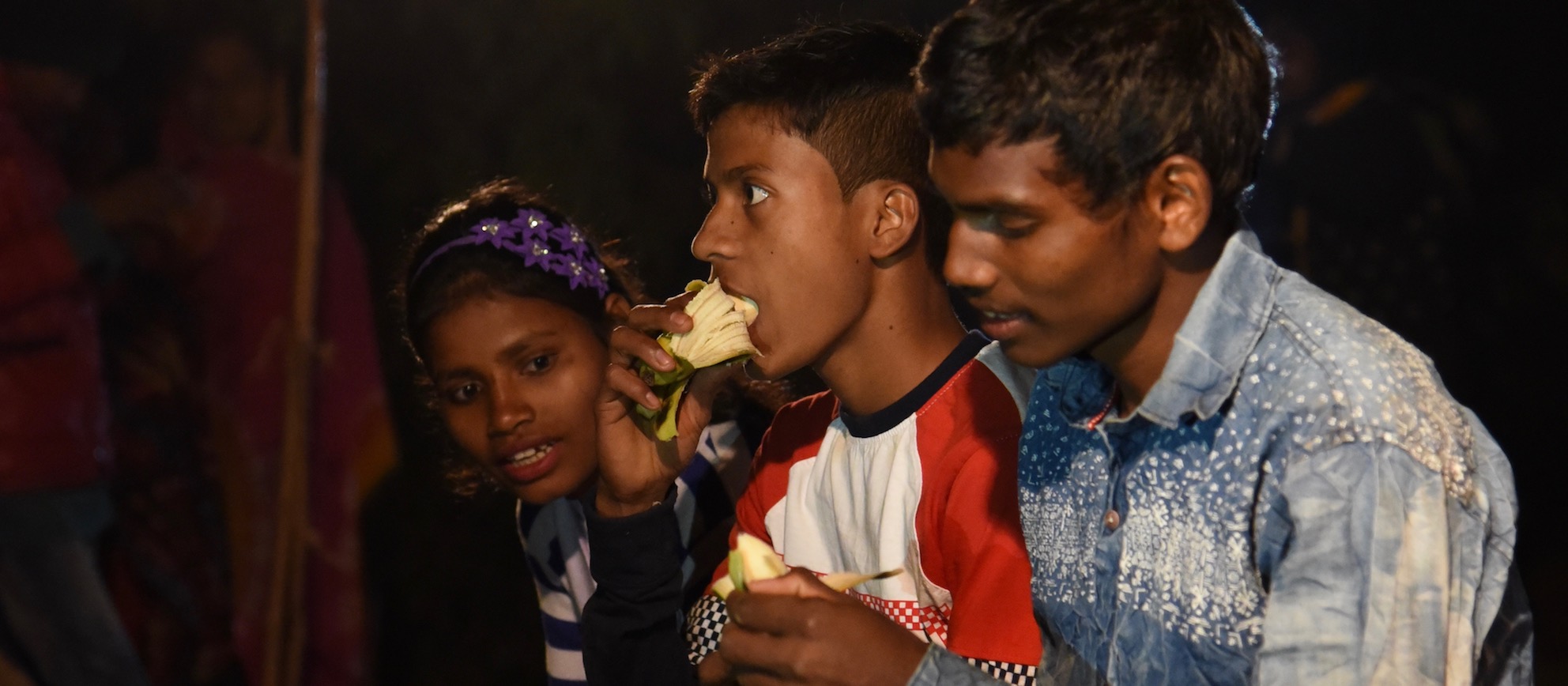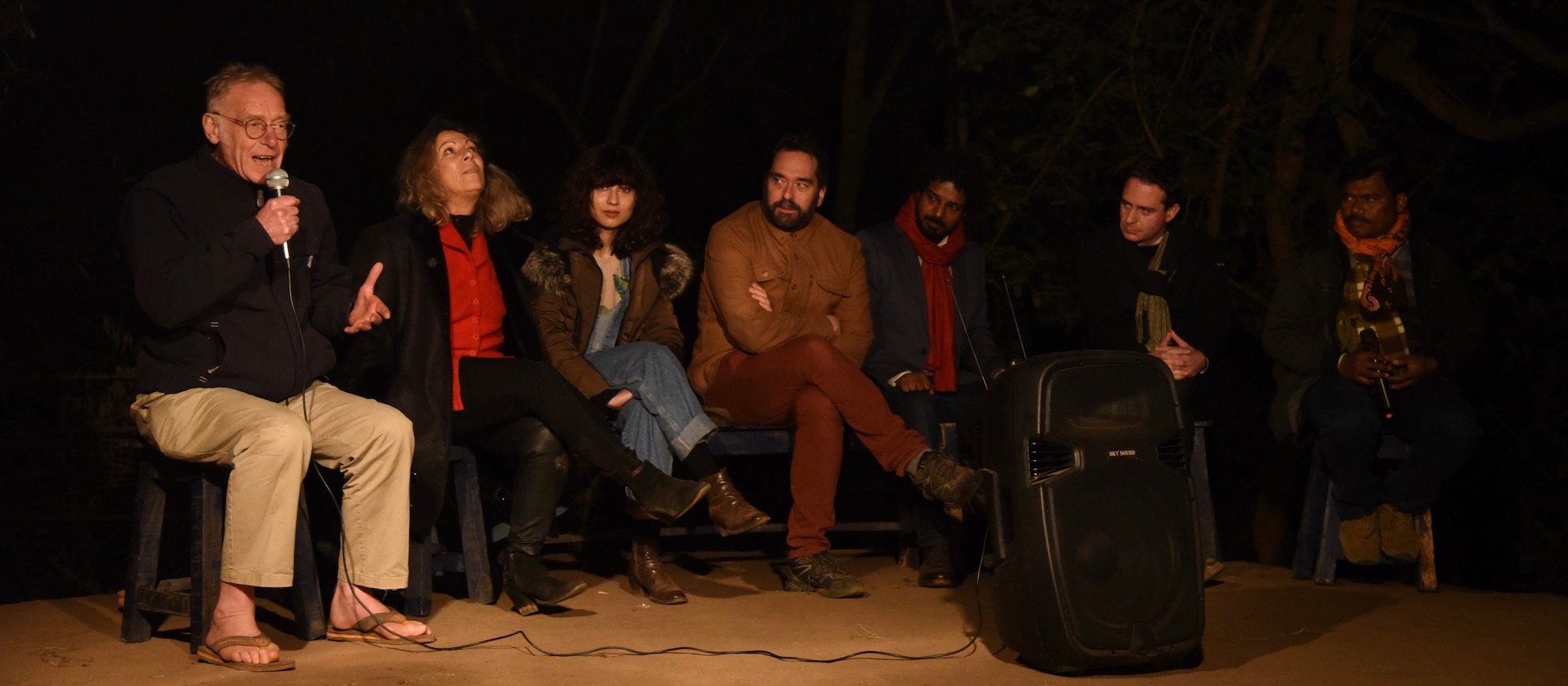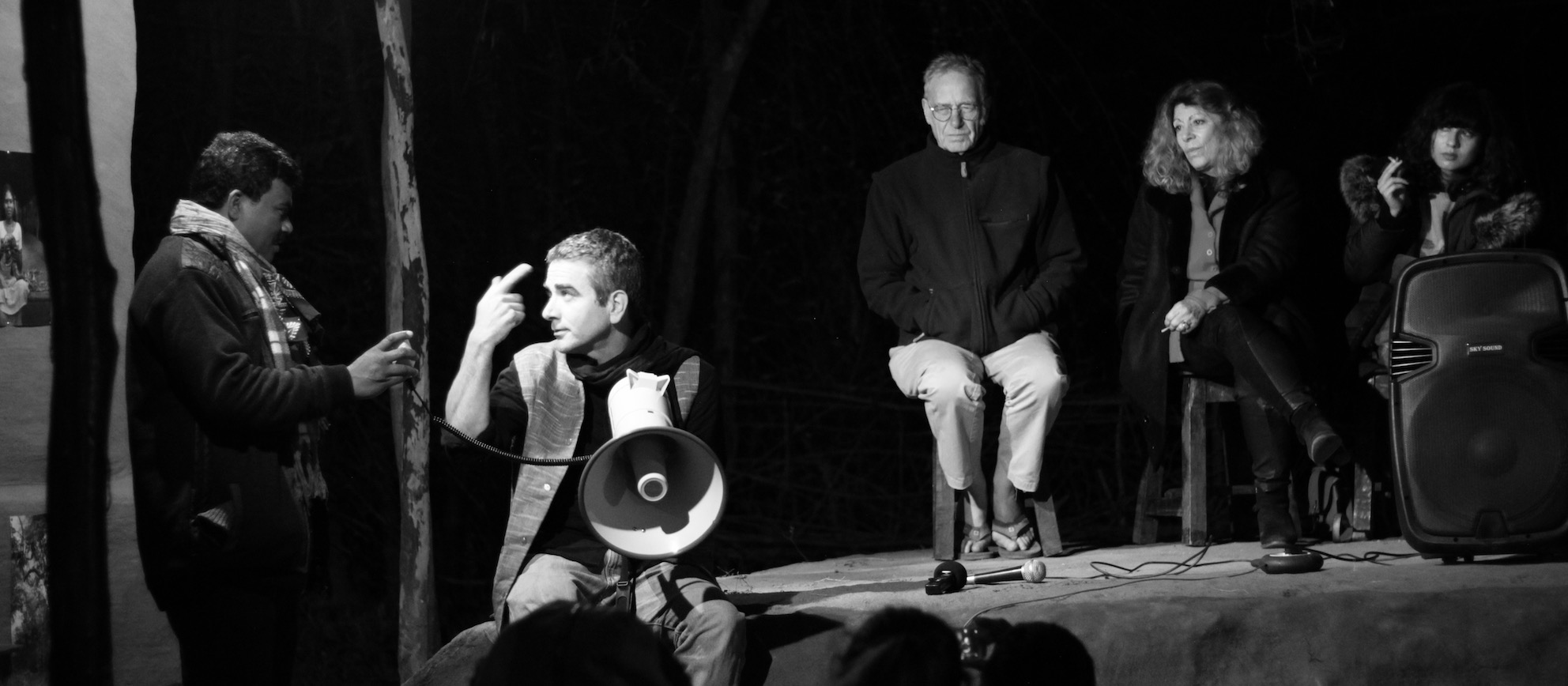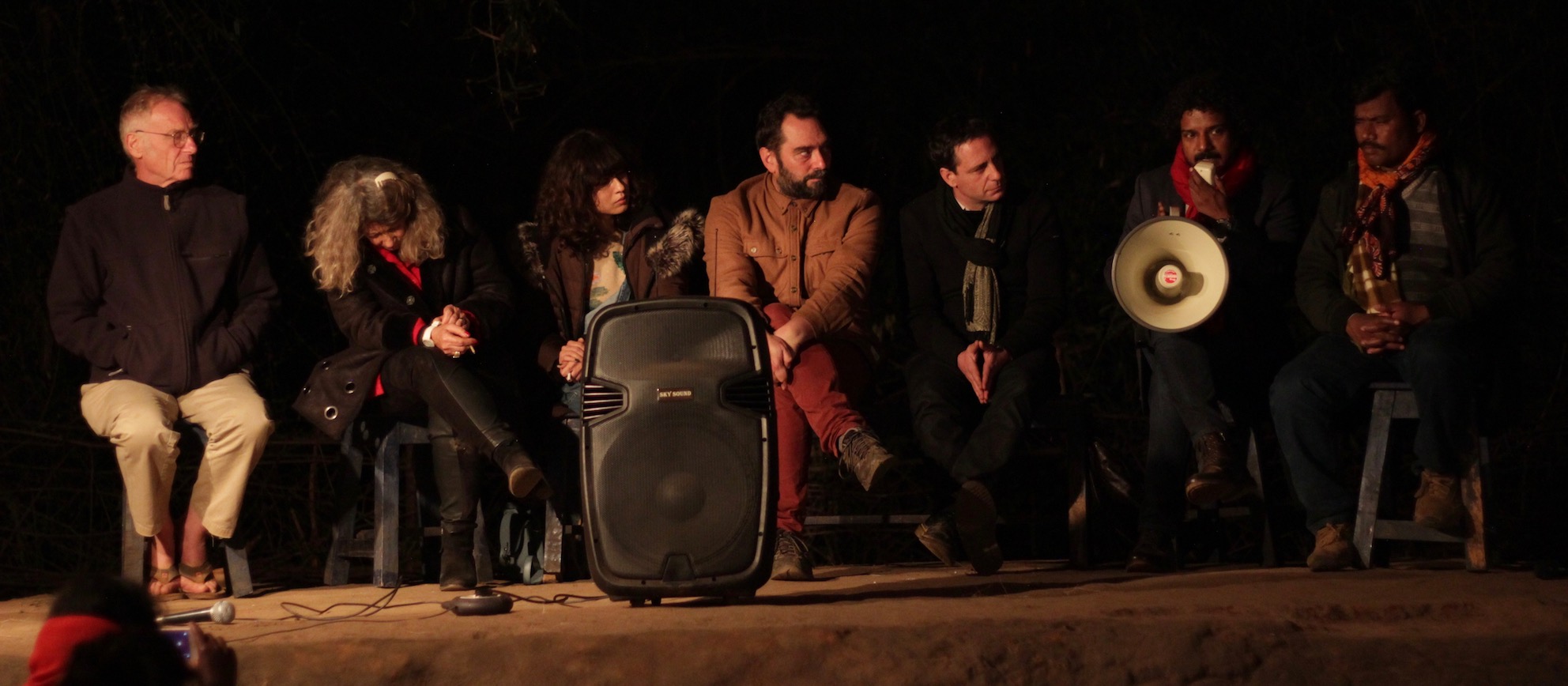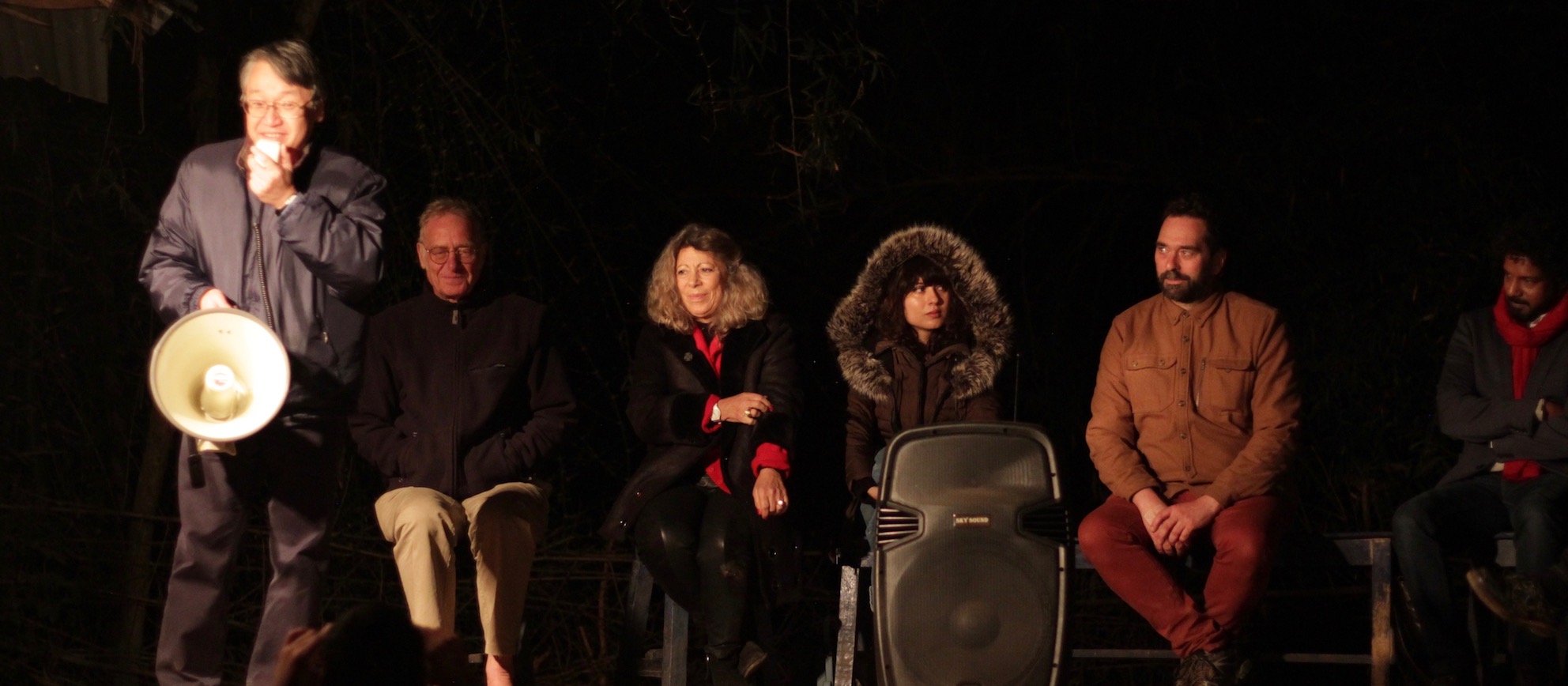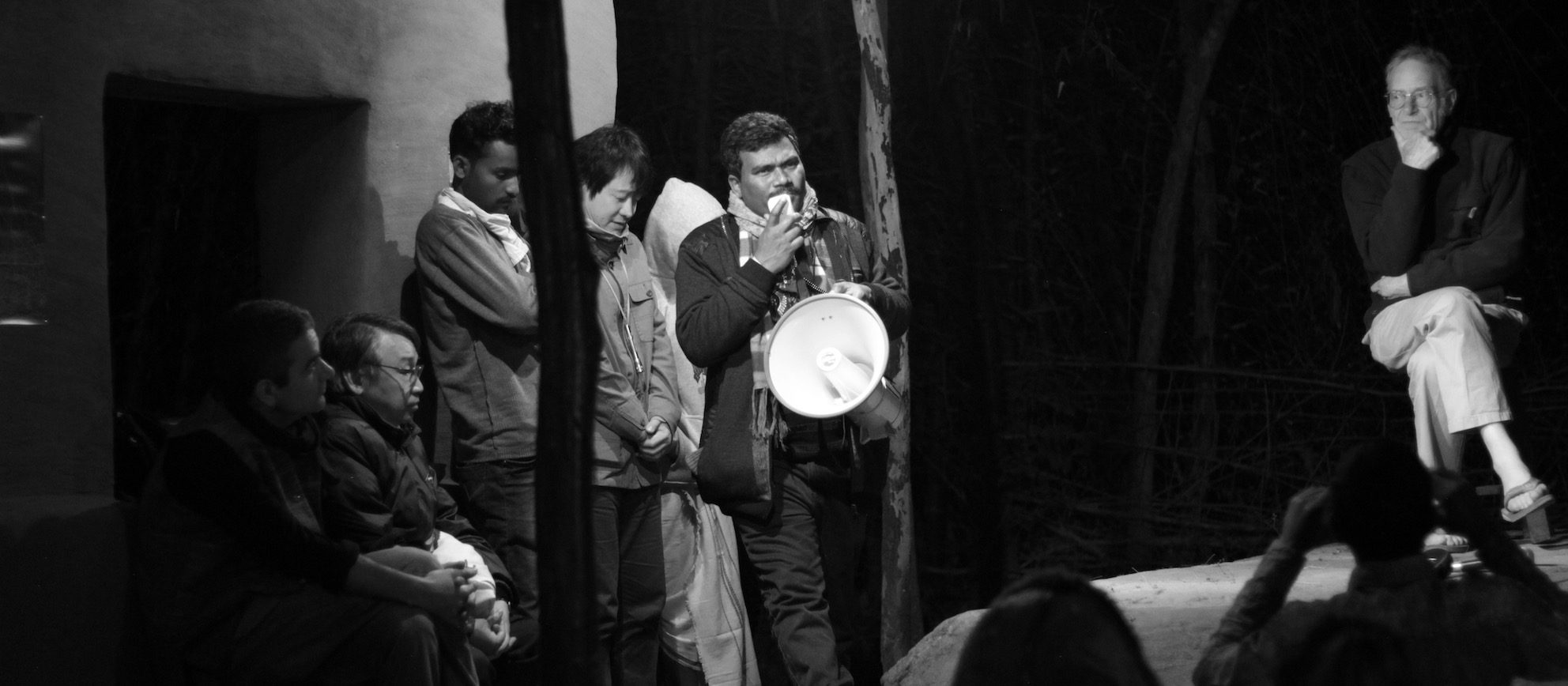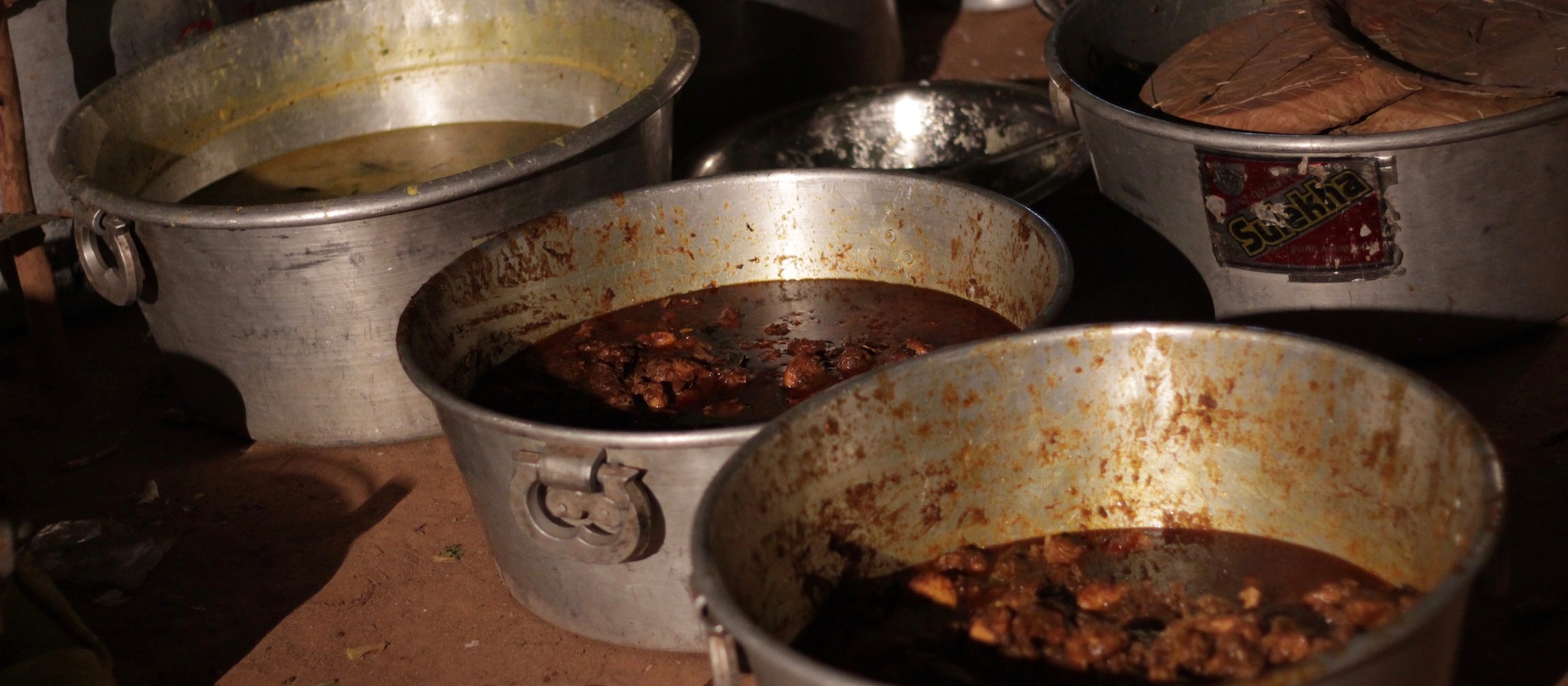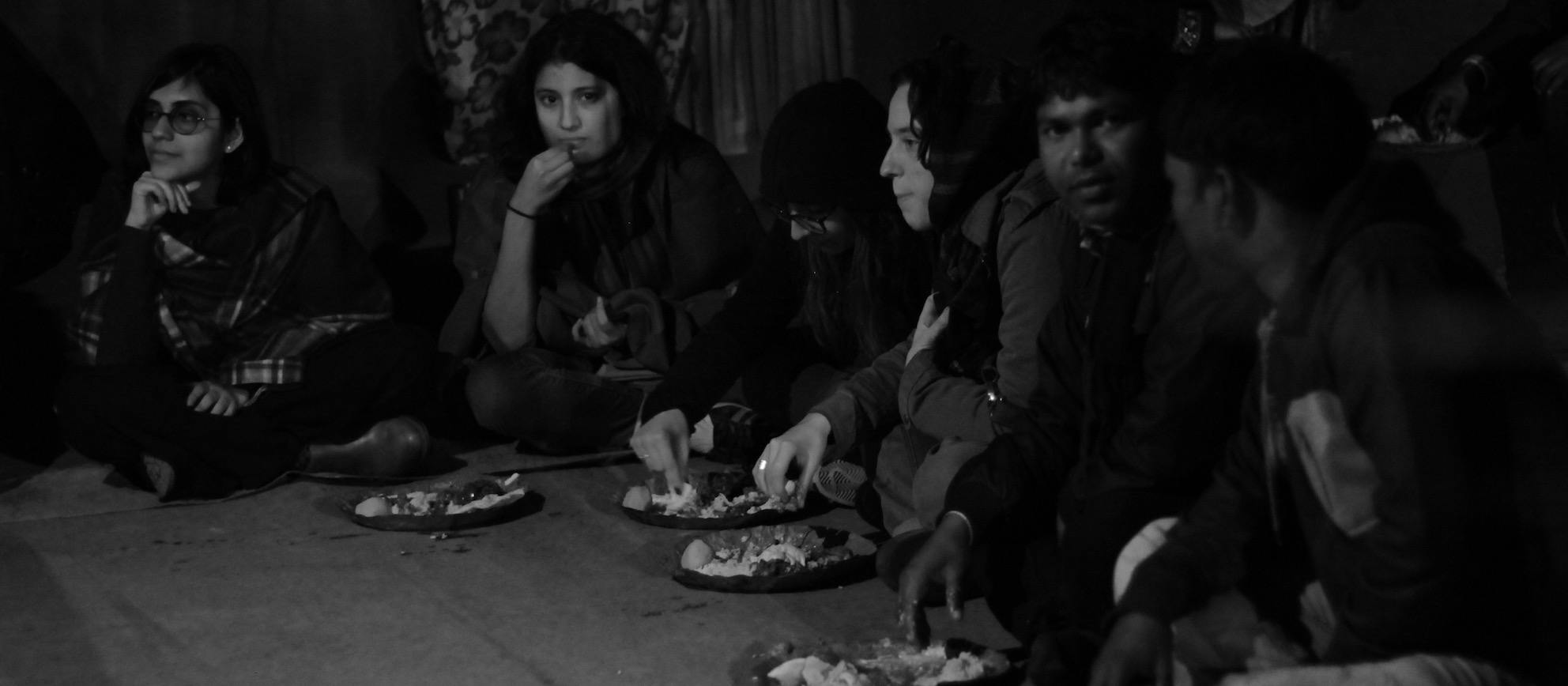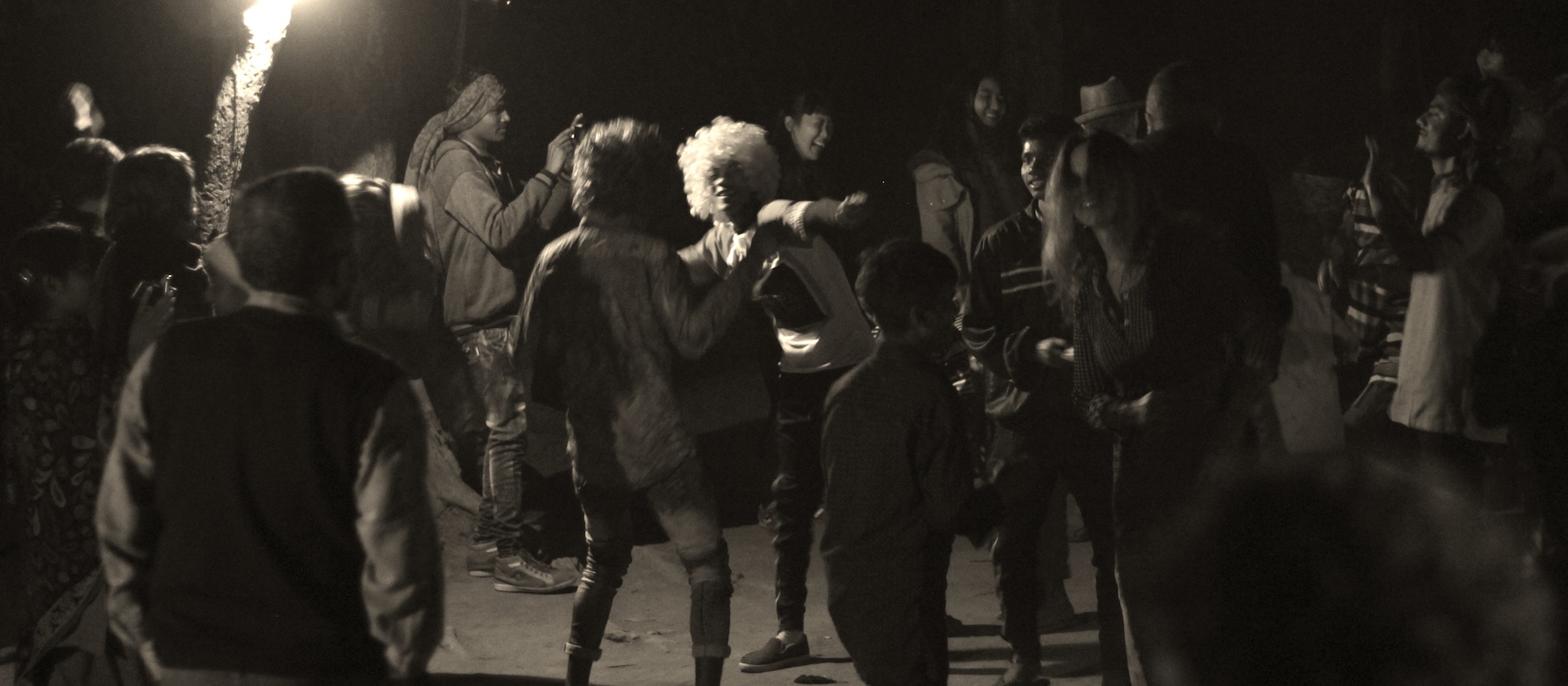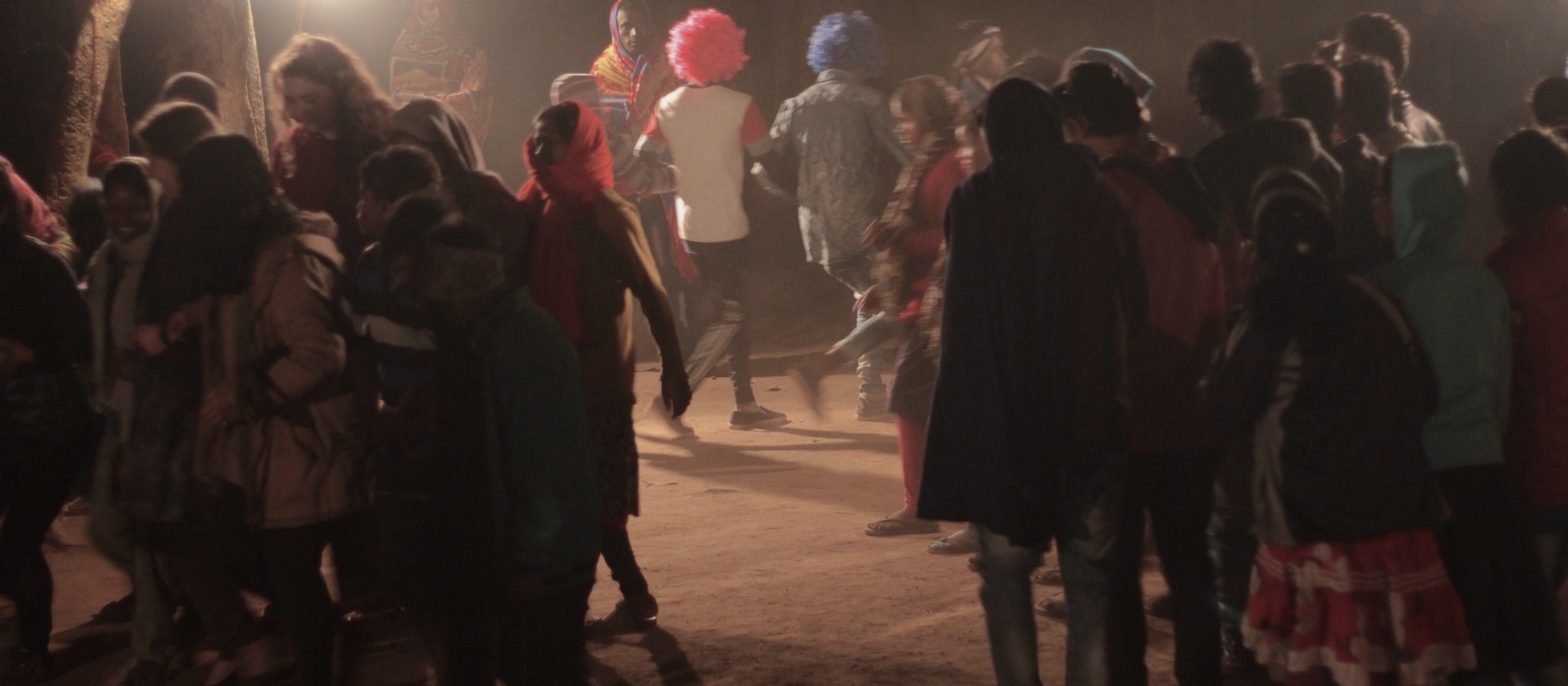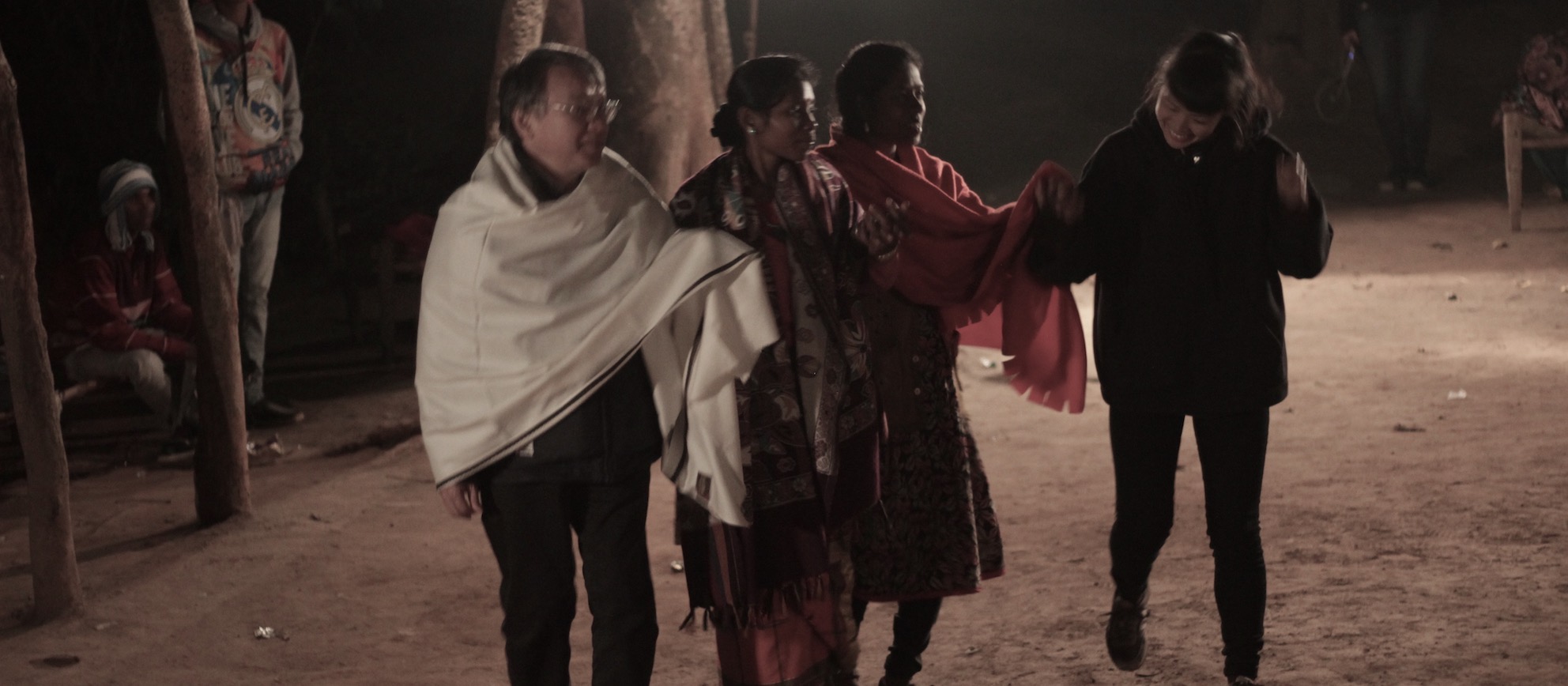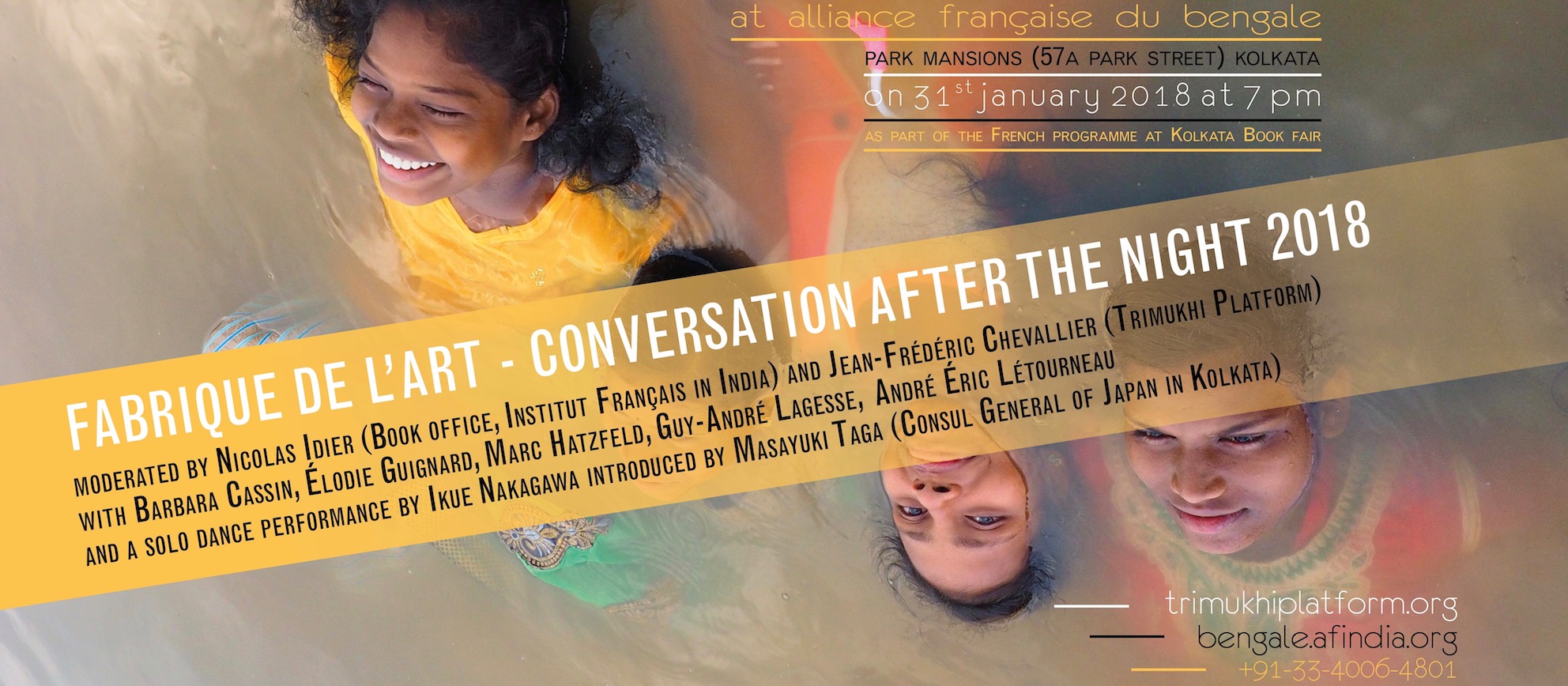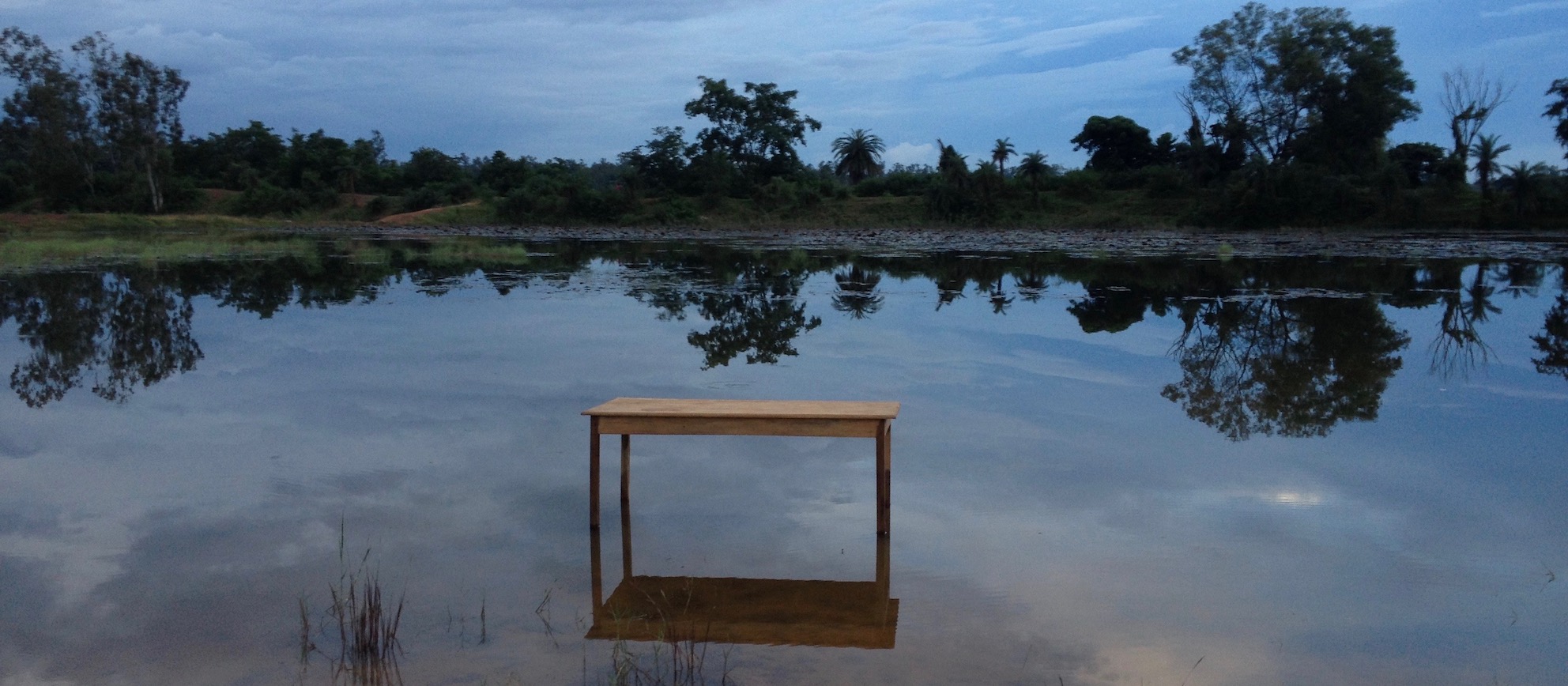home > menu > night of theatre > night of theatre n°10 • la nuit des idées
Night of Theatre n°10 • La Nuit des Idées, amazing night-long festival of contemporary performing arts and inventive thought, took place on January 27 2018 at Trimukhi Cultural Centre in the Santhal tribal village of Borotalpada, West Bengal, India. Artists and philosophers from France, India, Japan, Canada and Mexico together with actors, dancers and musicians from Borotalpada village both showcased in situ sound, theatre, dance or dance-theatre performances and evolved in philosophical proclamations as well as in stimulative discussions about “flows of intensity”… before inviting all to join for a joyful dinner and then for a joyful multicultural dance party until the sun rise again… This event was part both of Institut français’ international Nuit des idées (“Night of Ideas”) to celebrate all over the world the stream of ideas between countries, cultures, topics and generations, and of Bonjour India, a four-month-long celebration of Indo-French innovation, creativity and partnership.
![]() WITH Barbara Cassin [Paris] Jean-Frédéric Chevallier [Paris, Kolkata] Divya Dwivedi [New Delhi] Sandra Milena Gomez [Mexico] Élodie Guignard [Paris] Motilal Hansda [Borotalpada village] Surujmoni Hansda [Borotalpada village] Marc Hatzfeld [Paris] André-Éric Létourneau [Montréal] Patrice Maniglier [Paris] Shaj Mohan [New Delhi] Chandrai Murmu [Bhangabhandh village] Tibru Murmu [Borotalpada village] Ikue Nakagawa [Tokyo, Bruxelles] Andres Solis [Mexico] and Paola Torres [Mexico city] PRODUCED BY Sukla Bar Chevallier [Kolkata] for Trimukhi Platform
WITH Barbara Cassin [Paris] Jean-Frédéric Chevallier [Paris, Kolkata] Divya Dwivedi [New Delhi] Sandra Milena Gomez [Mexico] Élodie Guignard [Paris] Motilal Hansda [Borotalpada village] Surujmoni Hansda [Borotalpada village] Marc Hatzfeld [Paris] André-Éric Létourneau [Montréal] Patrice Maniglier [Paris] Shaj Mohan [New Delhi] Chandrai Murmu [Bhangabhandh village] Tibru Murmu [Borotalpada village] Ikue Nakagawa [Tokyo, Bruxelles] Andres Solis [Mexico] and Paola Torres [Mexico city] PRODUCED BY Sukla Bar Chevallier [Kolkata] for Trimukhi Platform
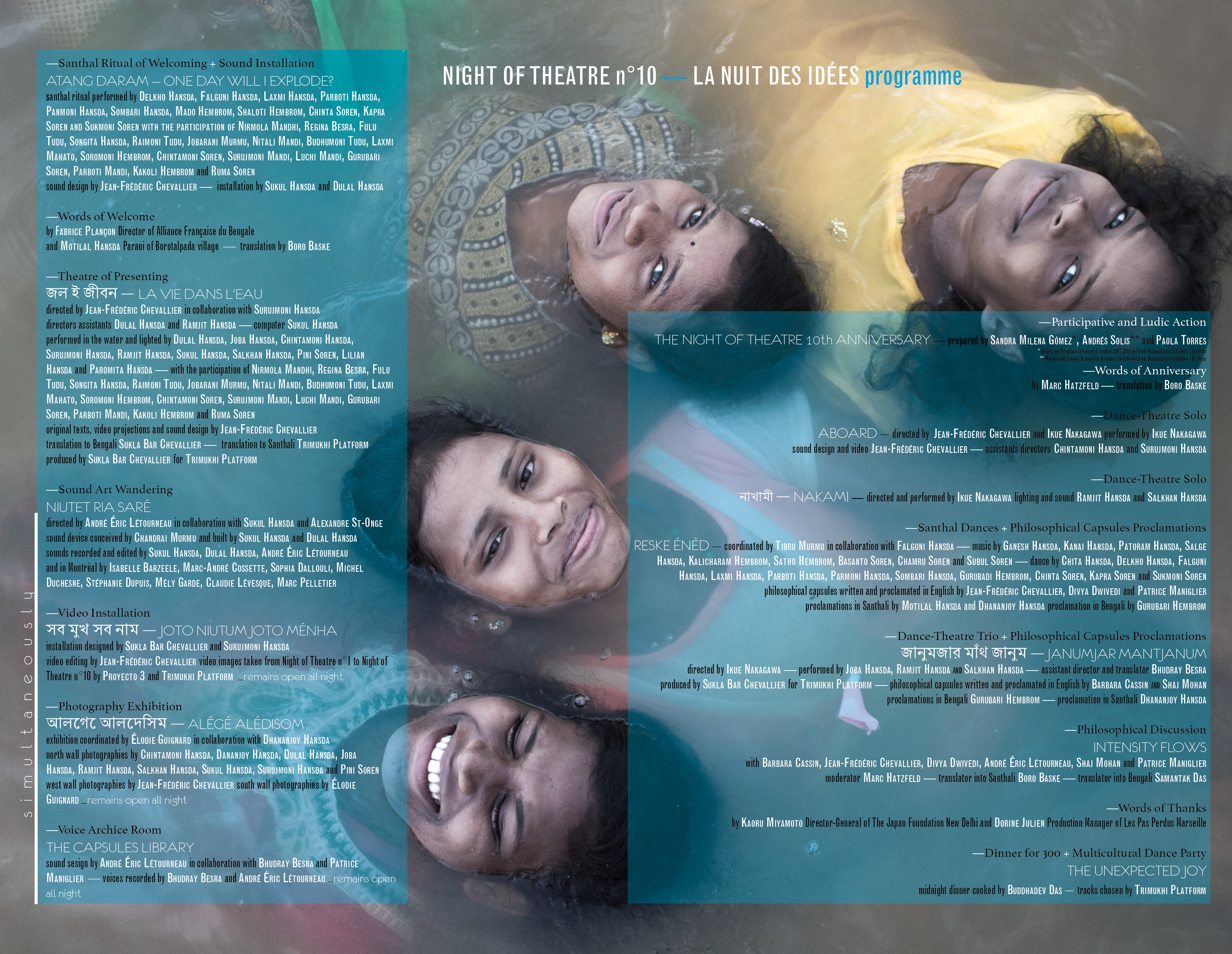
![]() PRESENTED BY Trimukhi Platform, Institut Français AND French Embassy in India IN PARTNERSHIP WITH Alliance Française du Bengale, The Japan Foundation New Delhi, l’Université du Québec à Montréal, Hexagram, Fondo Nacional para la Cultura y las Artes de Mexico AND MACE
PRESENTED BY Trimukhi Platform, Institut Français AND French Embassy in India IN PARTNERSHIP WITH Alliance Française du Bengale, The Japan Foundation New Delhi, l’Université du Québec à Montréal, Hexagram, Fondo Nacional para la Cultura y las Artes de Mexico AND MACE
IN THE PRESS
Read the story in The Indian Express →
Read the editorial in The Telegraph →
Read the report in The Tmes of India →
Read the story in India Today →
Read the announcement in The Telegraph →
THE NIGHT LONG PROGRAMME
from 5:30 PM to 5:30 AM • subject to change without prior notice
photographies by Élodie Guignard for Trimukhi Platform (except few by Dhananjoy Hansda or Jean-Frédéric Chevallier)
ATANG DARAM • ONE DAY WILL I EXPLODE? santhal ritual of welcoming + sound installation
santhal ritual performed by Delkho Hansda, Falguni Hansda, Laxmi Hansda, Parboti Hansda, Panmoni Hansda, Sombari Hansda, Mado Hembrom, Shaloti Hembrom, Chinta Soren, Kapra Soren and Sukmoni Soren with the participation of Nirmola Mandhi, Regina Besra, Fulu Tudu, Songita Hansda, Raimoni Tudu, Jobarani Murmu, Nitali Mandi, Budhumoni Tudu, Laxmi Mahato, Surujmoni Hembrom, Chintamoni Soren, Surujmoni Mandhi, Luchi Mandhi, Gurubari Soren, Parboti Mandi, Kakoli Hembrom and Ruma Soren sound design by Jean-Frédéric Chevallier sound installation by Sukul Hansda and Dulal Hansda
…. words of welcome
by Girish Soren (responsable of the construction of Trimukhi Cultural Centre), Motilal Hansda (Parani of Borotalpada village) and Fabrice Plançon (Director of Alliance française du Bengale)
জল ই জীবন । LA VIE DANS L’EAU theatre of presenting
directed by Jean-Frédéric Chevallier in collaboration with Surujmoni Hansda produced by Sukla Bar Chevallier for Trimukhi Platform director assistant Dhananjoy Hansda performed in the water and lighted by Dulal Hansda, Joba Hansda, Chintamoni Hansda, Surujmoni Hansda, Ramjit Hansda, Sukul Hansda, Salkhan Hansda, Pini Soren, Lilian Hansda and Paromita Hansda with the participation of Nirmola Mandhi, Regina Besra, Fulu Tudu, Songita Hansda, Raimoni Tudu, Jobarani Murmu, Nitali Mandi, Budhumoni Tudu, Laxmi Mahato, Surojmoni Hembrom, Chintamoni Soren, Surujmoni Mandi, Luchi Mandhi, Gurubari Soren, Parboti Mandhi, Kakoli Hembrom and Ruma Soren original texts, video projections and sound design by Jean-Frédéric Chevallier translation to Bengali Sukla Bar Chevallier translation to Santhali Trimukhi Platform
WHAT MOVES YOU? part 1 dance improvisation + philosophical capsule proclamations
dance improvisation by Ikue Nakagawa philosophical capsules written, proclamated in English and lighted by Divya Dwivedi and Shaj Mohan proclamation in Santhali by Motilal Hansda proclamation in Bengali by Gurubari Hembrom translation in Santhali by Boro Baske translation in Bengali by Sukla Bar Chevallier
NIUTEΤ RIA SARÉ sound art wandering
directed by André Éric Létourneau in collaboration with Sukul Hansda and Alexandre St-Onge sound device conceived by Chandrai Murmu and built by Sukul Hansda and Dulal Hansda sounds and voices recorded and edited by Sukul Hansda, Dulal Hansda, André Éric Létourneau and in Montréal by Isabelle Barzeele, Marc-André Cossette, Sophia Dallouli, Michel Duchesne, Stéphanie Dupuis, Mély Garde, Claudie Lévesque, Marc Pelletier
সব মুখ সব নাম । JOTO NIUTUM JOTO MÉNHA video installation
installation designed by Sukla Bar Chevallier and Surujmoni Hansda video editing by Jean-Frédéric Chevallier video images and sound taken from Night of Theatre n°1 to Night of Theatre n°10 by Proyecto 3 and Trimukhi Platform _ the installation remains open for the rest of the night
আলেগে আলেদিসম । ALÉGÉ ALÉDISOM photography exhibition
exhibition coordinated by Élodie Guignard in collaboration with Dhananjoy Hansda north wall photographies by Dananjoy Hansda, Dulal Hansda, Joba Hansda, Chintamoni Hansda, Ramjit Hansda, Salkhan Hansda, Sukul Hansda, Surujmoni Hansda and Pini Soren west wall photographies by Jean-Frédéric Chevallier south wall photographies by Élodie Guignard _ the exhibition remains open for the rest of the night
THE CAPSULES LIBRARY sound archive room
designed by André Éric Létourneau in collaboration with Patrice Maniglier interviews recorded by Motilal Hansda and André Éric Létourneau _ the sound archive remains open for the rest of the night
THE NIGHT OF THEATRE 10th ANNIVERSARY
THE NIGHT OF THEATRE 10th ANNIVERSARY participative theatre performance
prepared in Mexico by Sandra Milena Gomez, Andrés Solis and Paola Torres put in practice by Chintamoni Hansda, Surujmoni Hansda and Marc Hatzfeld
… words of anniversary
by Marc Hatzfeld translated and commented by Samantak Das
নাখামী । NAKAMI solo dance-theatre
directed and performed by Ikue Nakagawa light and sound Ramjit Hansda and Salkhan Hansda
ABOARD solo dance-theatre + philosophical capsule proclamation
directed by Jean-Frédéric Chevallier and Ikue Nakagawa performed by Ikue Nakagawa philosophical capsule proclamation in Santhali by Dhanajoy Hansda and Chintamoni Hansda video Jean-Frédéric Chevallier torch lighting by Ramjit Hansda, Salkhan Hansda and Surujmoni Hansda
RESKE ÉNÈD । WHAT MOVES YOU? santhal dances + philosophical capsules proclamations
coordinated by Tibru Murmu in collaboration with Falguni Hansda music played by Ganesh Hansda, Patoram Hansda, Salge Hansda, Kalicharam Hembrom, Satho Hembrom and Chamru Soren dance performed by Chita Hansda, Delkho Hansda, Falguni Hansda, Laxmi Hansda, Parboti Hansda, Parmoni Hansda, Sombari Hansda, Gurubadi Hembrom, Chinta Soren, Kapra Soren and Sukmoni Soren philosophical capsules written and proclamated in English by Patrice Maniglier and Barbara Cassin proclamation in Santhali by Motilal Hansda proclamation in echo in French and Santhali by Chintamoni Hansda
জানুমজার মাঁথ জানুম । JANUMJAR MANTJANUM trio dance-theatre + philosophical capsules proclamations
directed by Ikue Nakagawa performed by Joba Hansda, Ramjit Hansda and Salkhan Hansda assistant director Sukul Hansda produced by Sukla Bar Chevallier for Trimukhi Platform philosophical capsules written and proclamated in English by Barbara Cassin and Shaj Mohan proclamations in Bengali Gurubari Hembrom proclamation in Santhali Dhananjoy Hansda
INTENSITY FLOWS philosophical discussion
with Barbara Cassin, Jean-Frédéric Chevallier, Divya Dwivedi, André Éric Létourneau, Shaj Mohan and Patrice Maniglier moderator Marc Hatzfeld translator Boro Baske
… words of thanks
by Masayuki Taga (Consul General of Japan in Kolkata) and Kaoru Miyamoto (Director-General of The Japan Foundation, New Delhi) translation by Boro Baske
THE IMPROBABLE JOY part 1 diner for 300
diner cook under the direction of Buddhadev Dastracks
THE IMPROBABLE JOY part 2 multi-cultural dance-party
music tracks chosen by Trimukhi Platform
FABRIQUE DE L’ART • Conversation after the Night 2018
On 31st January 2018, 7 pm, at Alliance Française du Bengale as part of the French programme at Kolkata Bookfair
`
